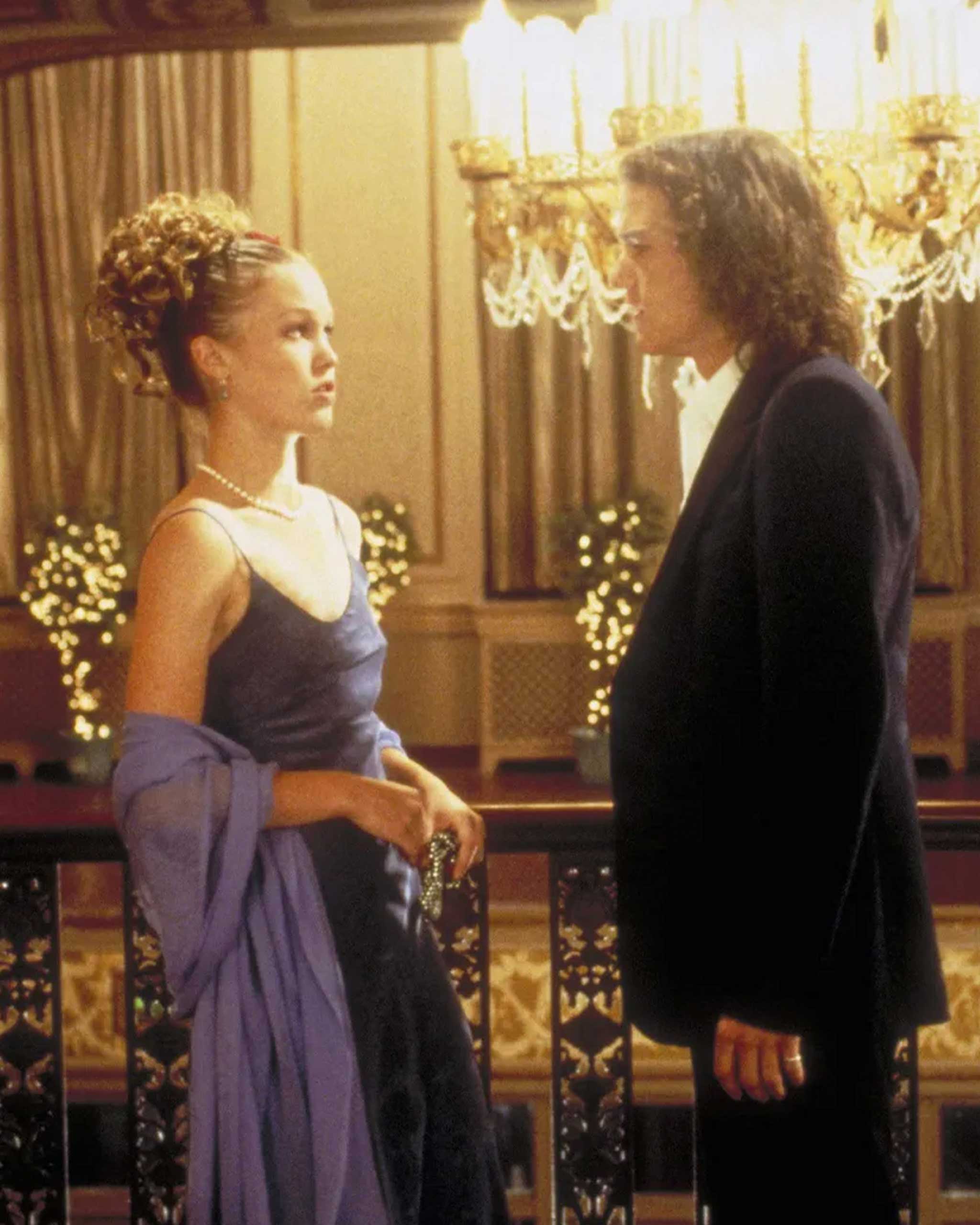Photo: Courtesy Everett Collection
What makes a rom-com good? It’s a genre that has lived in our popular culture for centuries—Shakespeare wrote a few some himself—with notable peaks and valleys in their power and prevalence. Yet their basic equation has remained the same: one part romantic love plus one part humorous high jinks.
For that reason, what makes a rom-com “good” or “bad” can be tricky to determine—the things that move and amuse us are very subjective!—although we’ve had a go at compiling the best ones anyway. From recent favorites to standard-bearers of the form, these are the films that we return to time and again for their razor-sharp writing; their heartwarming happy endings; or just their general coziness. (That‘s important, too!)
So, without further ado, here are the 75 best rom-coms for every situation, according to Vogue. We hope you love them.
Emma. (2020)
For basking in the visual perfection of candy-colored bonnets and frills.
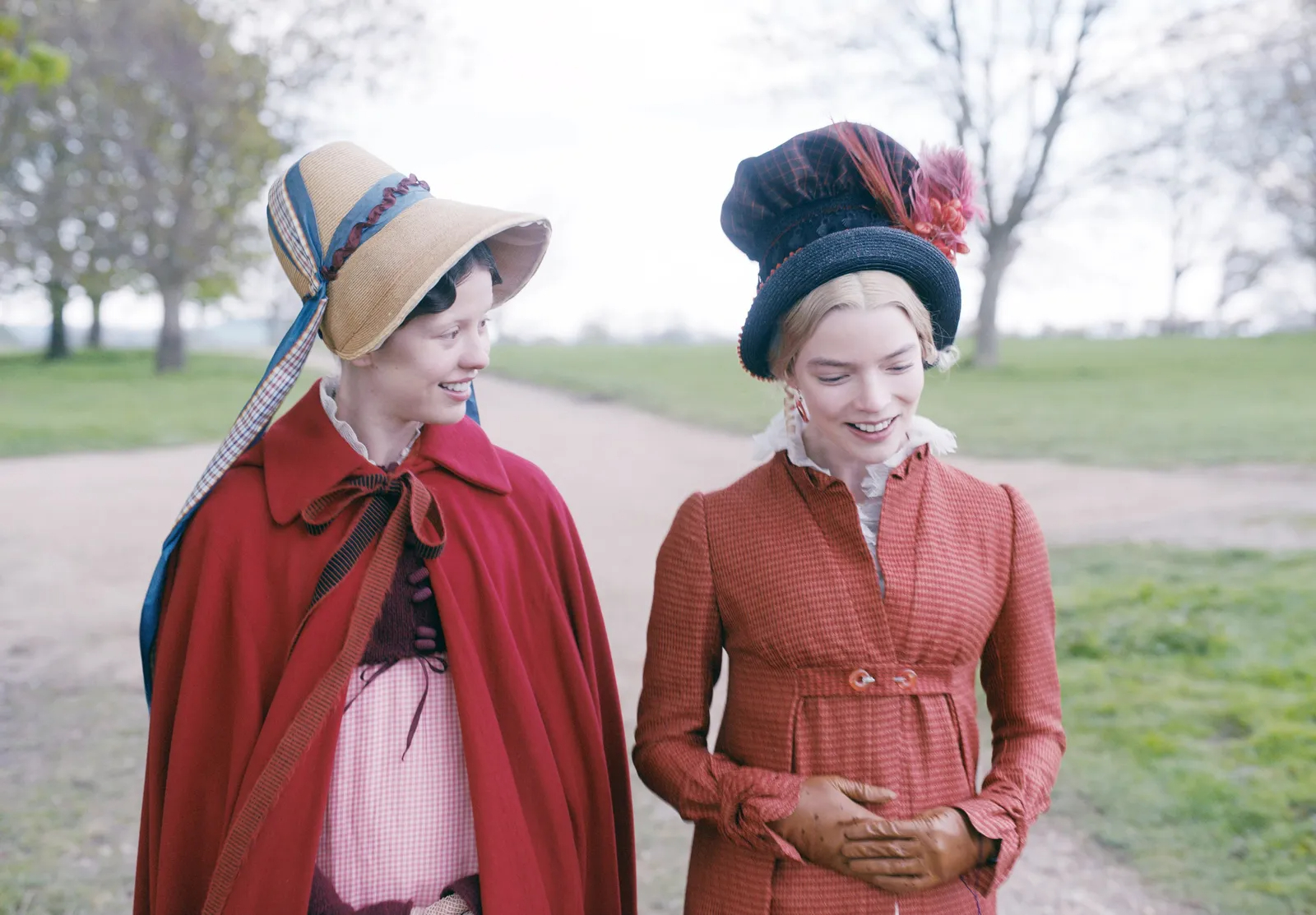
There’s really no improving on Jane Austen…but may we be so bold as to say that Autumn de Wilde’s adaptation of the 1815 novel gets pretty darn close? Anya Taylor-Joy shines as the titular character, and her battle of wits with Knightley (Johnny Flynn) imbues the familiar story with endless fun and froth. Side note: Do film costumes get any better?
Palm Springs (2020)
To make you question the meaning of existence (and fall hard for Andy Samberg).
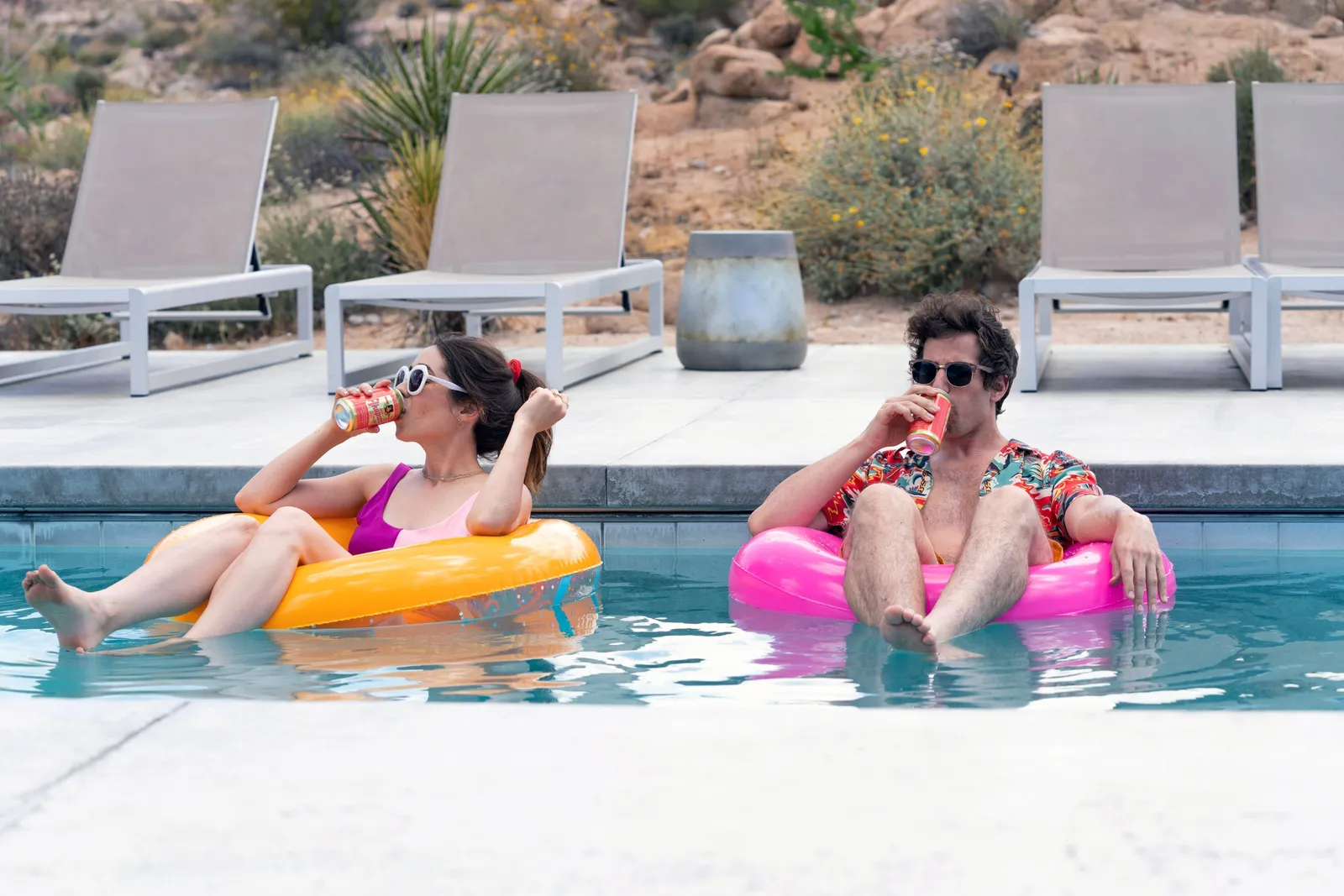
By no means is Palm Springs a traditional rom-com, but that’s what we love about it. The film features Andy Samberg and Cristin Milioti as a pair of strangers who meet at a wedding and end up stuck in the same…cosmic time loop? To be honest, we don’t really get it either, but luckily, the film is as charming as it is weird. (Which is to say, very.) BTW, the chemistry between Samberg and Milioti is off the charts, even as they’re hurtling through time and space.
Always Be My Maybe (2019)
For when you can’t decide if there’s a spark between you and that one friend.
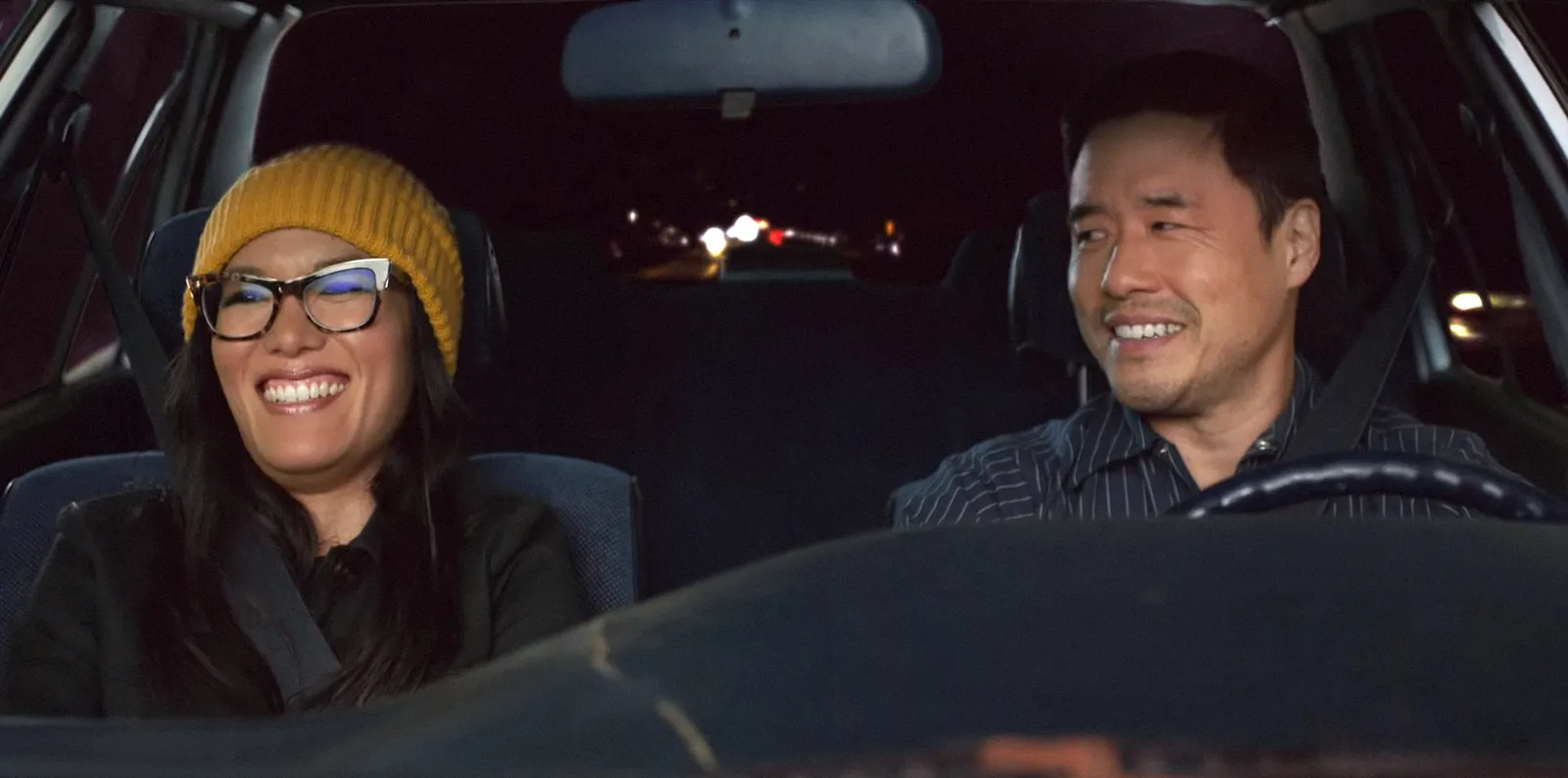
The most meaningful relationships blossom from great friendships. Childhood besties Sasha and Marcus (Ali Wong and Randall Park) haven’t seen each other for 15 years. But when Sasha, now a celebrity chef, returns to hometown San Francisco to open a new restaurant, the duo cross paths once more—and it’s like she never left. As they reconnect, the forever question lingers: Could they be something more than just friends?
Crazy Rich Asians (2018)
To convince you to plan a destination wedding in Singapore.
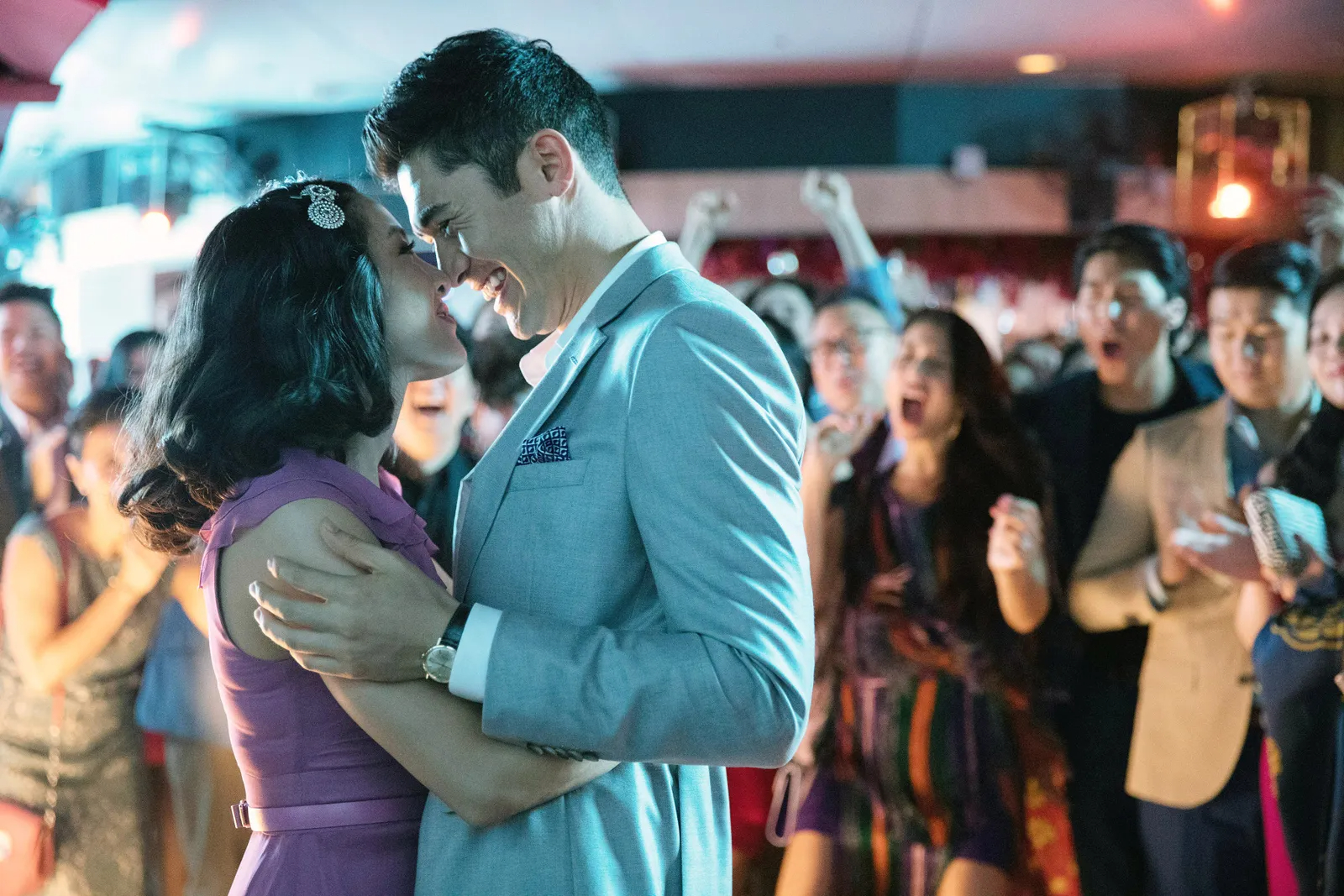
Based on the novel of the same name by Kevin Kwan, this film takes a deep dive into the splashy, sparkling lives of Singapore’s elite, with the story of Rachel (Constance Wu), who falls in love with Nick (Henry Golding) before learning that his family, headed by terrifying matriarch Eleanor (Michelle Yeoh), is among the richest in Singapore. The central question of whether love can conquer money is almost outshone by the film’s dazzling surroundings and Rachel’s nouveau riche friends, played perfectly by Awkwafina and Ken Jeong.
Set It Up (2018)
To make you believe in the power of matchmaking.
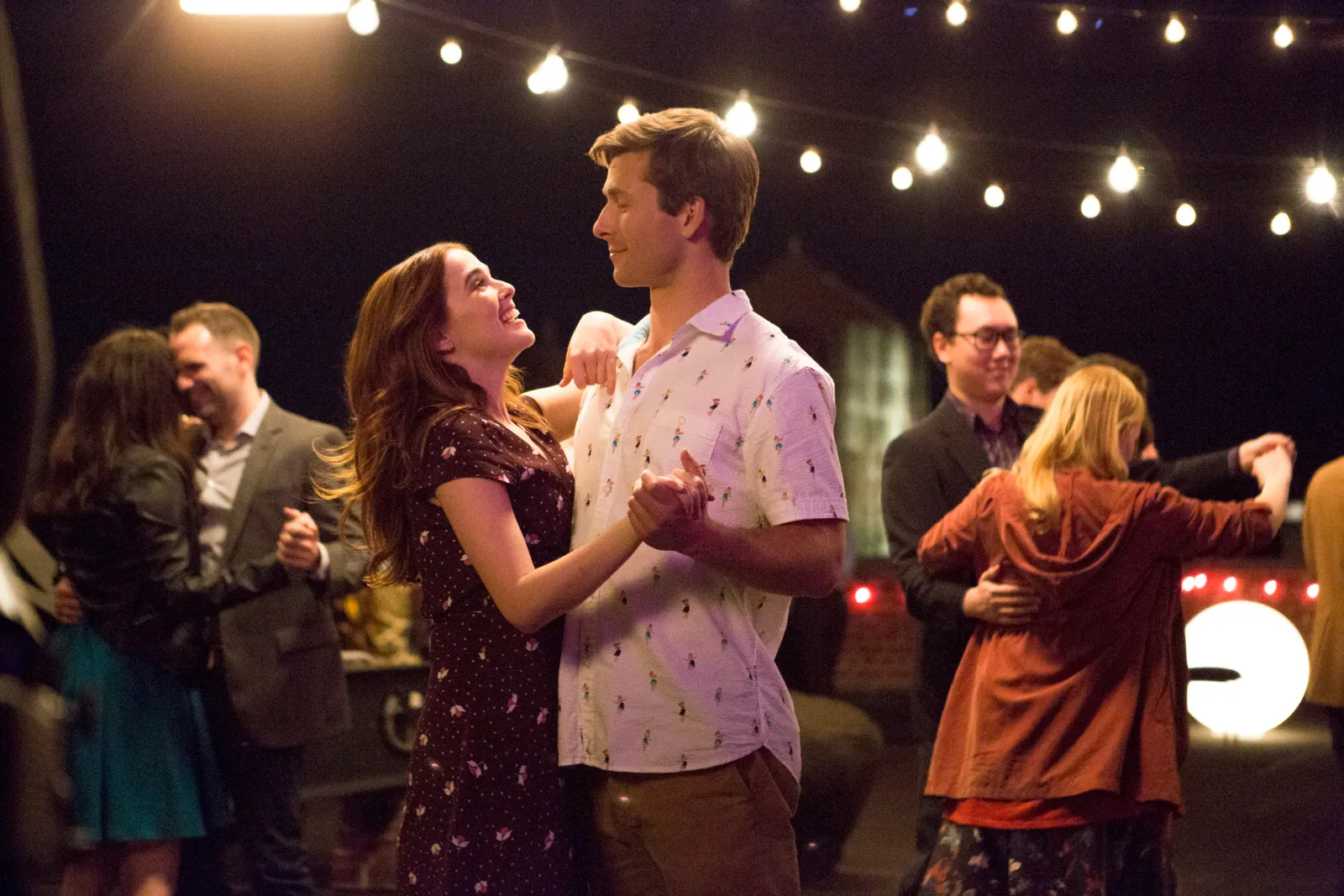
Current and former assistants will find themselves vindicated (and maybe a little PTSD-ridden) by this Netflix gem, which stars fresh faces Zoey Deutch and Glenn Powell as beleaguered Hollywood peons trying to set their bosses (the masterful pairing of Lucy Liu and Taye Diggs) up, and, of course, finding love themselves in the process.
To All the Boys I’ve Loved Before (2018)
To convince you to send that note to your crush.
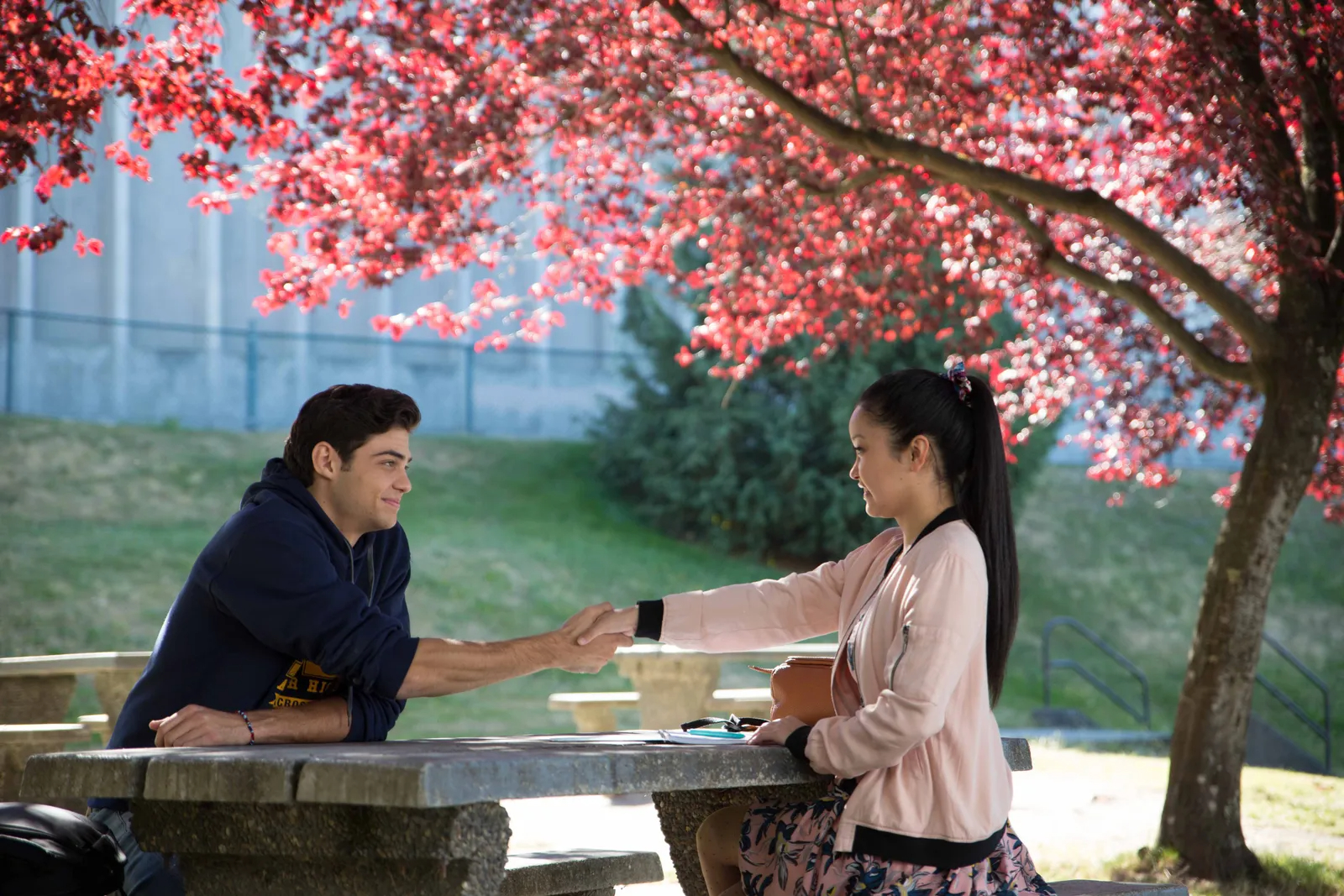
Based on the novel by Jenny Han, To All the Boys was, for many, an instant classic—not least for blessing the world with Peter Kavinsky (Noah Centineo), the Jake Ryan of the internet era. Lana Condor stars as Lara Jean, a quiet high school kid who relieves her romantic pressures by writing never-to-be-mailed love letters to the objects of her affection—including her older sister’s ex-boyfriend. Until, of course, they get sent out one night.
The Big Sick (2017)
To convince you that love really can conquer all.
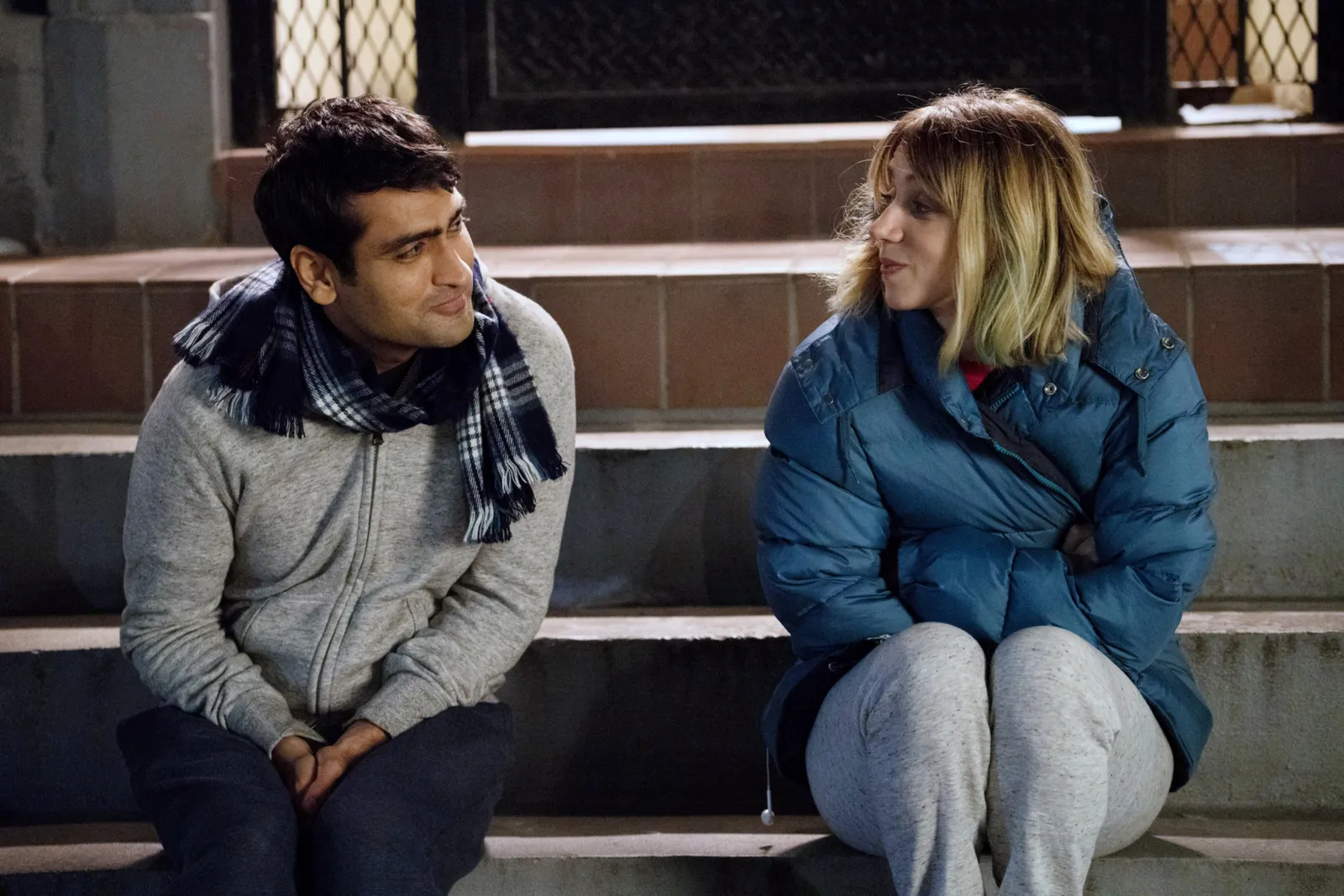
This one isn’t a romantic comedy in the traditional sense—the female lead spends most of the film in a coma—but it will give you a new appreciation for what it means to truly love someone. Comedian and actor Kumail Nanjiani shines as the film’s star, and his fingerprints are all over the film; it’s more or less the true story of how he met his wife, writer Emily V. Gordon, and the two co-authored the script.
La La Land (2016)
To get you singing and dancing (and maybe moving to L.A.).
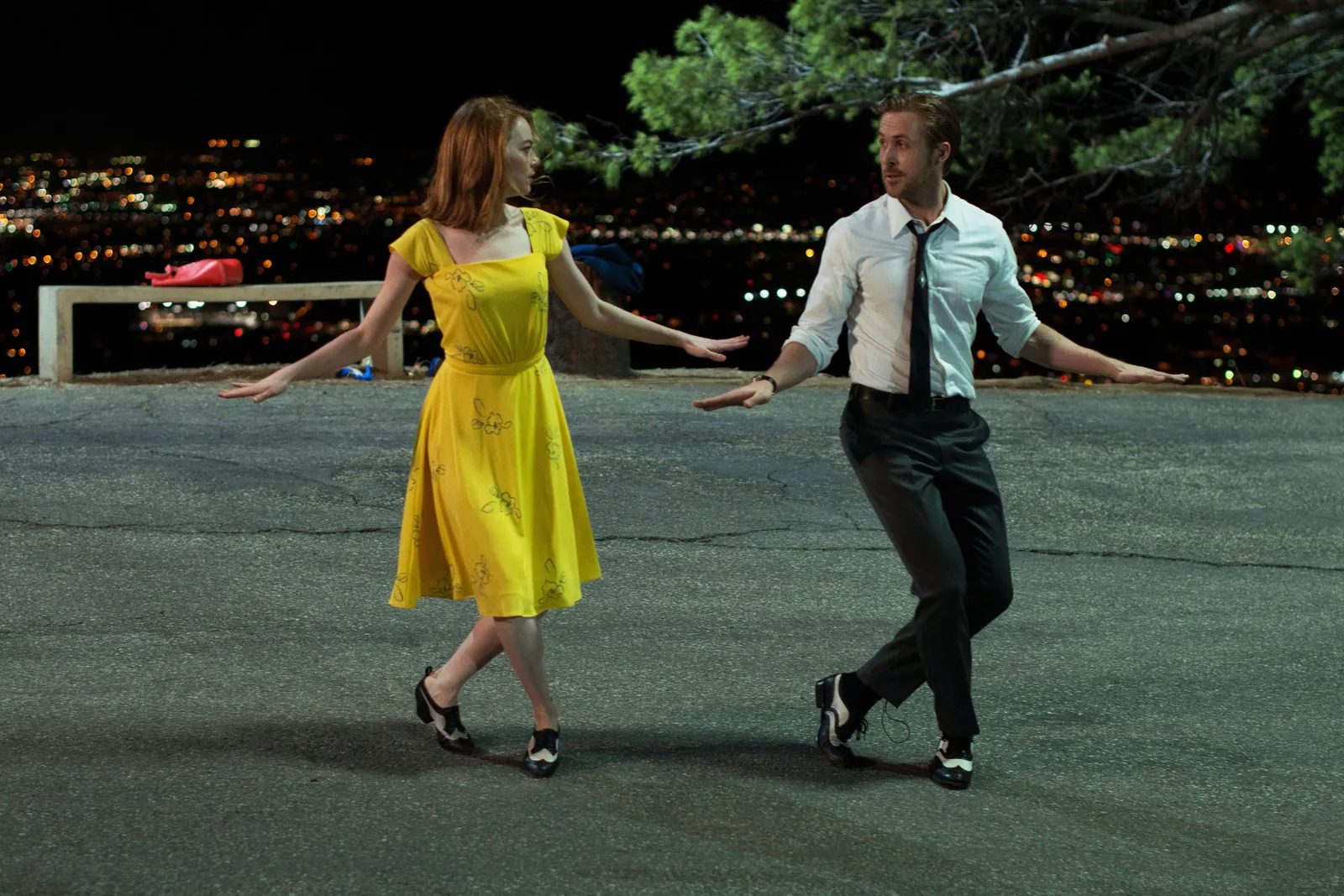
The highway scene. Ryan Gosling hunkered over the piano. Emma Stone embodying “irrepressible.” His dance on the boardwalk. Her spins. The way she pulls at her dress. The way he grins while he smolders. Their love. It’s a panacea for the reasons we go to the movies. At no point do we believe they won’t end up together, but we stay transfixed—in fact, we tap along. For younger viewers—those of us who might not have drunk down the moving magic of Singin’ in the Rain, West Side Story, or Gigi—Damien Chazelle’s La La Land forgives those lapses. It embraces their greatness as it embraces us in its giant, vibrant arms. We lean closer to the screen, not to learn but to feel for the whole experience of youth and performance: all that hope, drive, sweat, and love. Can’t forget love.
Obvious Child (2014)
To put your one-night stand into perspective.
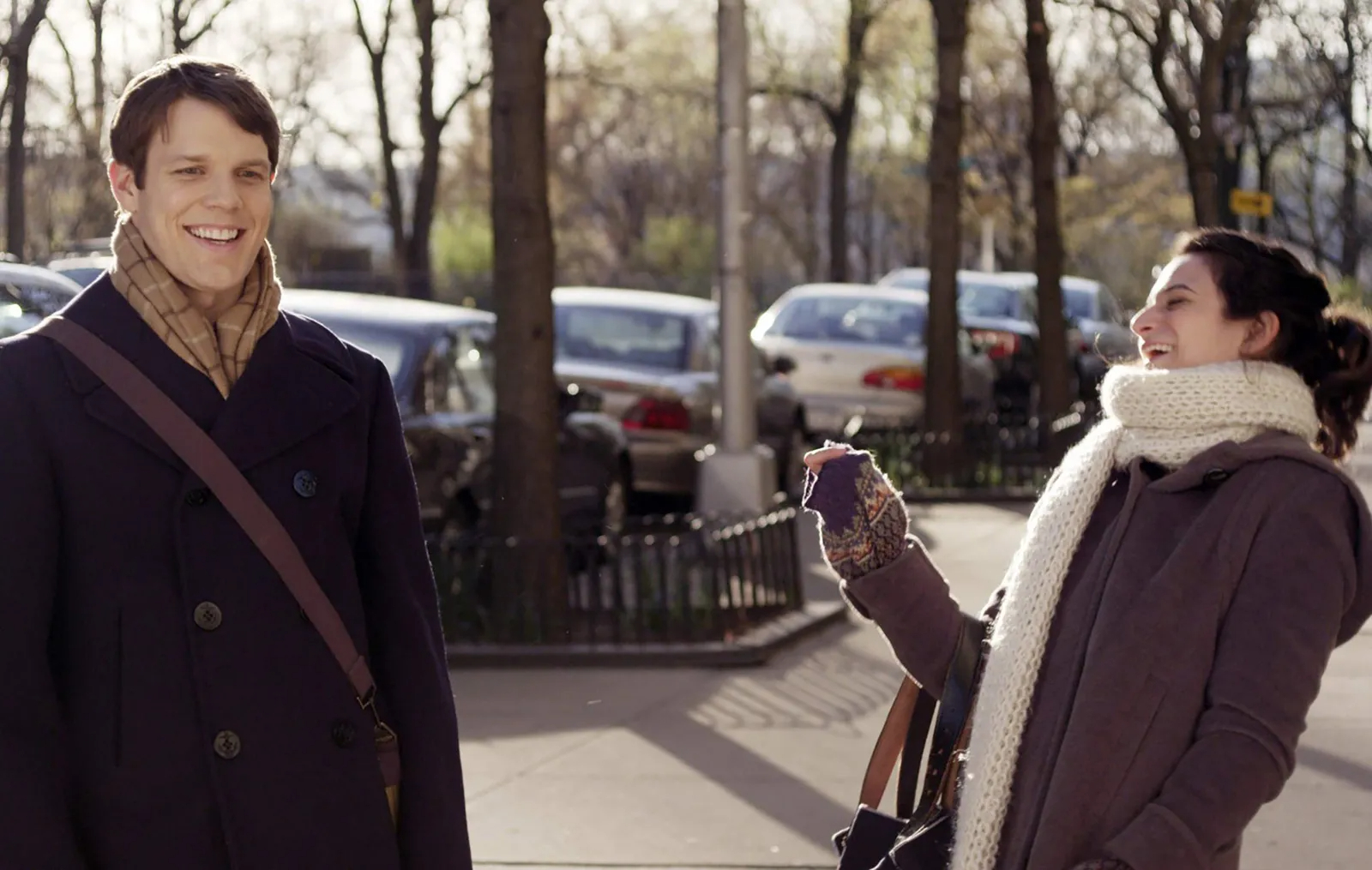
Talk about playing with fire, but this tender, deeply human comedy from director Gillian Robespierre finds entirely new ways into the story of losing Mr. Wrong, then Finding Mr. Right (by having our hero, a struggling comedian played by the irrepressibly honest and infinitely endearing Jenny Slate, get drunk with Mr. Right, sleep with Mr. Right, get pregnant by Mr. Right, and then deal with the consequences). While riotously funny, Obvious Child set a new standard for real-feeling intimacy in comedy; Robespierre’s perfect writing and Slate’s raw but intelligent performance managed to shape a sublime millennial mirror.
Top Five (2014)
To make you fall for his funny bone.
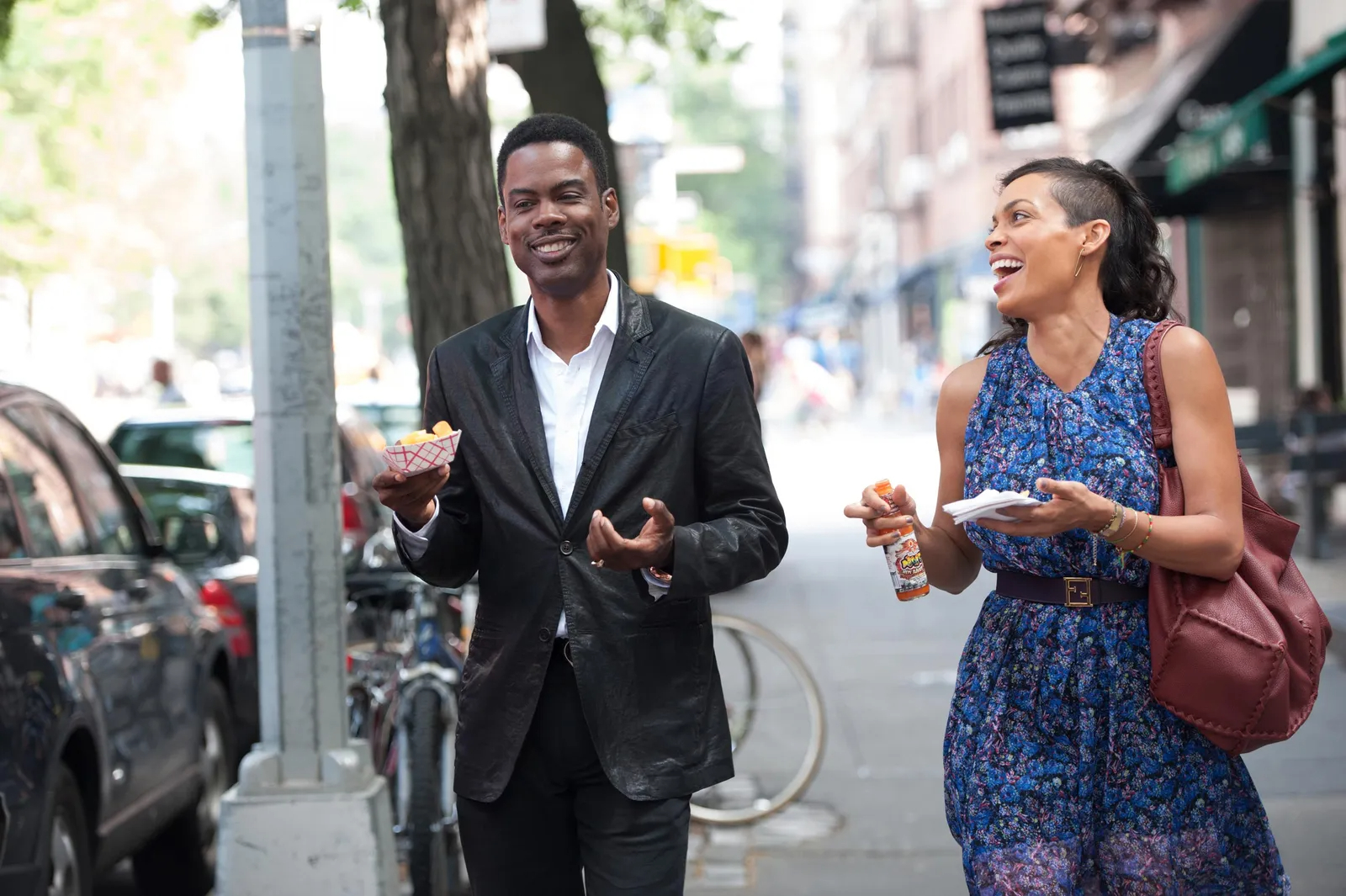
Think of it as Funny People meets Before Sunset, with New York taking the place of Paris. If that notion produces a little eye roll, get those peepers back down, and then on to the screen before you miss some laughs. Rosario Dawson plays a New York Times journalist tasked with interviewing a hugely famous comedian, played by Chris Rock, who is attempting to take his career in a new direction (courtesy of an ill-advised serious film about a Haitian revolutionary). Like in Roman Holiday before it, here the journalist finds the human being inside of their famous subject, falling for them while trying not to fall for their shtick, or what they represent. As the pair make their way through Manhattan—with visits from Jerry Seinfeld, radio hosts Opie and Anthony, Whoopi Goldberg, and a fantastic supporting job from the ageless Gabrielle Union, playing a reality TV starlet—we can’t help but get on board with their journey.
Moonrise Kingdom (2012)
For when you’re in the mood for a first love story, Wes Anderson–style.
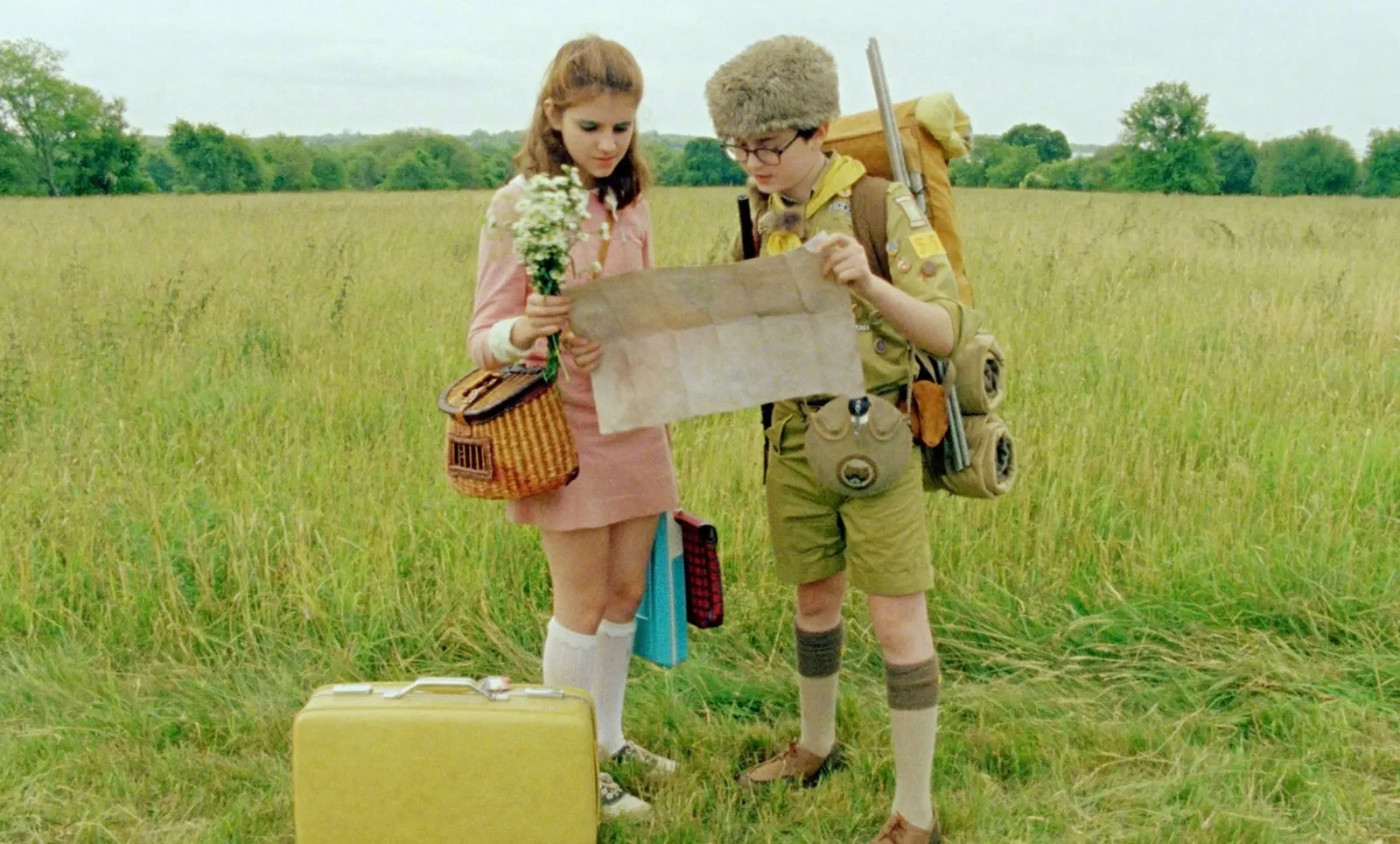
“I will meet you in the meadow,” writes the bespectacled Sam (Jared Gilman) to serious Suzy (Kara Heyward) as they prepare to run away together. Wes Anderson’s Moonrise Kingdom, a whimsical tale of a romance between a pair of wise-beyond-their-years 12-year-olds (beautifully art-directed and accessorized as always), is a tonic to the jaded palate. The children, with their barely sexual, pure-hearted affection for each other, could teach the misbehaving adults around them a thing or two about love. Who wouldn’t want to dance on the beach in their underwear to Françoise Hardy?
Silver Linings Playbook (2012)
For the kind of love that drives you crazy.
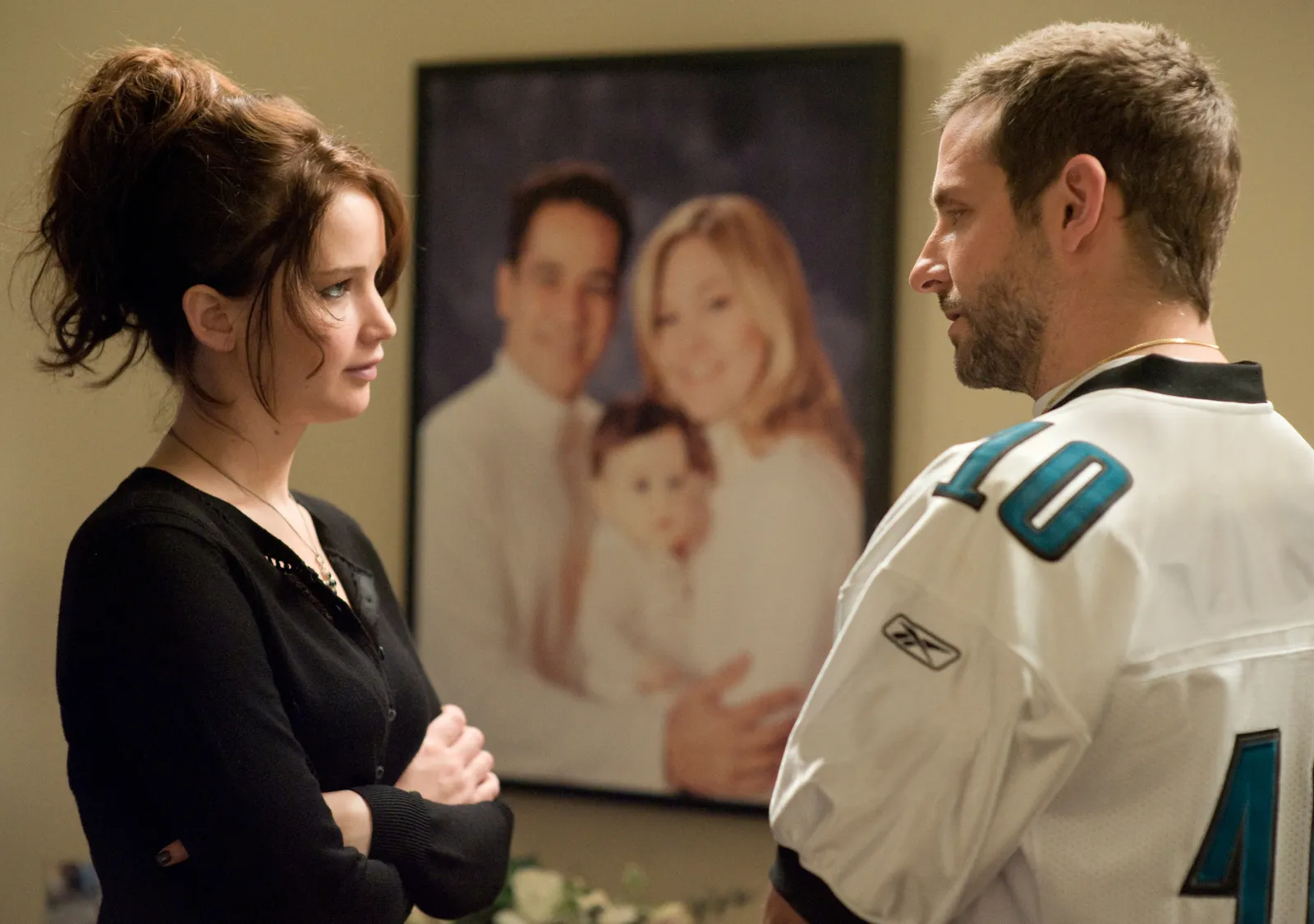
A really funny tearjerker following Pat Solatano (Bradley Cooper), a substitute teacher recently released from a mental institution. With no job and no wife, Pat moves in with his parents, determined to rebuild his life by getting his job back, rekindling his marriage (despite the restraining order), and bonding with his father (Robert De Niro) over the Philadelphia Eagles. But then, enter Tiffany Maxwell (Jennifer Lawrence), a recent widow who agrees to help Pat win back his wife if he partners up with her for a dance competition.
Beginners (2011)
To better understand your parents.
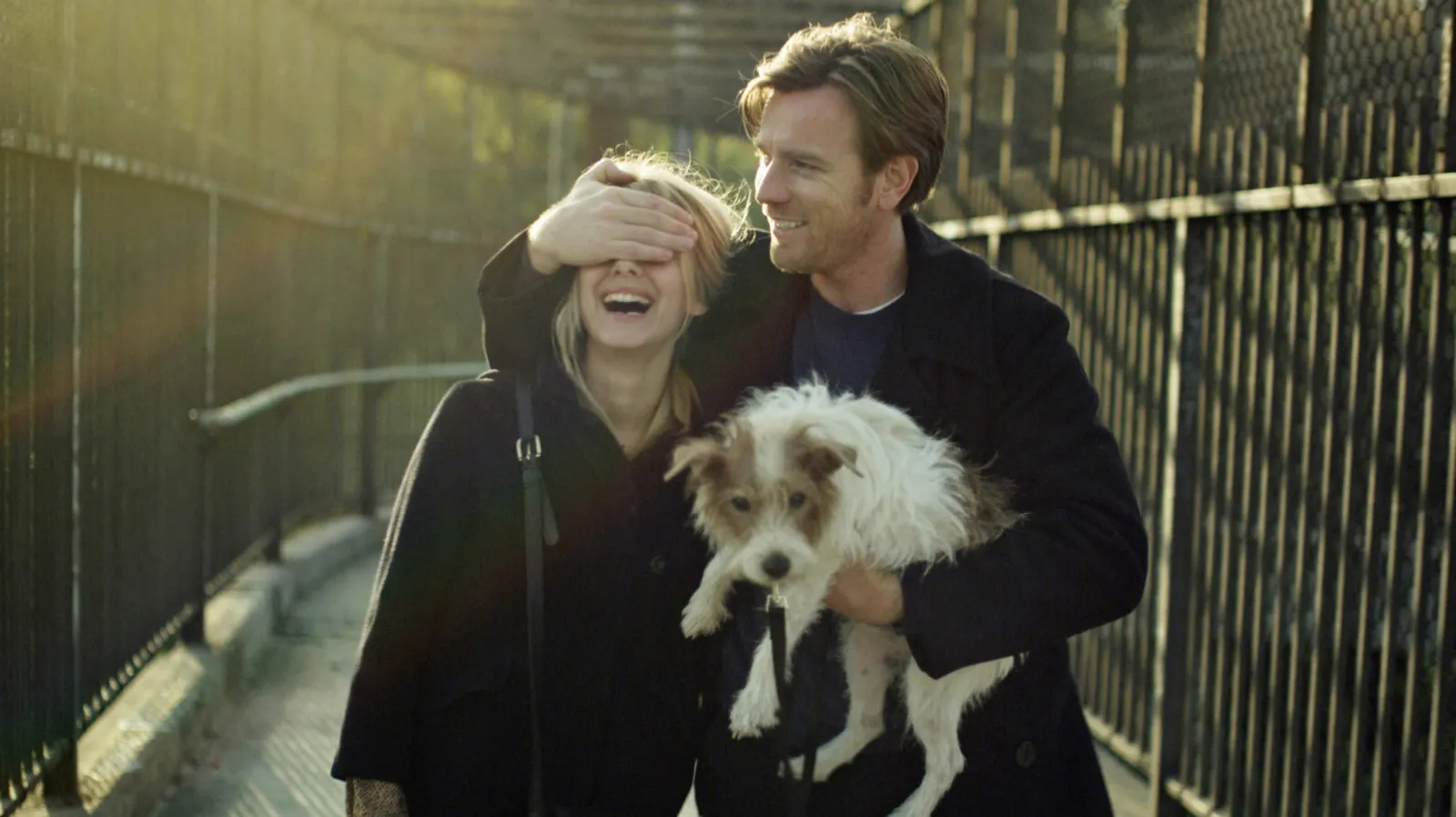
“The History of Sadness” is a sketchbook drawn by Ewan McGregor’s Oliver, a graphic designer who is dealing with the recent coming out of his septuagenarian father, Hal (the late Christopher Plummer—who won an Oscar for his performance). Hal’s new openness about his life inspires Oliver to reevaluate his own sadness and pursue a lovely French actress, Anna. It’s an incredibly touching, difficult story, told mostly in flashback, that involves Oliver coming to grips with his father’s past, his parents’ relationship, his own choices, and his art. But it’s ultimately a love story. A story about how our parents love us and each other—despite the difficulties imposed by society, time, and work—and how we, in turn, learn to love…or not.
Crazy, Stupid, Love. (2011)
To help you get him back.
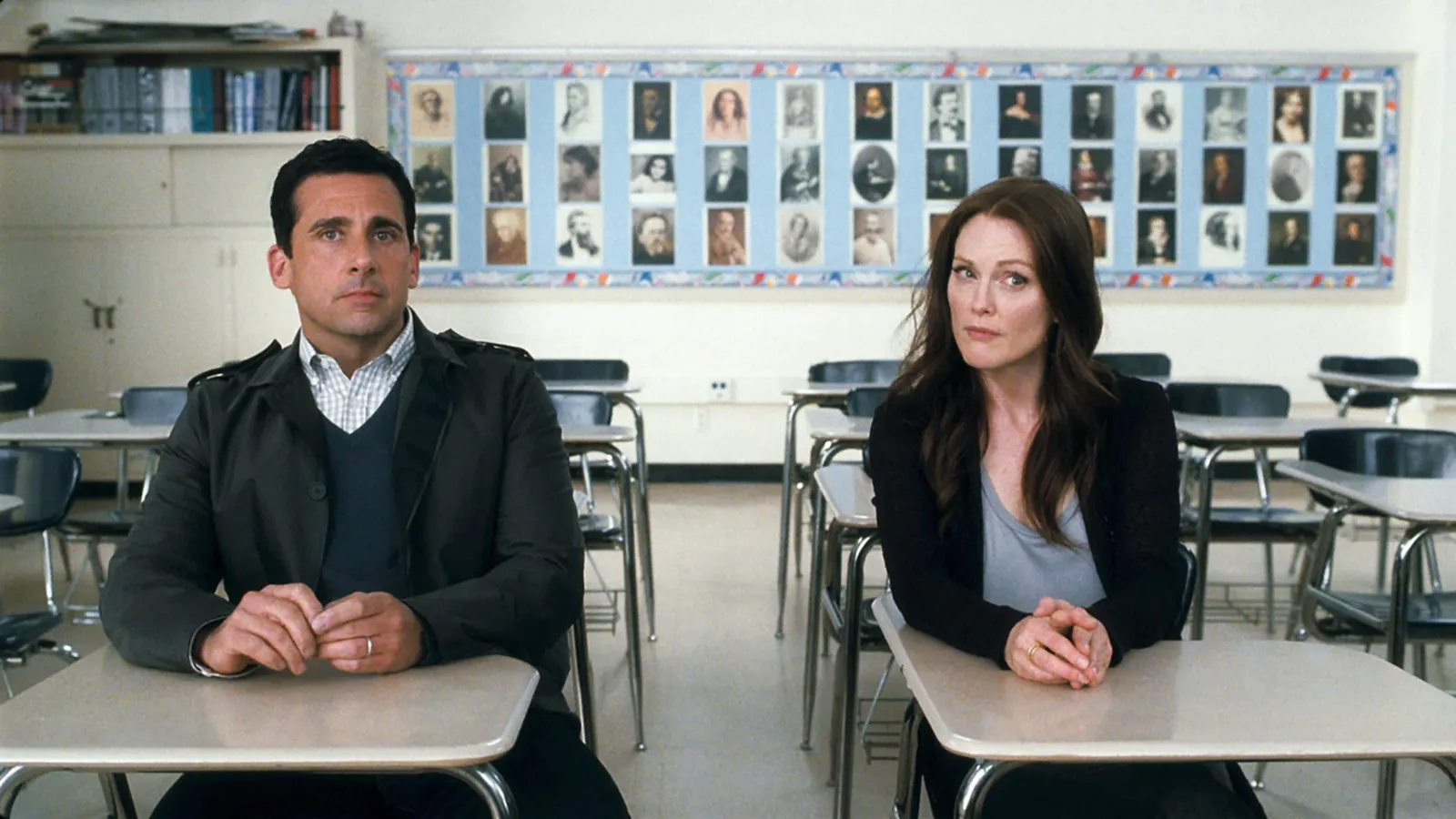
If The 40-Year-Old Virgin was evidence that Steve Carell could be a romantic lead, this was the conclusive proof. Alongside Julianne Moore (as the cheating wife he wants to win back) and Ryan Gosling (who plays his cad coach), as well a terrific performance from a teenage son who loves his babysitter (who in turn loves his nice-guy dad), Carell is well matched. Throw in Kevin Bacon as a romantic rival and Emma Stone as a law student just out of Gosling’s reach, and we’re ready to go. It’s a comedy that’s as much about accepting the facts of life—be they middle age, the people we can’t have, or the people we don’t want others involved with—as much as it is about a pursuit or any one relationship. It’s about how love really is sometimes, which can be romantic in its own right.
Forgetting Sarah Marshall (2008)
To remind you you’re not the only person who’s ever been dumped.
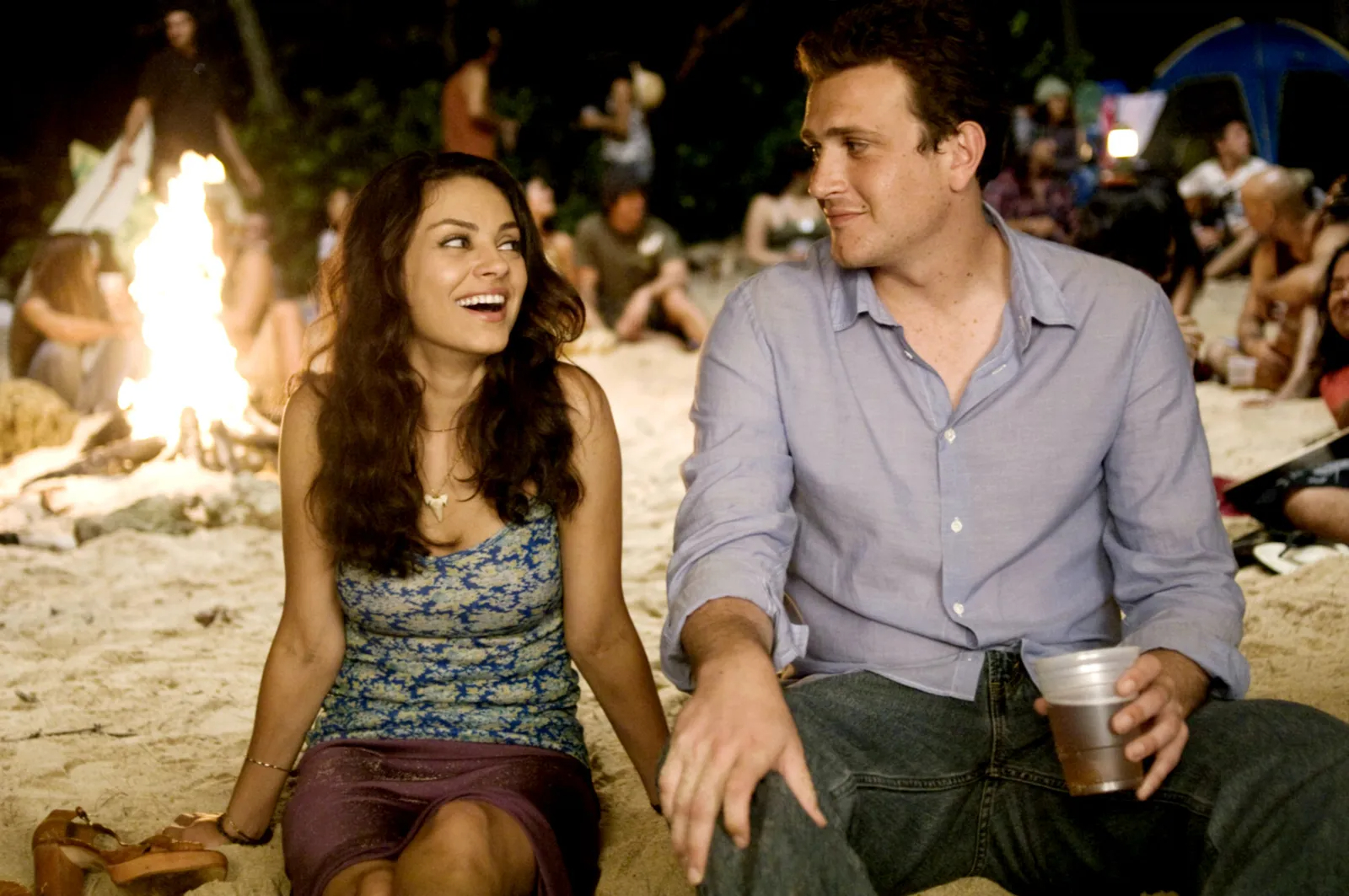
How often does a Dracula-puppet musical feature in a genuinely moving romantic comedy? Forgetting Sarah Marshall might be the sole film to bear that distinction, and if that sounds bizarre…it is, but it works. The film follows recently dumped composer Peter (Jason Segel) as he goes on vacation to try to forget his ex Sarah (Kristen Bell)…only to run into her at a fancy hotel in Hawaii. Luckily, he soon falls for whip-smart hotel clerk Rachel (Mila Kunis), and luckily for the audience, there’s plenty of hilarity along the way, with appearances from the likes of Paul Rudd, Bill Hader, and Maria Thayer.
Nick & Norah’s Infinite Playlist (2008)
To find your song.
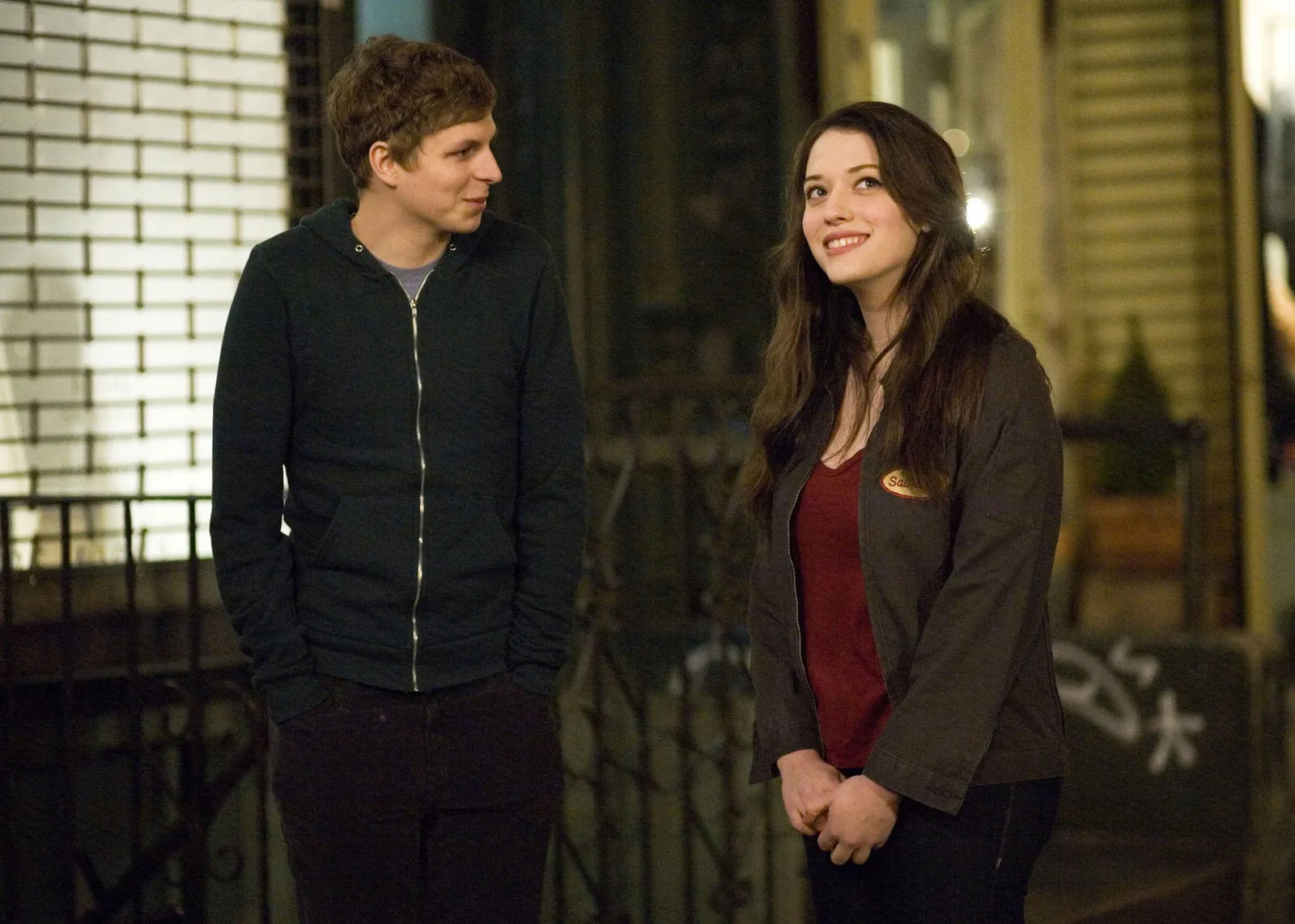
There’s something almost quaint about Norah’s search for her orgasm. The high schooler, played by Kat Dennings, is demeaned by her fellow classmates for having yet to experience the big O. It may sound tawdry, yet this plot point harkens back to a sweeter, John Hughes–era teen comedy (with a few switches flipped) wherein the search for a simple sex act was enough motivation for a number of scenes, if not an entire film. Norah’s lack of fulfillment isn’t what moves the action here; instead, we’re on a search for her best friend and an oh-so-cool band’s secret show, with Nick’s (Michael Cera) hapless band, in his hapless car (a Yugo), through downtown New York City’s music scene. It’s a good-time flick, with cheerful performances and the kind of supporting cast that make 90 minutes seem like a brisk 30. One of these is from Alexis Dziena, who plays Nick’s very recent ex-girlfriend: She toyed with him and never appreciated the music mixes he made for her (spoiler: Norah loves them). Her “sexy” dance, in the glaring light of Nick’s high beams, to Hot Chocolate’s “You Sexy Thing” is one of the great falls from grace, and worth the price of admission.
WALL-E (2008)
To get you on board with A.I.
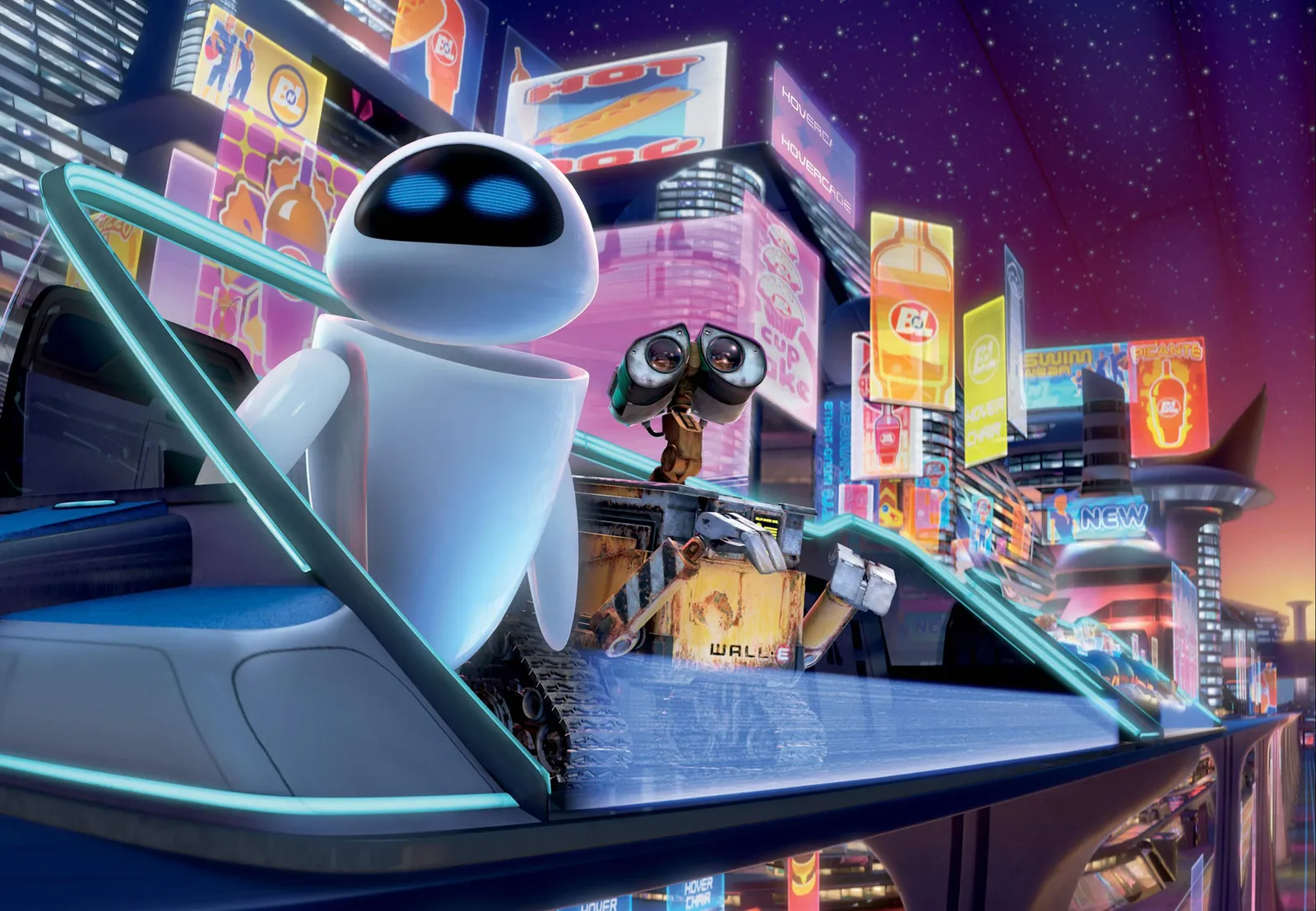
There are more epic Disney romances (one of them is on this list), but none more thoughtful. What we love about this futuristic tale of a little trash compactor, WALL-E, who falls in love with his technological better, EVE, is the considered environmental, anti-consumerist message that suffuses the dystopian love story. With barely a word, only whirrs, between them, EVE and WALL-E convincingly fall in love. His efforts to save her when she’s swooped up by the megacorporation Buy-n-Large (their maker) is as authentic as Hawkeye’s return for Cora, or Jack’s sacrifice for Rose. Forget Finding Nemo, this is writer-director Andrew Stanton’s Pixar masterpiece.
Juno (2007)
To remind you that life doesn’t always go as planned, but sometimes that’s okay.
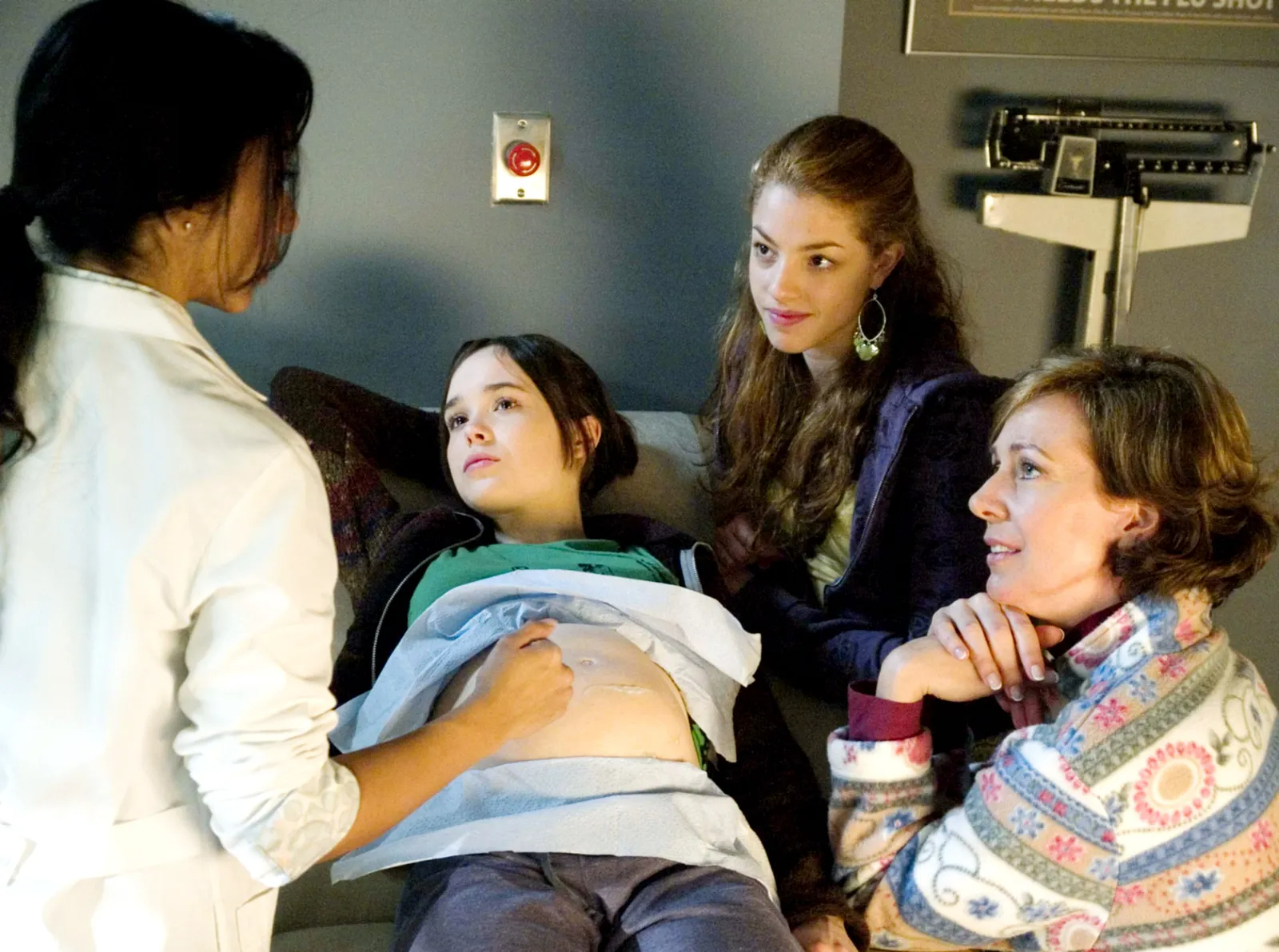
In Juno, Elliot Page gave his breakout performance as the titular pregnant-by-accident teen who soldiers on through high school while preparing to give her baby up for adoption to a painfully needy rich couple (or “baby-starved wingnuts,” as her father calls them). Juno’s honesty and her backward love story with the adorably nerdy Paulie (Michael Cera) remind us of the true meaning of being cool and that heartache can resolve itself into a tender, resilient future.
Two Days in Paris (2007)
For a dose of realism (and Paris!).
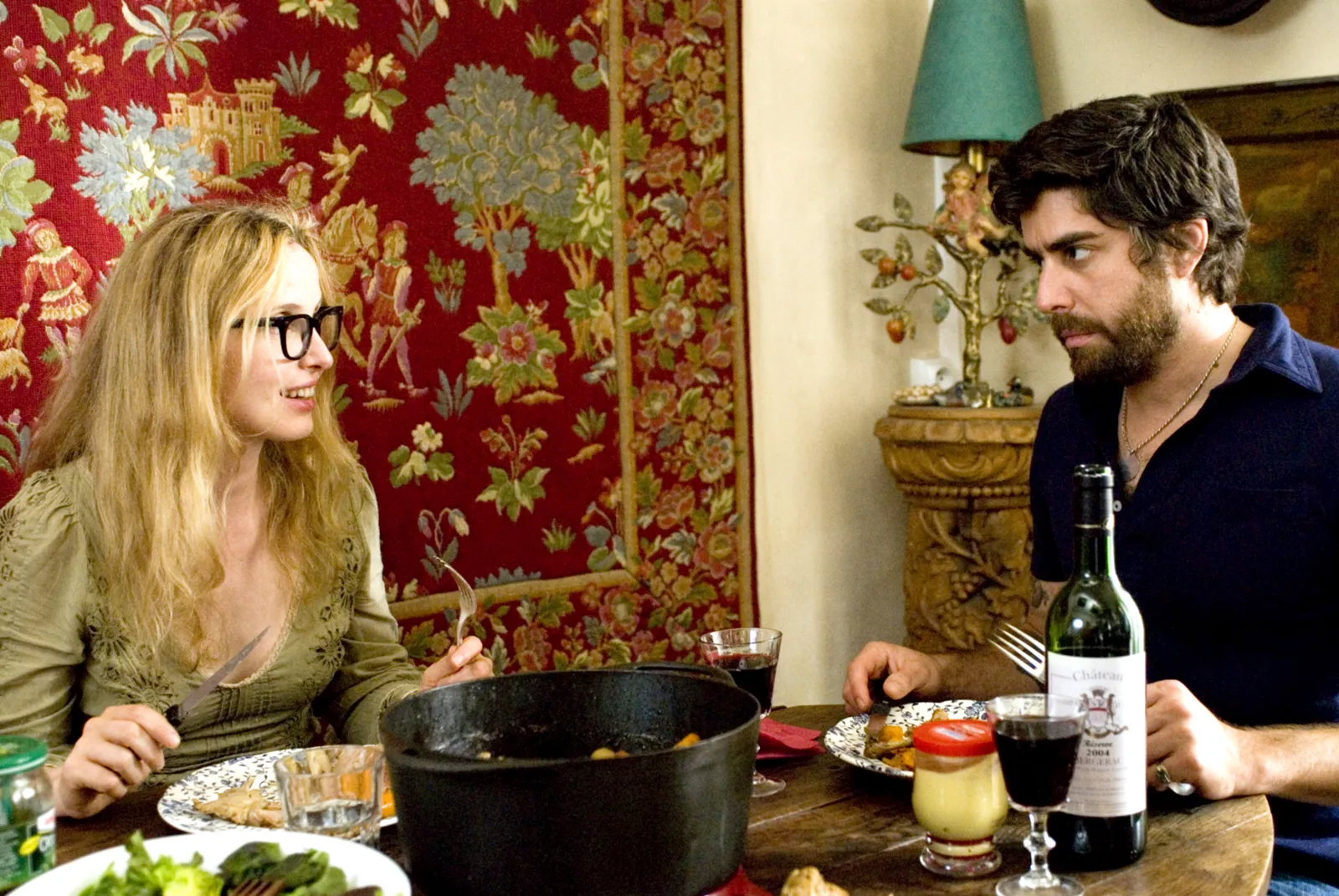
For sheer hilarious, messy, complicated realism, Two Days in Paris takes the prize. The brilliant and surprising Julie Delpy writes, directs, and stars as Marion, a young Frenchwoman who has brought her American boyfriend Jack (Adam Goldberg) to her hometown en route from a trip to Venice. They struggle through misunderstandings, language barriers, cultural clashes, encounters with Marion’s many ex-boyfriends, and her unruly parents (played by Delpy’s real-life mother and father, actors Marie Pillet and Albert Delpy), and barely come out the other side. The moral, as Marion says, is that “it’s not easy being in a relationship, much less to truly know the other one and accept them as they are with all their flaws and baggage.” It may not be easy, but it’s highly entertaining to watch them try.
Me and You and Everyone We Know (2005)
To inspire you to shoot your shot.
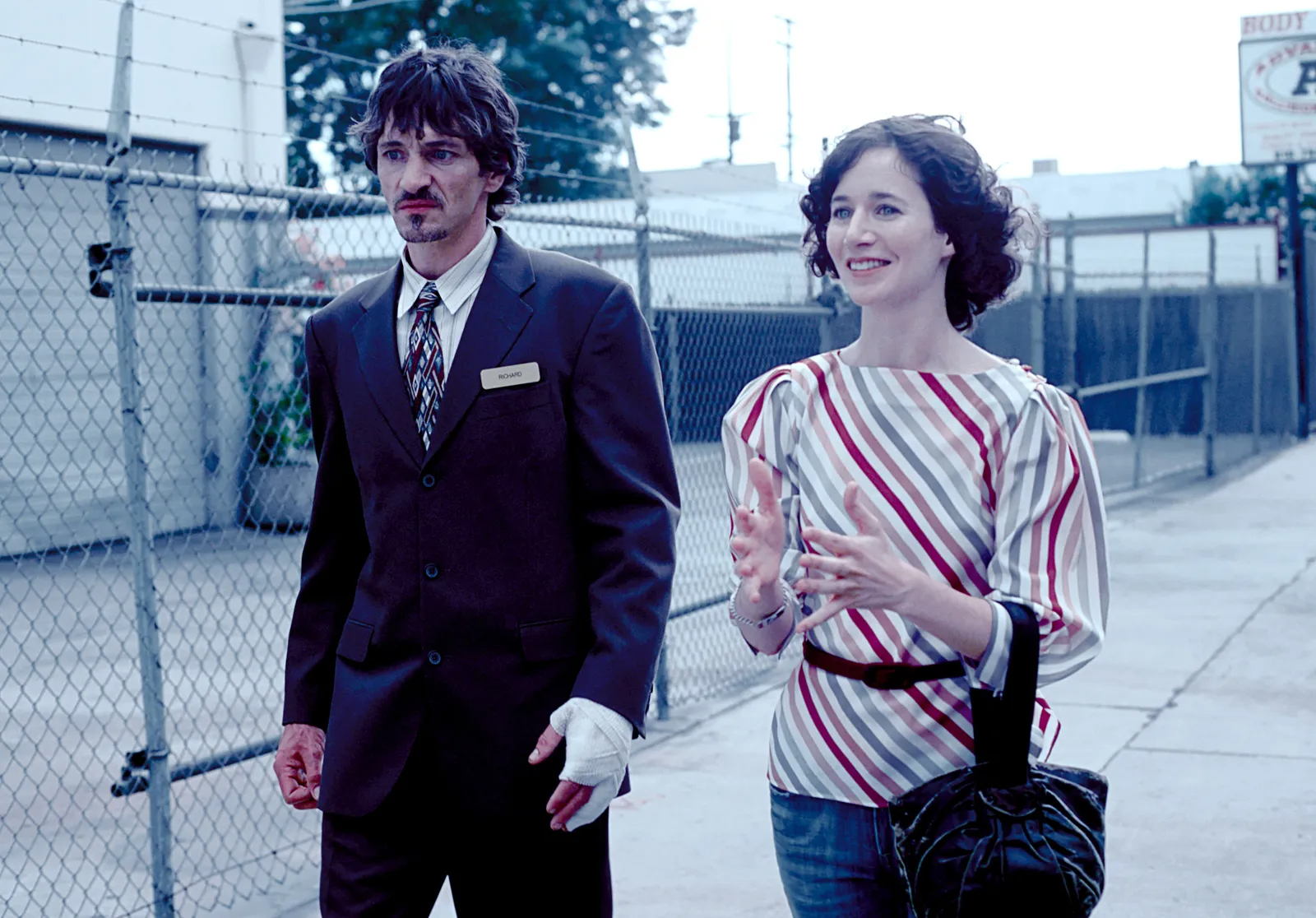
One of the quirkier additions to this list—and it would be, coming from the wonderfully wacky mind of Miranda July—Me and You and Everyone We Know is about both our need to connect, and how completely terrifying true intimacy can be. There’s Christine (July) and Richard (John Hawkes), a video artist and a shoe salesman who seem to have something going until Richard cuts it off; Richard’s six-year-old son, Robby (Brandon Ratcliff), and the older woman (Tracy Wright) with whom he begins a flirtation online; two teenage girls (Natasha Slayton and Najarra Townsend) engaged in a troubling back-and-forth with their neighbor (Brad William Henke); and several other strange souls tentatively entering each other’s orbits. “July’s debut feature wasn’t the first movie about the internet,” IndieWire’s David Ehrlich observed of the film in 2020, “but it may have been the first to recognize how we’d express ourselves through it, and how the utopian promise of ‘social media’ would so plainly reveal how scared we are of getting close to each other.”
First Daughter (2004)
To get you daydreaming about a White House romance.
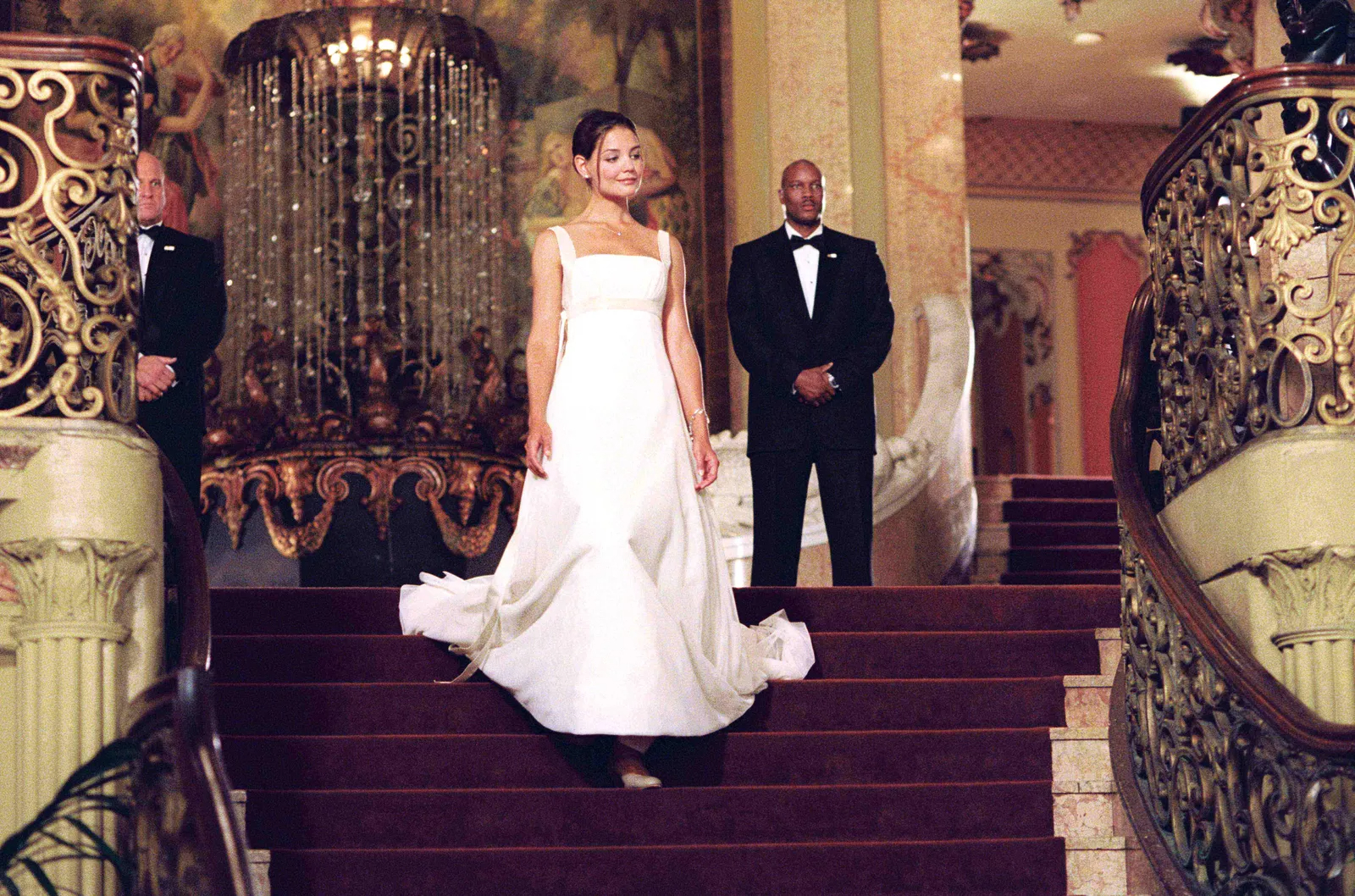
Okay, technically speaking, 2004’s First Daughter—the story of a president’s daughter shaking off her Secret Service detail and her strict upbringing to let loose with a handsome stranger—bears a lot of resemblance to another movie of the same year, Chasing Liberty. Nevertheless, Katie Holmes’s effervescent performance—as well as her hot Secret Service crush, played by Marc Blucas—gives this version the edge.
How to Lose a Guy in 10 Days (2003)
To convince you that true love can actually begin with a journalistic assignment.
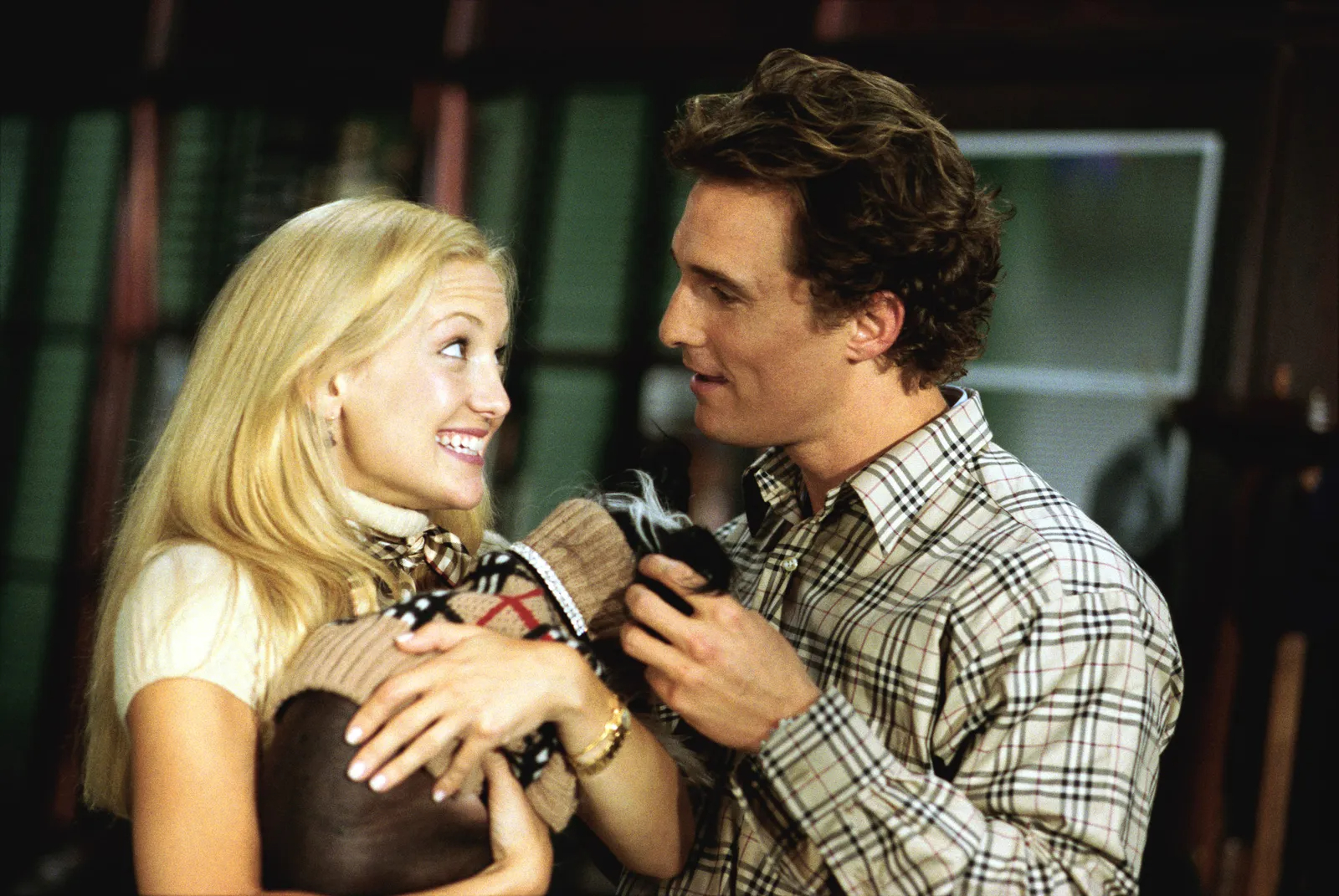
Kate Hudson stars as plucky reporter Andie Andersen, who is saddled with the “How To” beat at a women’s magazine but dreams of reporting about Tajikistan. Challenged to get a guy to break up with her in 10 days, she sets her sights on ad exec Ben Barry (Matthew McConaughey)…who, little does she know, has made a bet with his coworkers that he’ll be able to make her fall in love with him. Sparks fly, tears are shed, and absolutely epic early-2000s outfits (remember lacy camisoles with low-slung jeans?) are worn.
Lost in Translation (2003)
To remind you that karaoke is always a good idea.
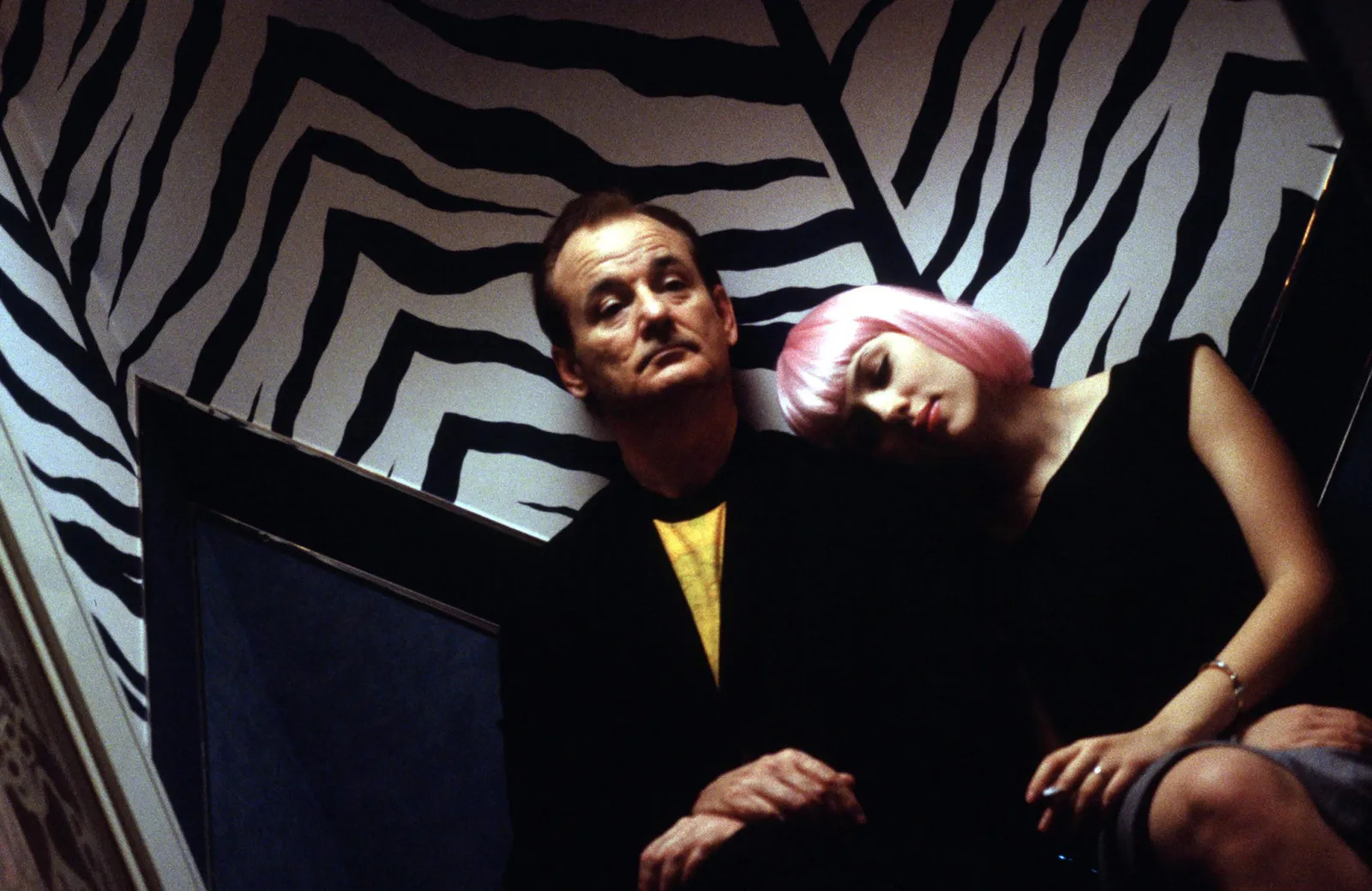
There was never any doubt that Scarlett Johansson was going to be a megastar, but Sofia Coppola’s movie—about the lonely wife of a photographer who befriends an over-the-hill movie star (Bill Murray) while visiting Tokyo—is what made the world stand up and realize we were dealing with a serious actor. Like many of the films on this list, Lost in Translation takes place in a bourgeois universe, where the greatest thing at risk is someone’s heart or future emotional happiness, but few films have so effectively crystalized the alienation of both travel and marriage, as well as the difficulties of postcollegiate, and then midlife, malaise. The older man and the younger woman don’t so much meet-cute as crash into each other, picking up each other’s pieces and redeeming each other’s lives as they navigate their surreal setting. It’s a match made in heaven—and without spoiling anything, their goodbye scene is among the best in Hollywood history.
Love Actually (2003)
To get you through the holidays.
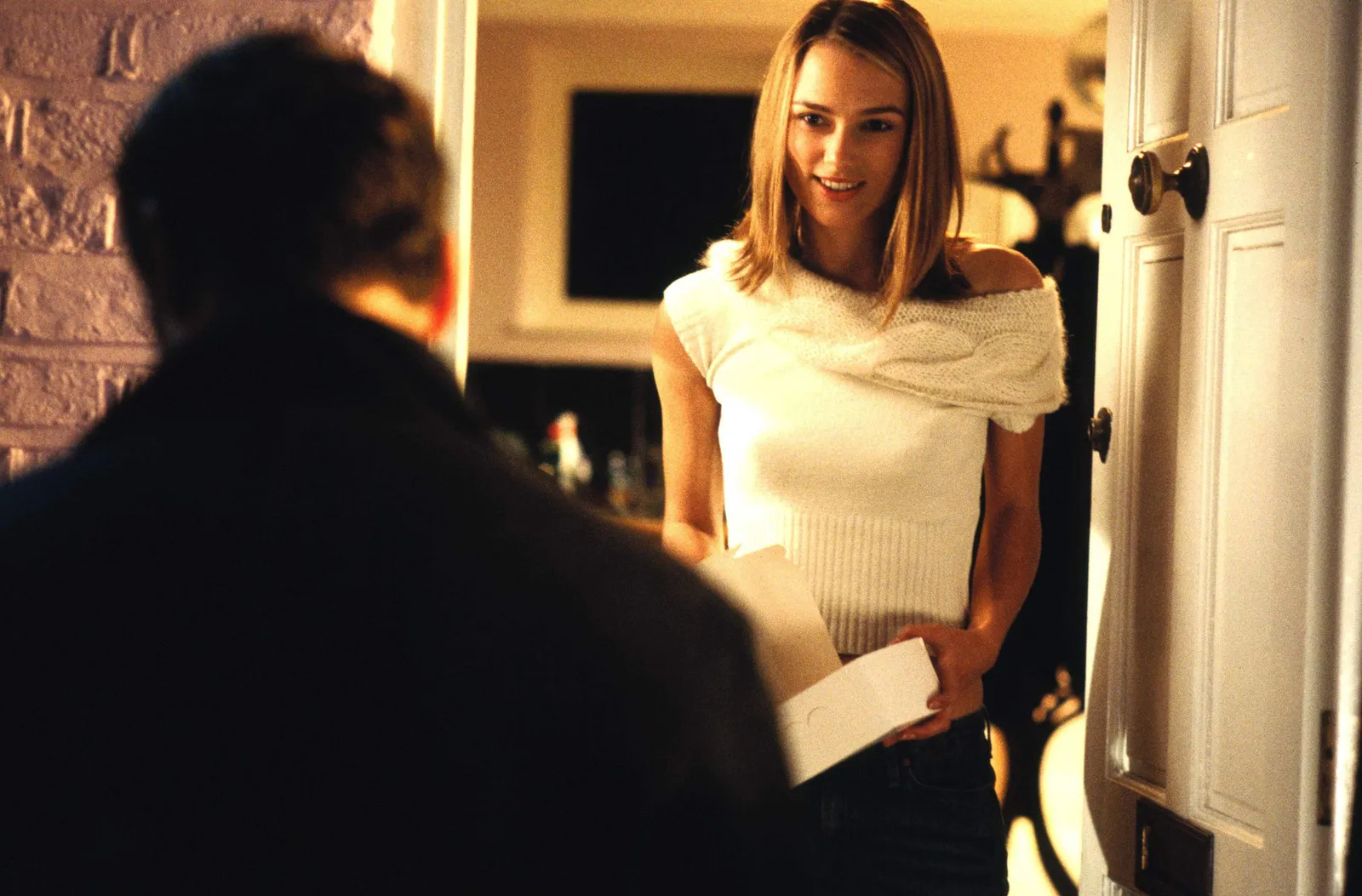
Love Actually is, actually, a rather clichéd Christmas rom-com, but jeez, we love it anyway. How can we not, with this ensemble cast of British romance all-stars (Hugh Grant, Emma Thompson, Liam Neeson, Colin Firth, and Keira Knightley, among others)? The prime minister (Grant) falling for a junior staff member? A quiet suitor in love with the new bride (Knightley) of his best bud (Chiwetel Ejiofor), who is apparently one of three people of color in London? A cuckolded boyfriend (Firth) rebuilding his shattered life with the help of his shy housekeeper? Balderdash. All of it. But it’s irresistible. Come on, what are you, made of stone?
Something’s Gotta Give (2003)
To sate your Hamptons beach-house cravings.
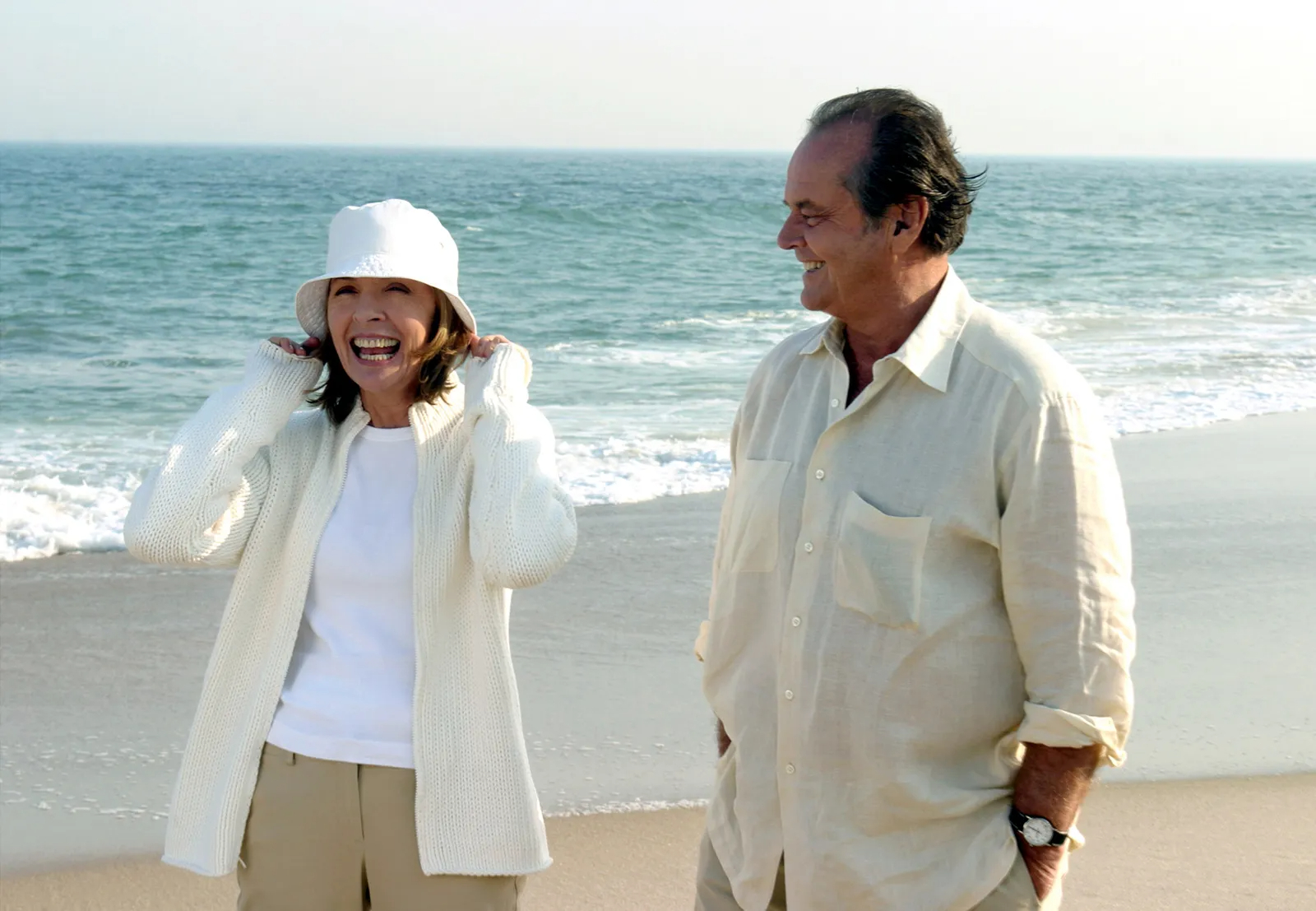
This Diane Keaton and Jack Nicholson–fronted romp is the platonic ideal of a Nancy Meyers movie, featuring beachside scenes, cashmere turtlenecks, and endless amounts of kitchen porn. No less charming is the central, slow-building relationship between Nicholson’s rascal bachelor Harry and Keaton’s prim playwright Erica (although the fact that the movie starts out with Harry dating Erica’s daughter—played by Amanda Peet—is a little cringey, to be sure). Bonus: Keanu Reeves appears as a hunky doctor.
Under the Tuscan Sun (2003)
To vicariously fulfill the fantasy of running off to Europe after a bad breakup.
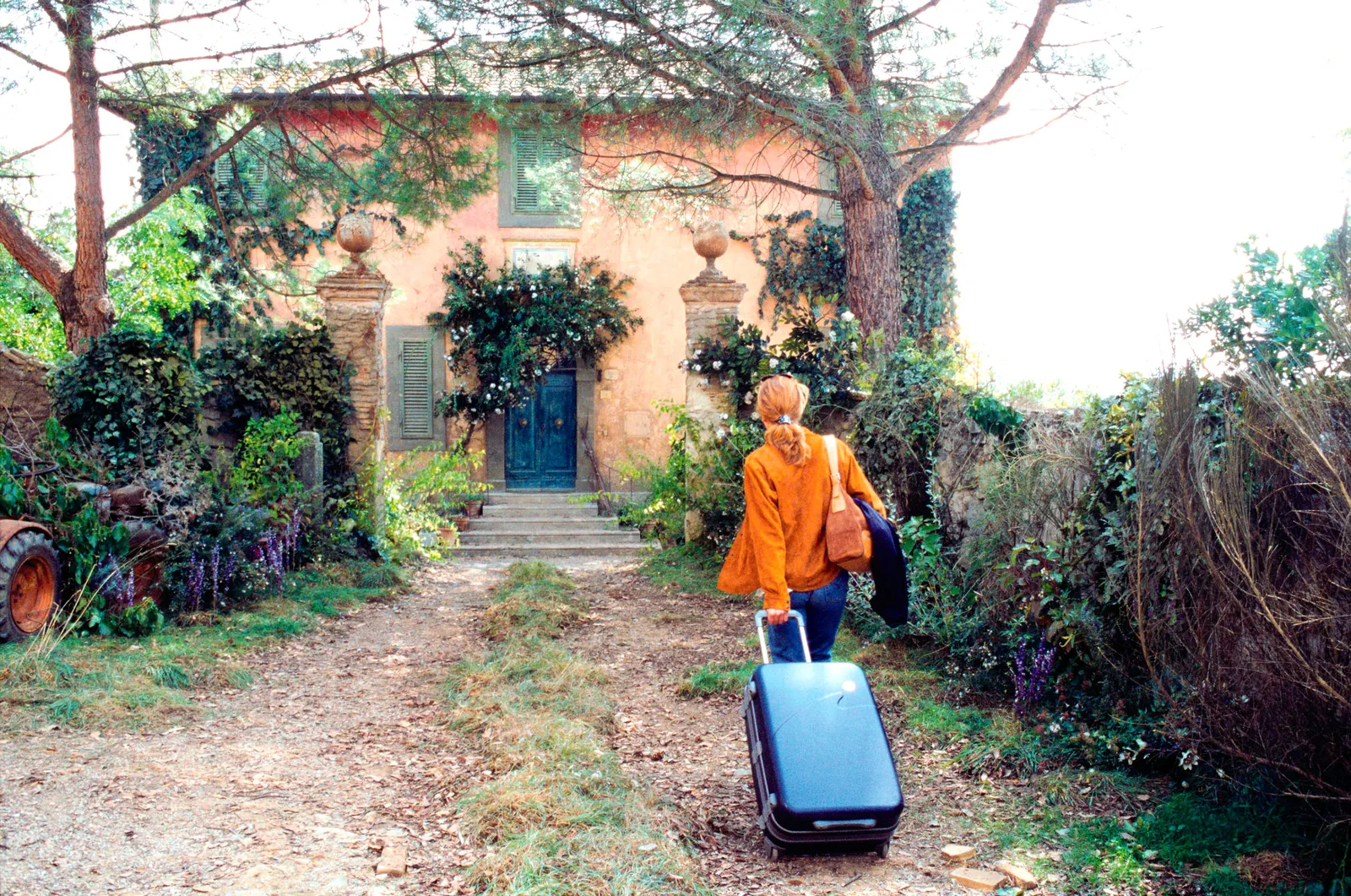
Nothing satisfies quite like this early-aughts classic, which finds Frances (Diane Lane) grieving a recent divorce in San Francisco. A wild tour of Tuscany brings her to villa up for sale, and thus, her Italian adventure begins. There’s plenty of romance to be had in this film, of course—you can’t impulsively move to Italy without a few flings!—but the best part of Under the Tuscan Sun is watching Frances find herself. (The appearances from Sandra Oh and Kate Walsh don’t hurt, either.)
Maid in Manhattan (2002)
To get your vintage J. Lo fix.
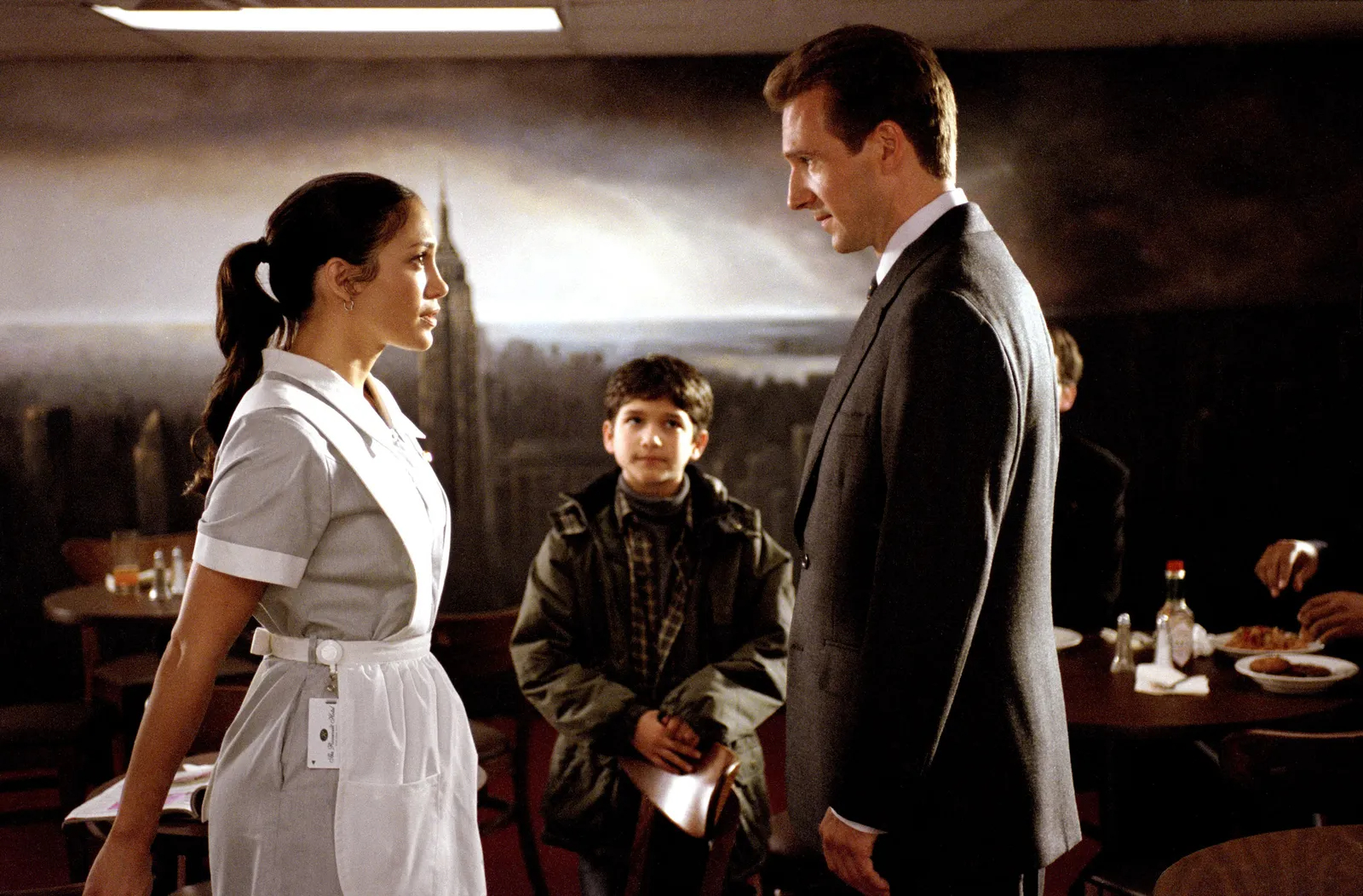
Long before Jennifer Lopez lit up the screen in Hustlers, she was changing sheets and dreaming of true love as Marisa Ventura, a single mom working as a hotel maid who meets a charming senatorial candidate and, through a series of only-in-a-rom-com hijinks, has him believing she’s a socialite. This modern-day Cinderella story showcases J. Lo’s acting talents as well as her chemistry with Ralph Fiennes.
Two Weeks Notice (2002)
To remind you how extremely charming Hugh Grant can be.
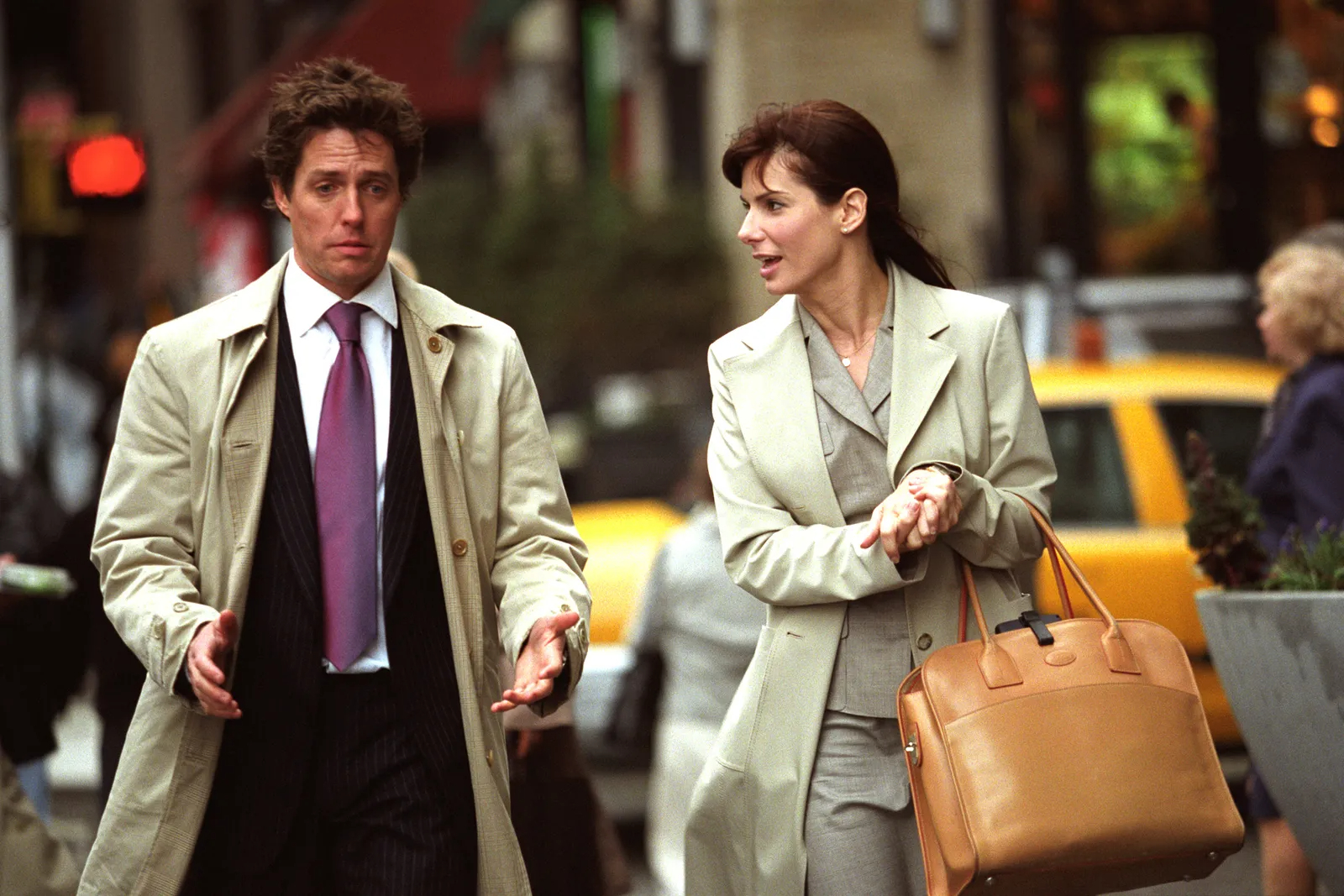
Hugh Grant + Sandra Bullock = an absolutely unmissable combination. This somewhat slept-on rom-com features Bullock as a grumpy, dedicated environmental lawyer who takes a job with Hugh Grant’s massive company in order to ensure the safety of her beloved local community center. Romantic tension builds alongside genuine friendship in Two Weeks Notice, making it the rare rom-com with a happy ending that actually feels earned.
Bridget Jones’s Diary (2001)
To remind you that fuckboys will be fuckboys.
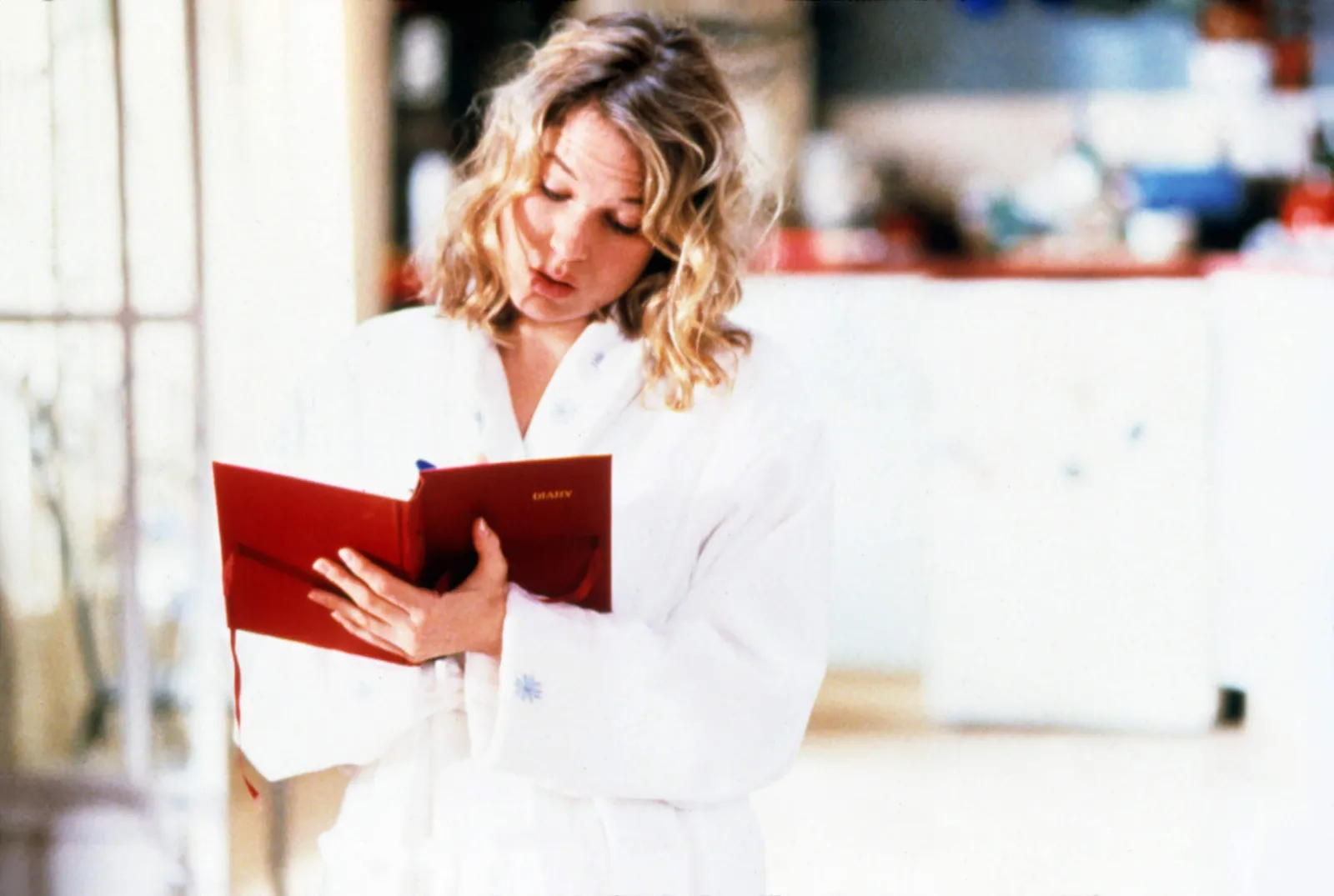
Hollywood does this silly, shitty thing when they want to make it clear that a woman is “funny”: They make her clumsy. “Did you see that? She fell down in front of the boss she has a crush on while carrying many things! What a wit!” Thankfully, this film is actually funny, and so is Renée Zellweger, the titular Bridget Jones, who is 32 and a bit clumsy, and believes herself to be both a tad overweight and running short of romantic options. She confesses to her diary her feelings about the men in her life: her caddish colleague, Daniel (Hugh Grant), and her pill of a childhood friend, Mark Darcy (if that surname reminds you of one of your favorite literary comedies, that’s not by coincidence), who begin vying for her hesitant affections in their respectively charmless ways. Who will win—the nice guy or the jerk? The clumsy, funny, openhearted girl, of course! The story has a classic but important lesson to share: First impressions aren’t everything (and a fashion-related takeaway: never judge a man by his Christmas sweater).
Legally Blonde (2001)
To vindicate your Prada obsession.
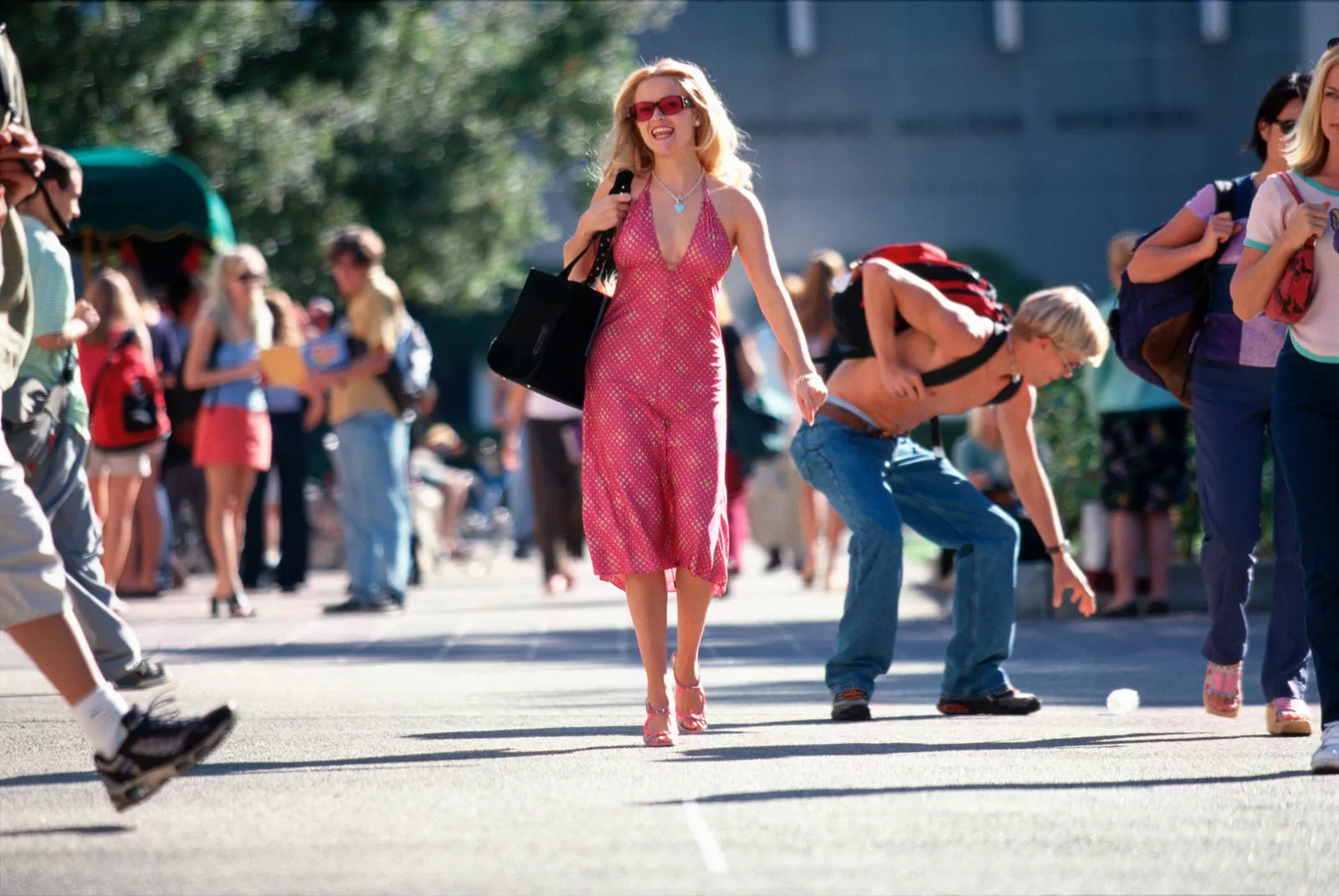
Reese Witherspoon delivers perhaps her most iconic performance as Elle Woods, a sorority girl turned law student who gets herself into Harvard Law School to win back her douchebag boyfriend, but quickly learns there’s more to all this law stuff than meets the eye. Elle may develop her intellect and find love with a cute lawyer (Luke Wilson), but more importantly, she does it all without compromising on her killer sense of style. And, really, has there ever been a better line reading than Jennifer Coolidge’s “I’m taking the dog, dumbass”?
Bring It On (2000)
To get you pumped up.
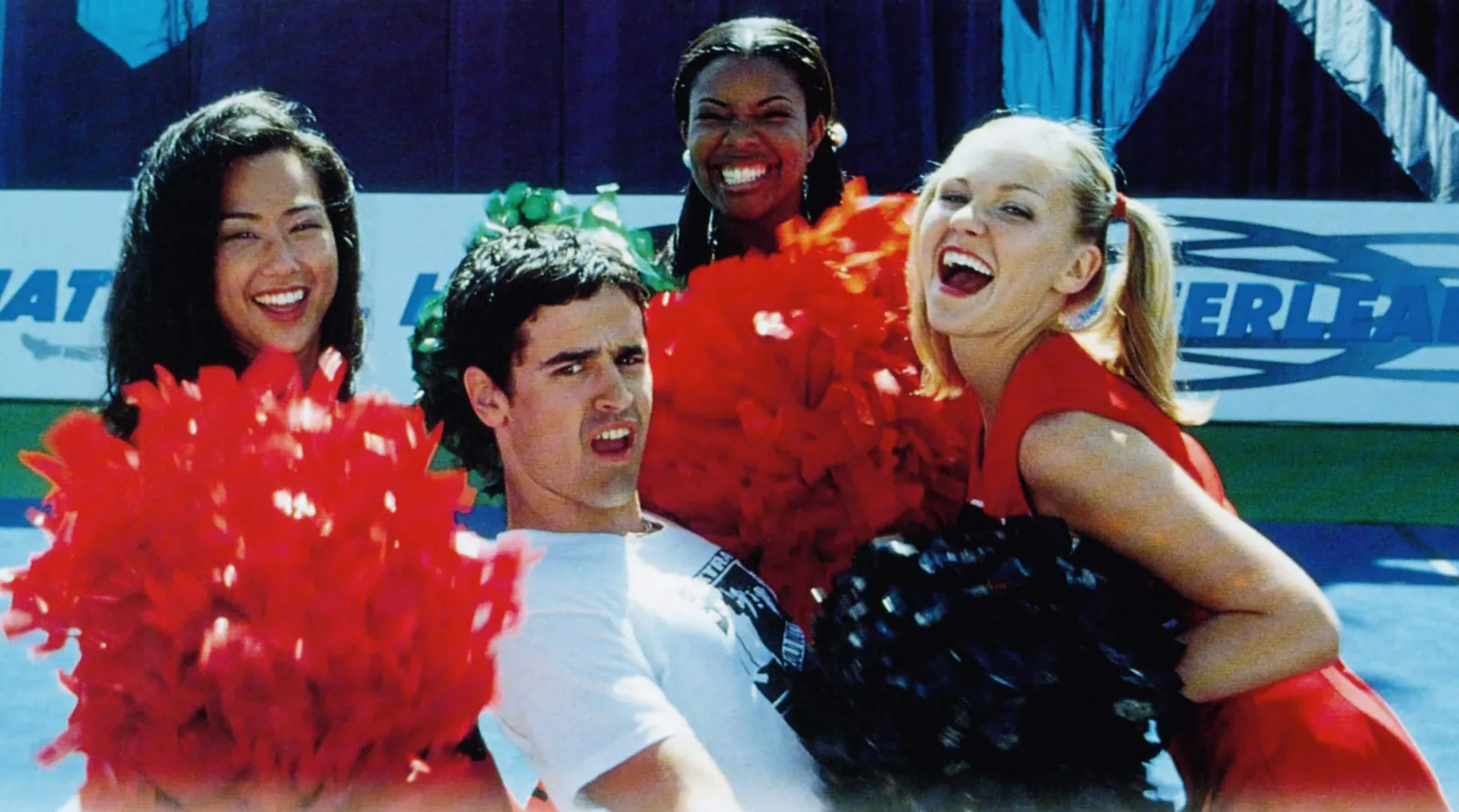
This is the pregame of romantic comedies. It’s a love story—between millennial hotties Kirsten Dunst and Jesse Bradford—packed into 98 minutes of jokes, rivalries, teen romance, and ridiculous cheers. (“Hate us ’cause we’re beautiful—well, we don’t like you either. We’re cheerleaders. We. Are. Cheerleaders!”) Some of us have defended this movie since it bowed (and then cartwheeled into an aerial walkover) in 2000 as a sharp appreciation of teen culture and teen cinema, both devoid of cynicism and long on wordplay. If you agree, welcome to the squad. If not, please keep in mind, “This is not a democracy; it’s a cheer-ocracy.”
But I’m a Cheerleader (2000)
To make your rom-com collection a little less straight and narrow.
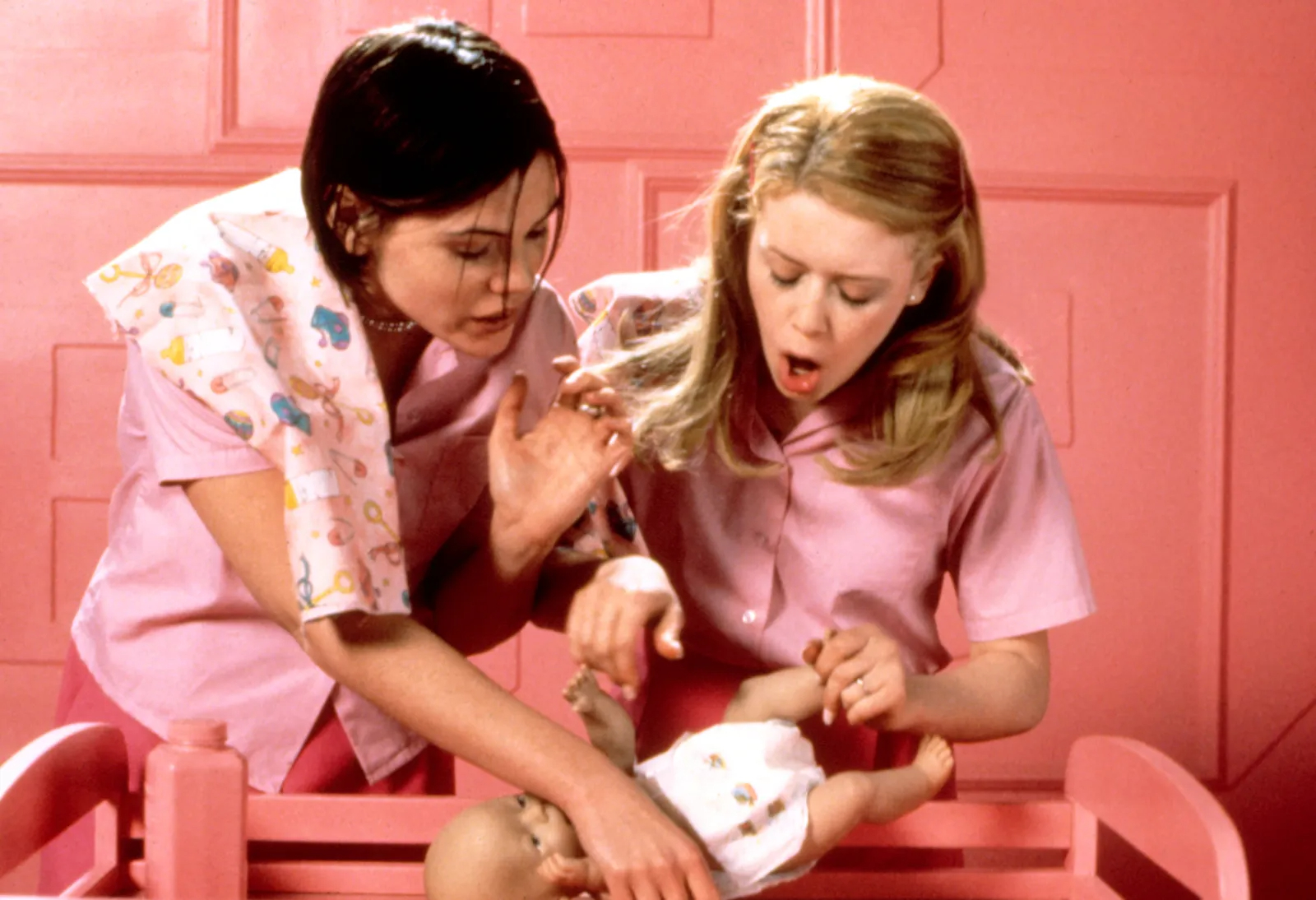
Directed by Jamie Babbit, this dark comedy centers around a religious high-school cheerleader Megan (Natasha Lyonne) sent away to “straight camp,” where the staff attempts to turn her and her fellow queer teens toward the Lord. Unfortunately for them, that doesn’t quite work out, as Megan falls hard for her fellow female camper Graham (Clea Duvall). Even two decades later, But I’m a Cheerleader holds up as one of the campiest, sweetest, and—to be frank—very few lesbian rom-coms out there.
Miss Congeniality (2000)
To soothe your feminist, down-with-the-patriarchy soul.
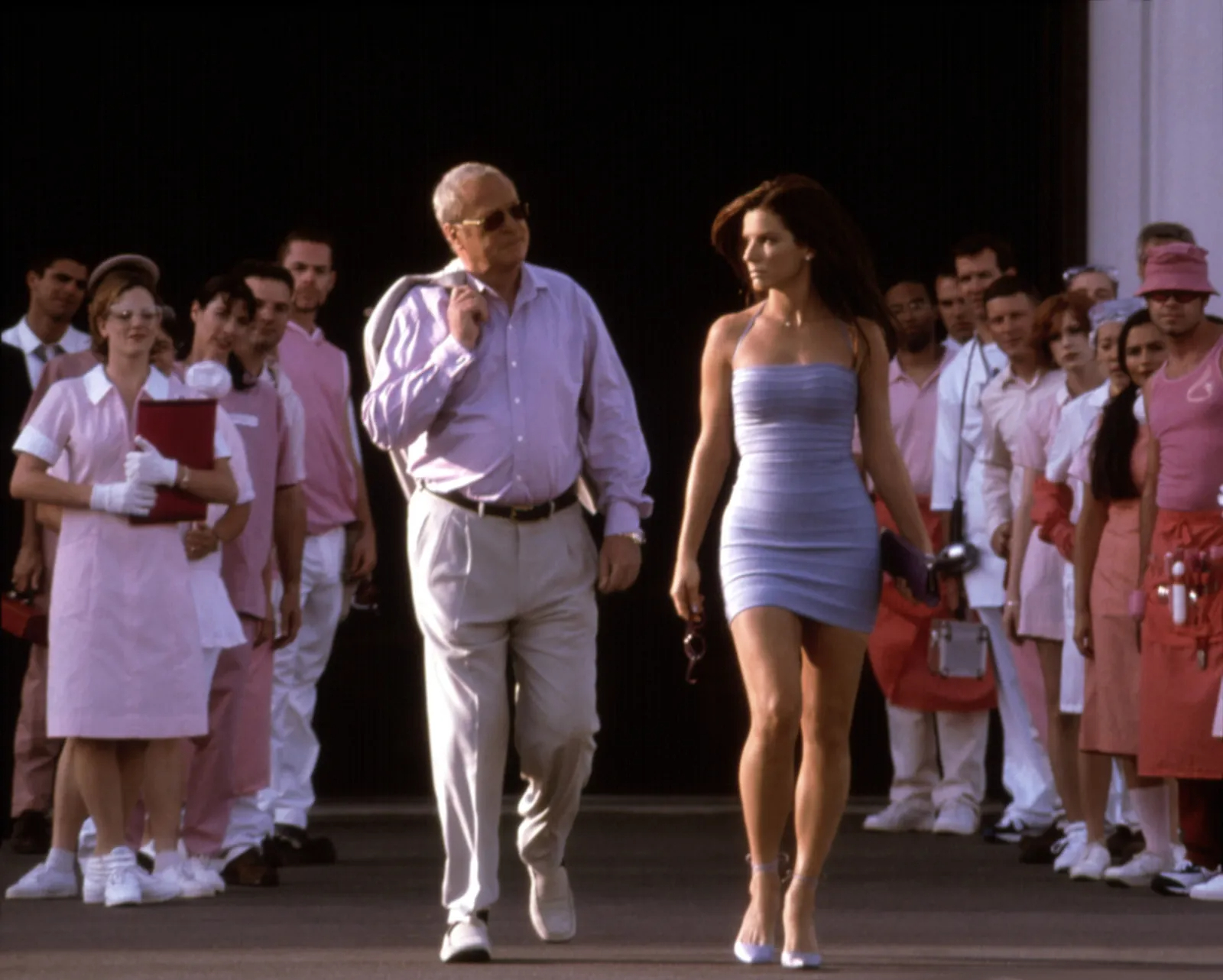
Rom-coms don’t get more fish-out-of-water than Miss Congeniality, in which Sandra Bullock’s Grace plays an FBI agent who goes undercover at a beauty pageant to unmask a killer. Originally cynical about all things pageant-related, Grace ends up building real friendships amid all the hairspray and lipstick; and, of course, she builds a little more than a friendship with her coworker, played by Benjamin Bratt. Bonus: This film features one of the best makeover montages of all time, set to “Mustang Sally.”
10 Things I Hate About You (1999)
To make it a girls’ night.
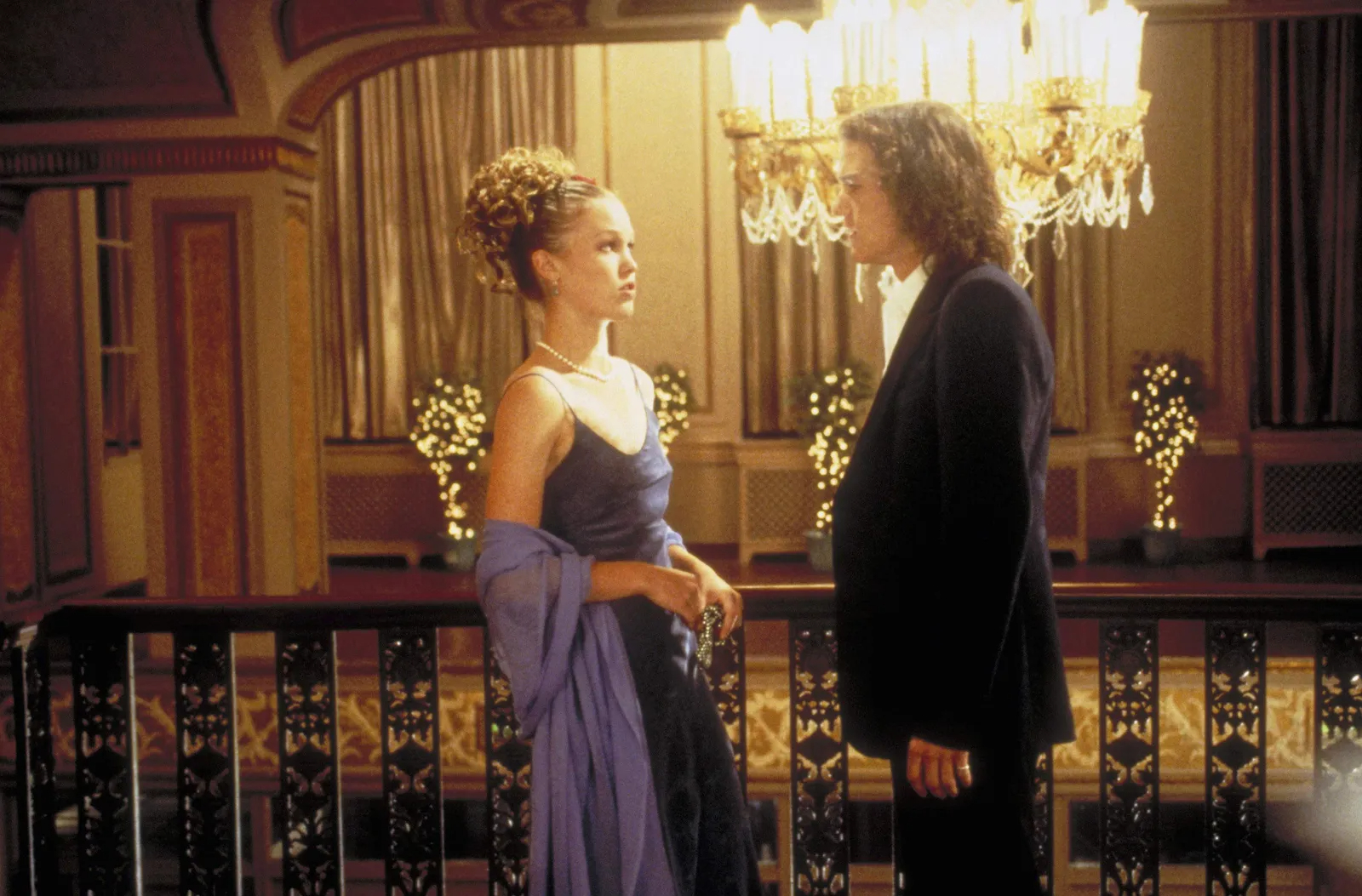
This movie, a teen-ready take on The Taming of the Shrew, offers some cute turns from youngsters Joseph Gordon-Levitt, Julia Stiles, and Larisa Oleynik, but ask most women, and the performance that sticks out is Heath Ledger’s, whose thuggish Patrick Verona made many of us weak in the knees. Like Bring It On, and unlike most other films, especially teen films, this one is female-focused. They’re the moral centers. The heroes we cheer for. And they are active in as much as the narrative as they are subject to it (rare!).
American Pie (1999)
To remind you how much better it all gets after high school.
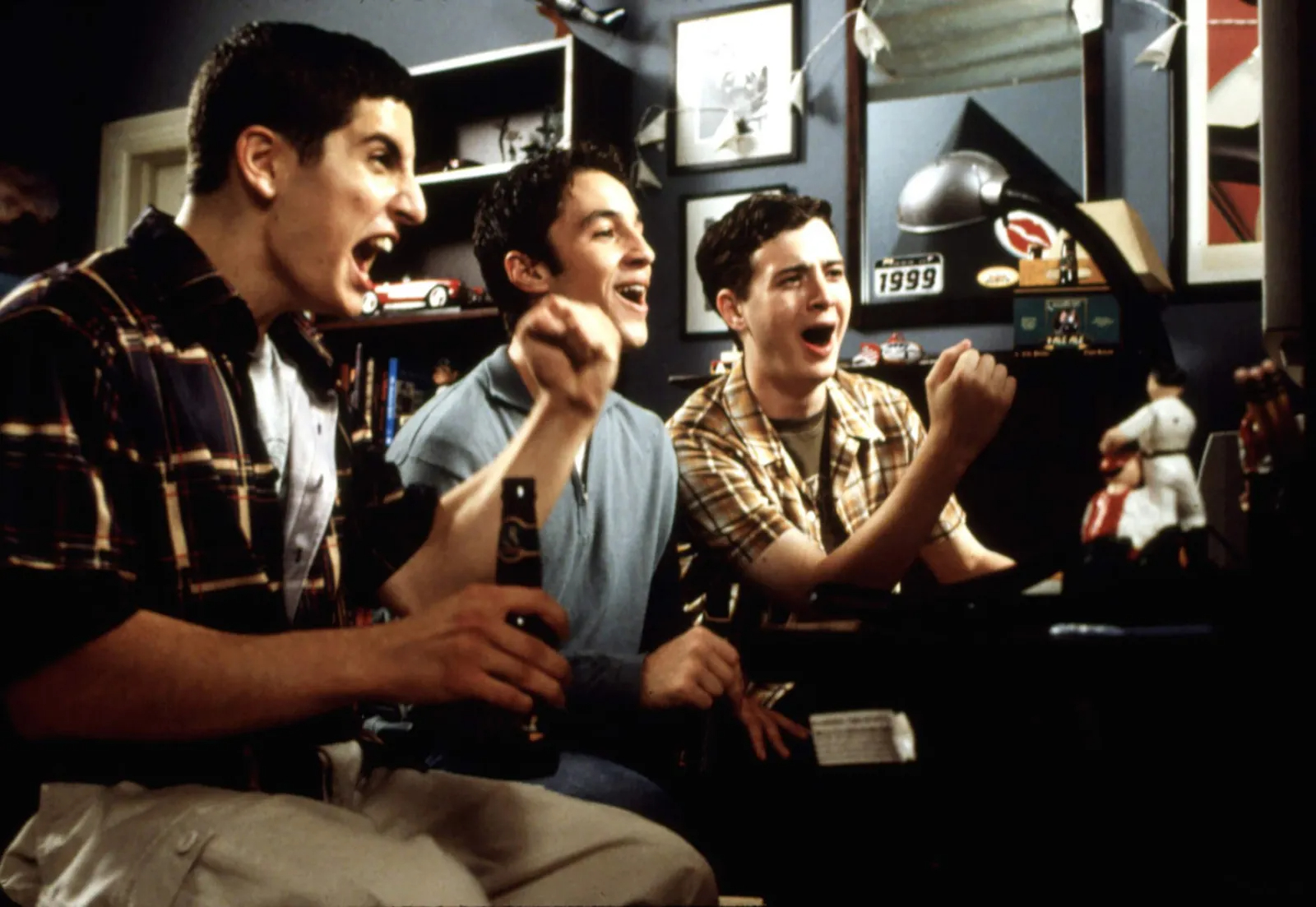
A teen sex comedy with a heart of gold, this story of four high school friends determined to have sex before they graduate was the surprise hit of 1999. But underneath all the masturbating with pastry and accidentally ingested semen cocktails, there’s real sentiment to the adolescent boys trying to find their way with women and vice versa. The reason we can safely call this a rom-com is that, while it doesn’t exactly pass the Bechdel test with flying colors, the objects of the guys’ affections are far from just objects. They have goals of their own we’re brought on board with. The girls aren’t just out for the boys, they’re out for themselves—as disappointingly rare in a rom-com as it is in a teen comedy, and the reason we love this one.
How Stella Got Her Groove Back (1998)
To unplug from the office.
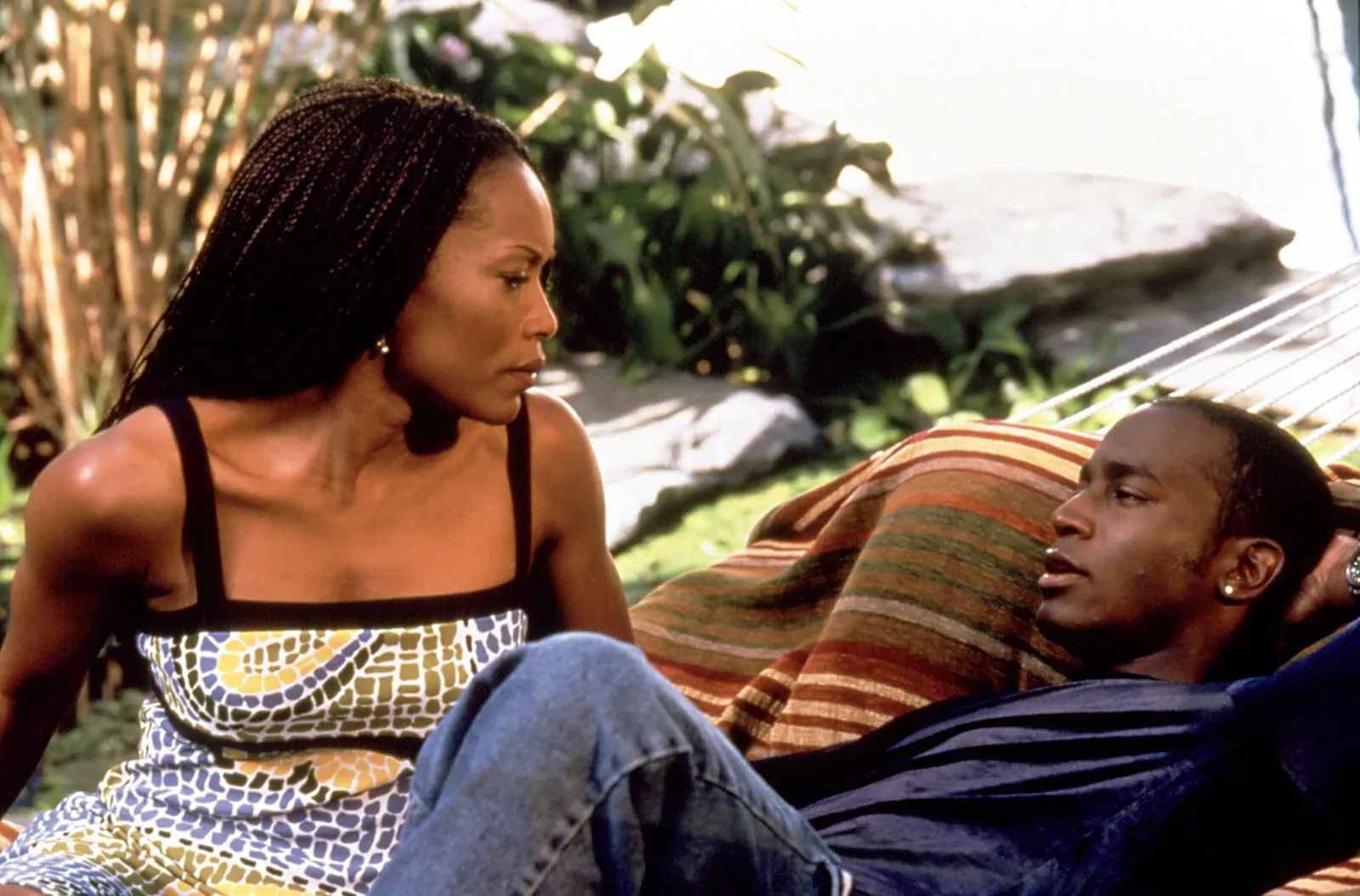
The movie that has inspired 90% of vacation hookup jokes since 1998 (but seriously, we need to talk about Taye Diggs in a puka shell necklace; the man can make anything look good). Workaholic executive and single mom Stella (Angela Bassett) finds more than she bargains for when her best friend, played by Whoopi Goldberg, convinces her to take a much-deserved Caribbean vacation. Cheeky, subversive, and sexy as hell, this movie turned the tables on so many male-dominated rom-coms (courtesy of one very hot and heavy matchup between Bassett and Diggs, playing some 20 years her junior)—and passes the Bechdel test with flying colors.
You’ve Got Mail (1998)
To help cast your sworn enemies in a gentler light.
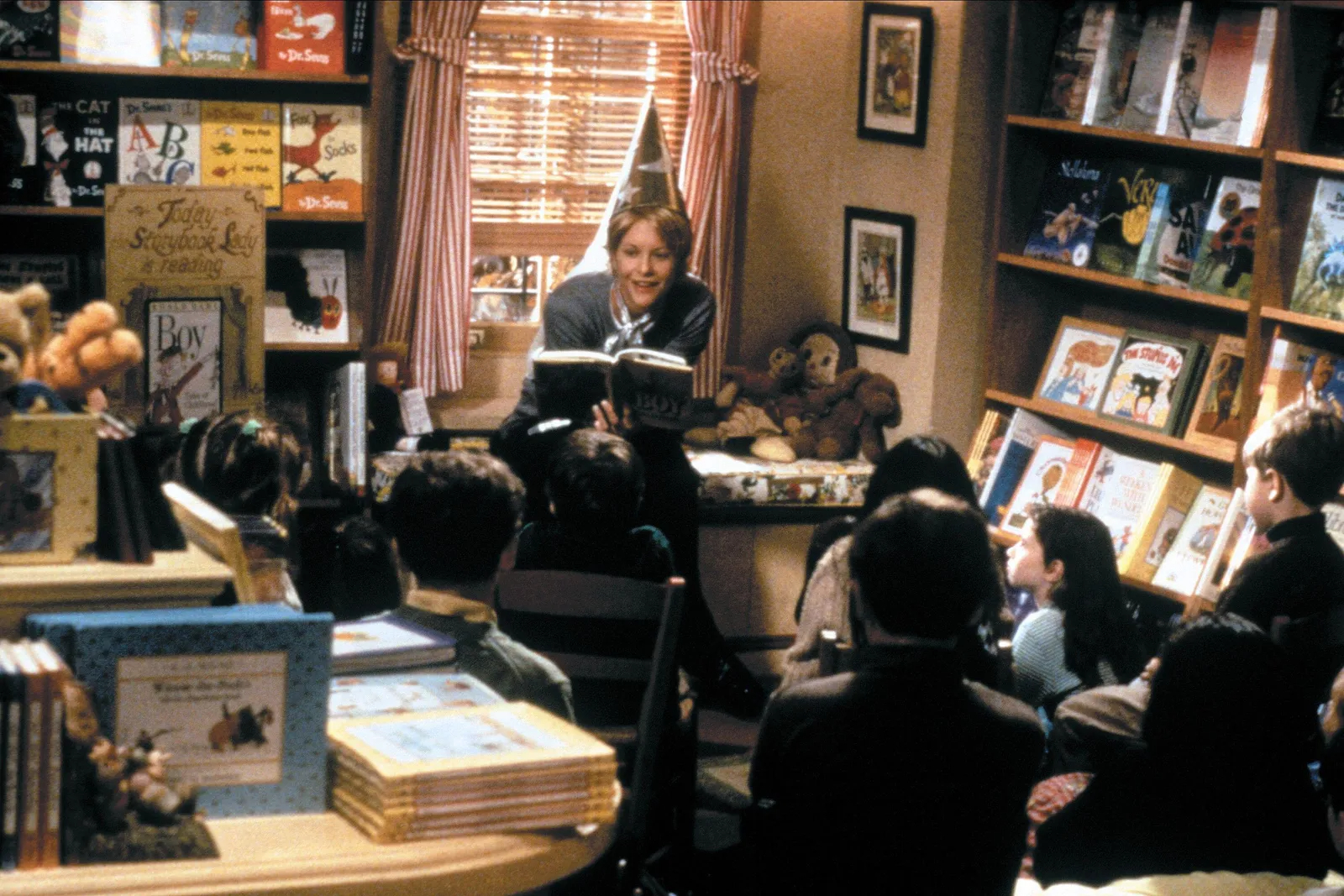
Nora Ephron simply didn’t miss. Starring Tom Hanks and queen of cozy rom-coms Meg Ryan, You’ve Got Mail—inspired by the 1937 Hungarian play *Parfumerie—*tells the story of bookstore superstore mogul Joe Fox and Kathleen Kelly, an independent bookstore owner. How do two ’90s business rivals end up (spoiler alert) falling in love? Over email, of course!
Rushmore (1998)
To help you determine how far to take it.
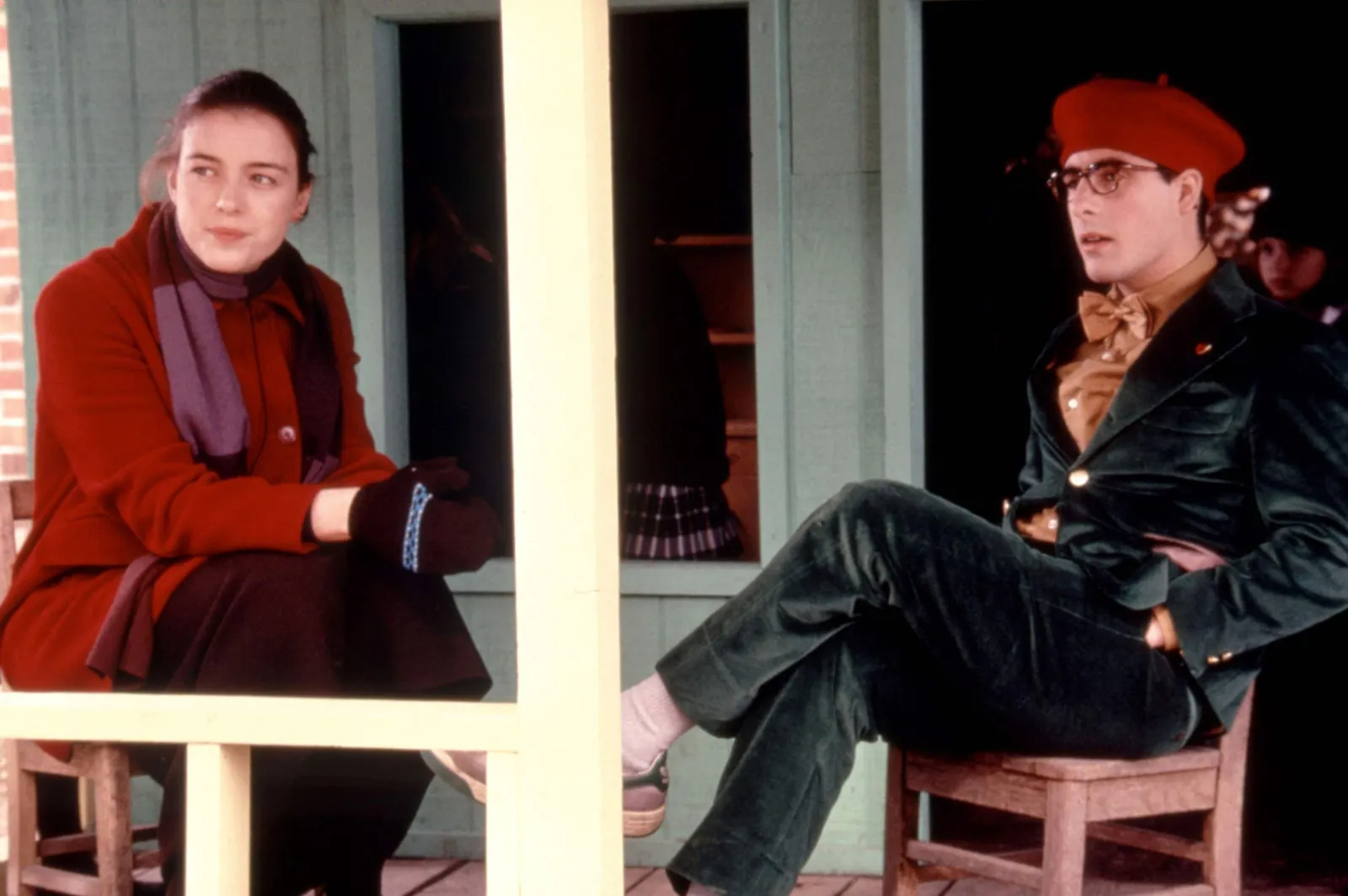
This is Wes Anderson’s most completely stylish movie, and perhaps his best. (Like all Anderson’s best work, it was cowritten with Owen Wilson.) Max Fischer (Jason Schwartzman) is a scholarship student at a private school. His academics are dismal, but he’s game for any and all extracurriculars, especially the over-the-top plays he produces and directs. He gets into a contest for the affections of a widowed first-grade teacher with local industrialist—and his newfound mentor—Herman Blume (Bill Murray). Several phenomenal executions come together in this film, including the ensemble cast, the just-on-this-side-of-believable production design, and an absolutely killer classic-rock soundtrack. But what pushes it above the rest is the utter drive of both Max and Herman, as love and competition gain primacy over every aspect of their lives. They’re both willing to burn the village to save it, which is simultaneously hilarious to watch and cathartic to anyone who’s ever had a crush.
There’s Something About Mary (1998)
To remind you that guys will try anything.
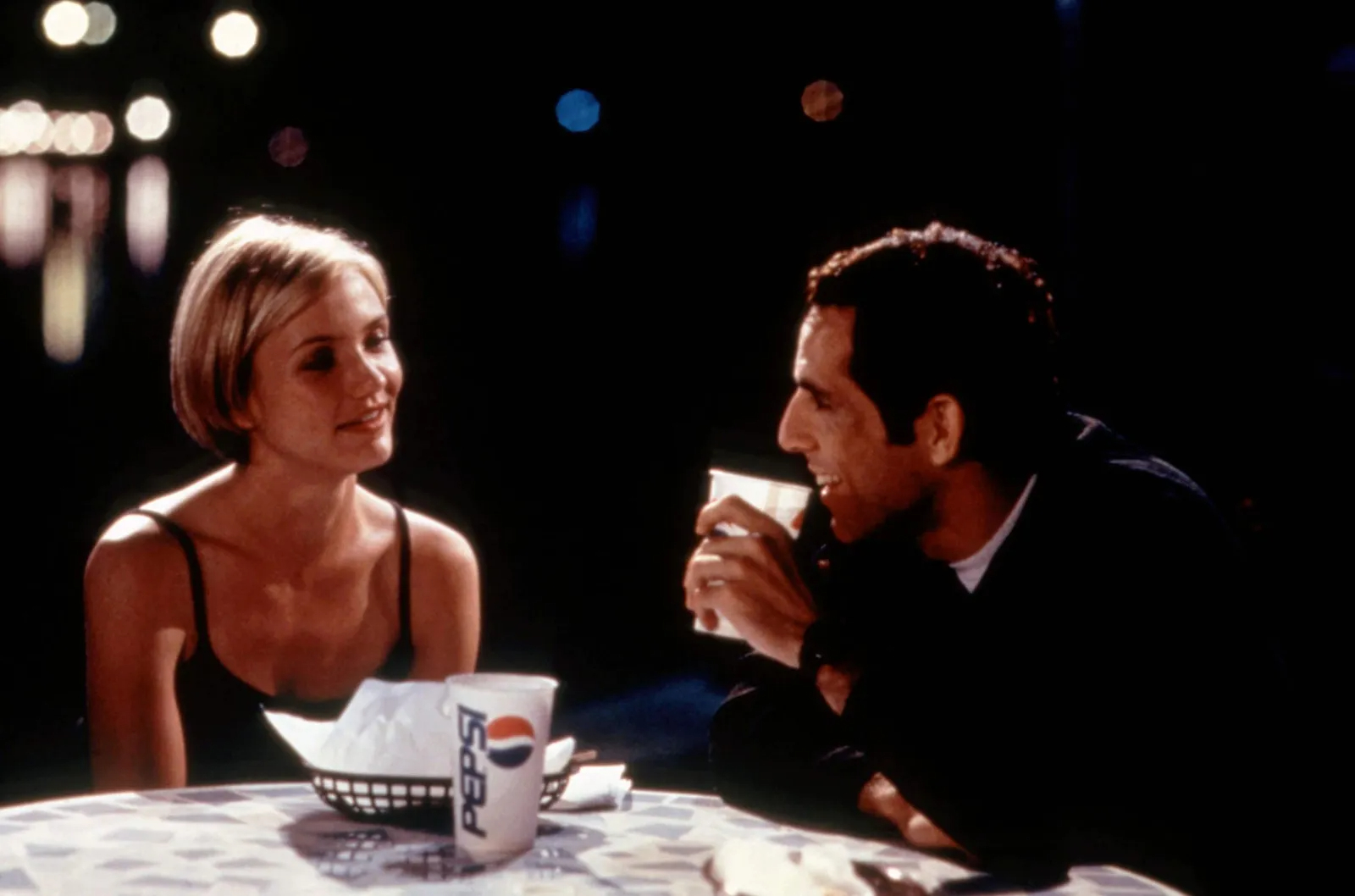
Before we had a president who bragged openly about grabbing women “by the pussy,” this is what qualified as a gross-out film. Amid scenes of semen being used as hair gel and testicles jammed in zippers, the Farrelly Brothers managed to concoct an amiable story about the nerdy Ted (Ben Stiller) hiring a private detective to find Mary (Cameron Diaz), the object of his unrequited love in high school. Despite the over-the-top locker-room gags, the movie has virtually no sex and manages to emerge as hilarious, sweet, and satisfying.
The Wedding Singer (1998)
To freeze some already cold feet.
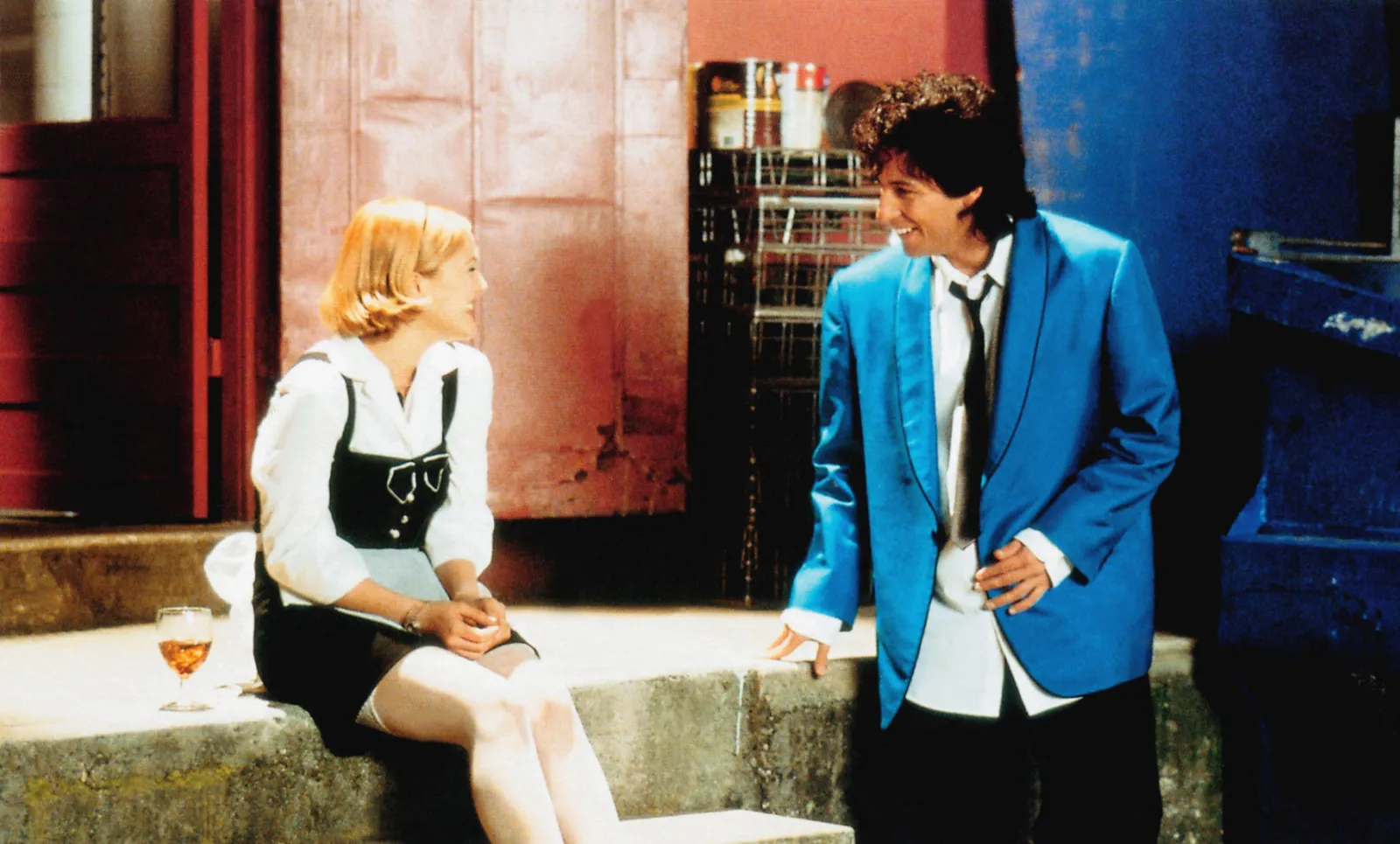
Set in the ’80s, this film centers on Adam Sandler’s Robbie Hart, a recently jilted wedding singer (and hopeless romantic) who helps Drew Barrymore’s Julia plan her wedding to the wrong man. Sandler and Barrymore’s chemistry is very strong, and this film—not Mad Love, sorry—established the actress as rom-com gold (see Never Been Kissed, 50 First Dates, and Fever Pitch). The romance is great, the jokes are great, the costumes are great, and not to ruin anything, but Billy Idol is pretty great too.
As Good as It Gets (1997)
To help you look past his neuroses.
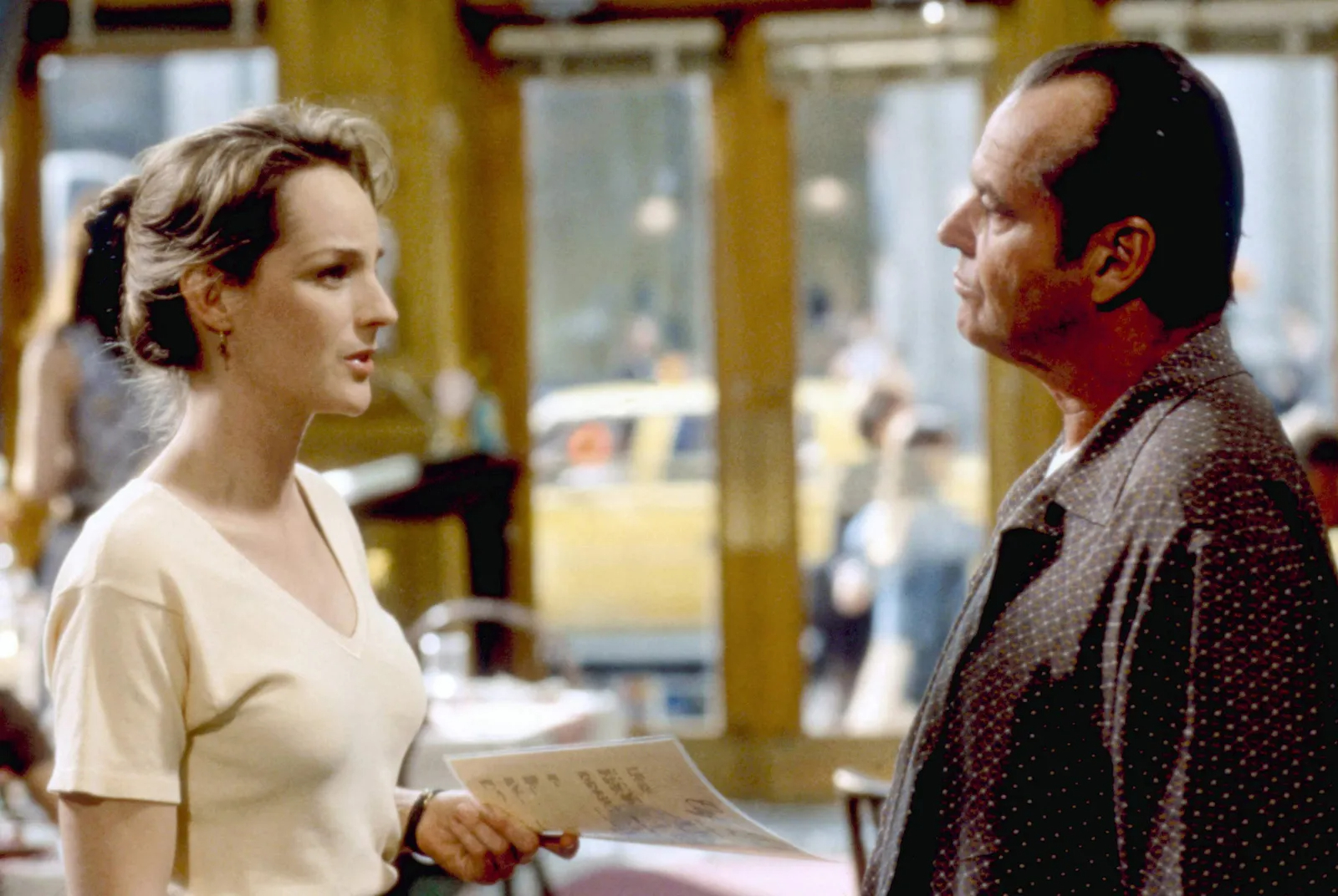
There are few actors who can go toe-to-toe with Jack Nicholson. Director James L. Brooks found a suitable sparring partner in Shirley MacLaine with Terms of Endearment and struck gold again nearly 15 years later with Helen Hunt. Hunt plays a waitress with a sick child for whom Nicholson—a mean, racist, homophobic, obsessive-compulsive writer and her regular customer in the restaurant where she works—has some affection. Bring in Nicholson’s neighbor, a gay artist (played by Greg Kinnear) who has to lean on Nicholson’s character for help (beginning with care for his adorable dog), add a road trip, and you’ve got yourself one of the most delightful, well-thought-out comedies of the ’90s. The movie takes its time, but it’s to our benefit—Brooks allows us to get to know each of these people, and them each other, intimately, which means when the jokes, and the romance, land, they land hard and then stay around. (Plus, who among us could resist Nicholson growling, “You make me wanna be a better man”?)
My Best Friend’s Wedding (1997)
For a showdown between Julia Roberts and Cameron Diaz.
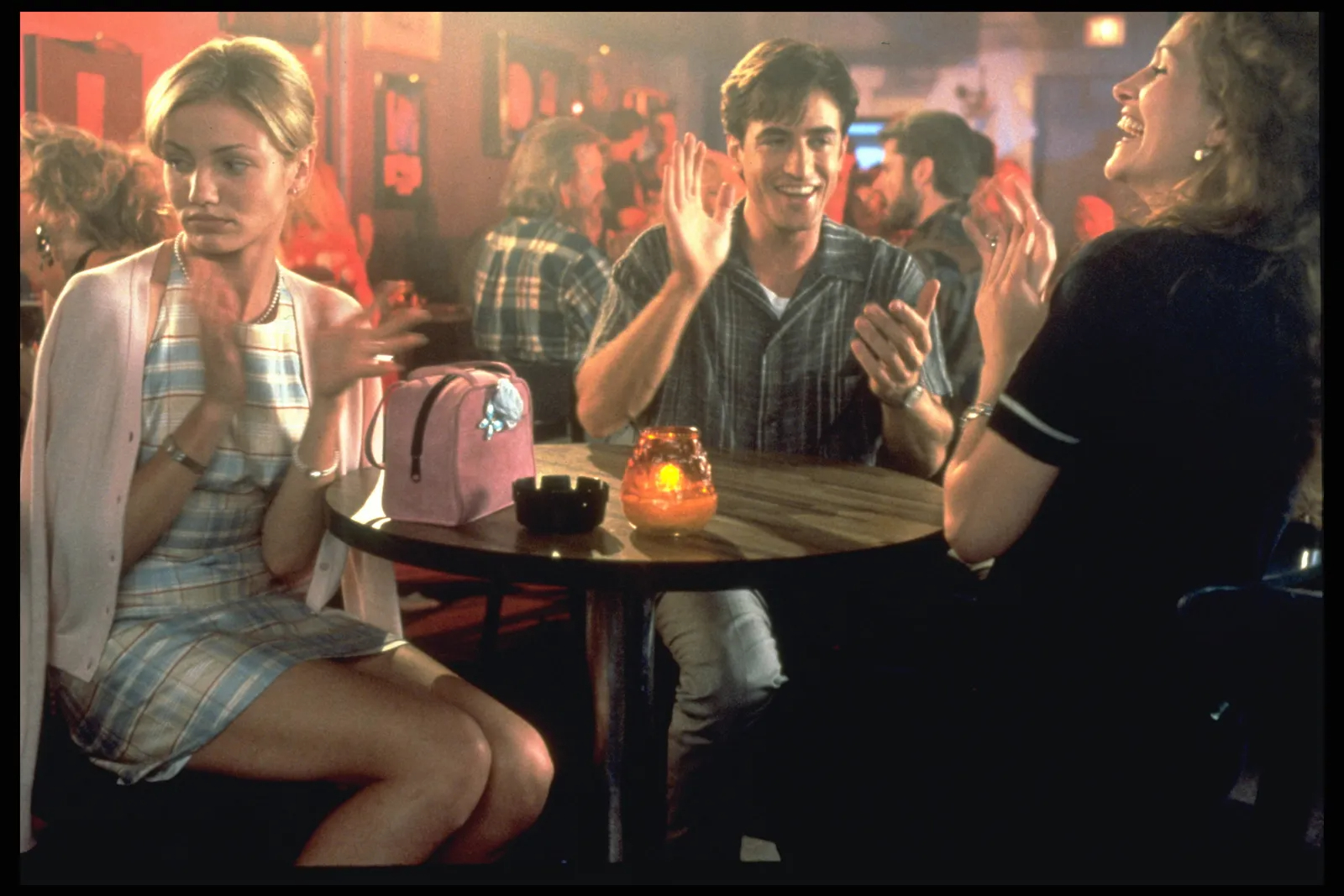
All hail rom-com royalty Julia Roberts in this ’90s classic. She plays Julianne “Jules” Potter, a 28-year-old who realizes she’s in love with her old friend, Michael O’Neal (Dermont Mulroney), only after he announces his engagement to college student Kimmy Wallace (Cameron Diaz). What’s a girl to do but try to break them up?
Chasing Amy (1997)
To give comic books their due.
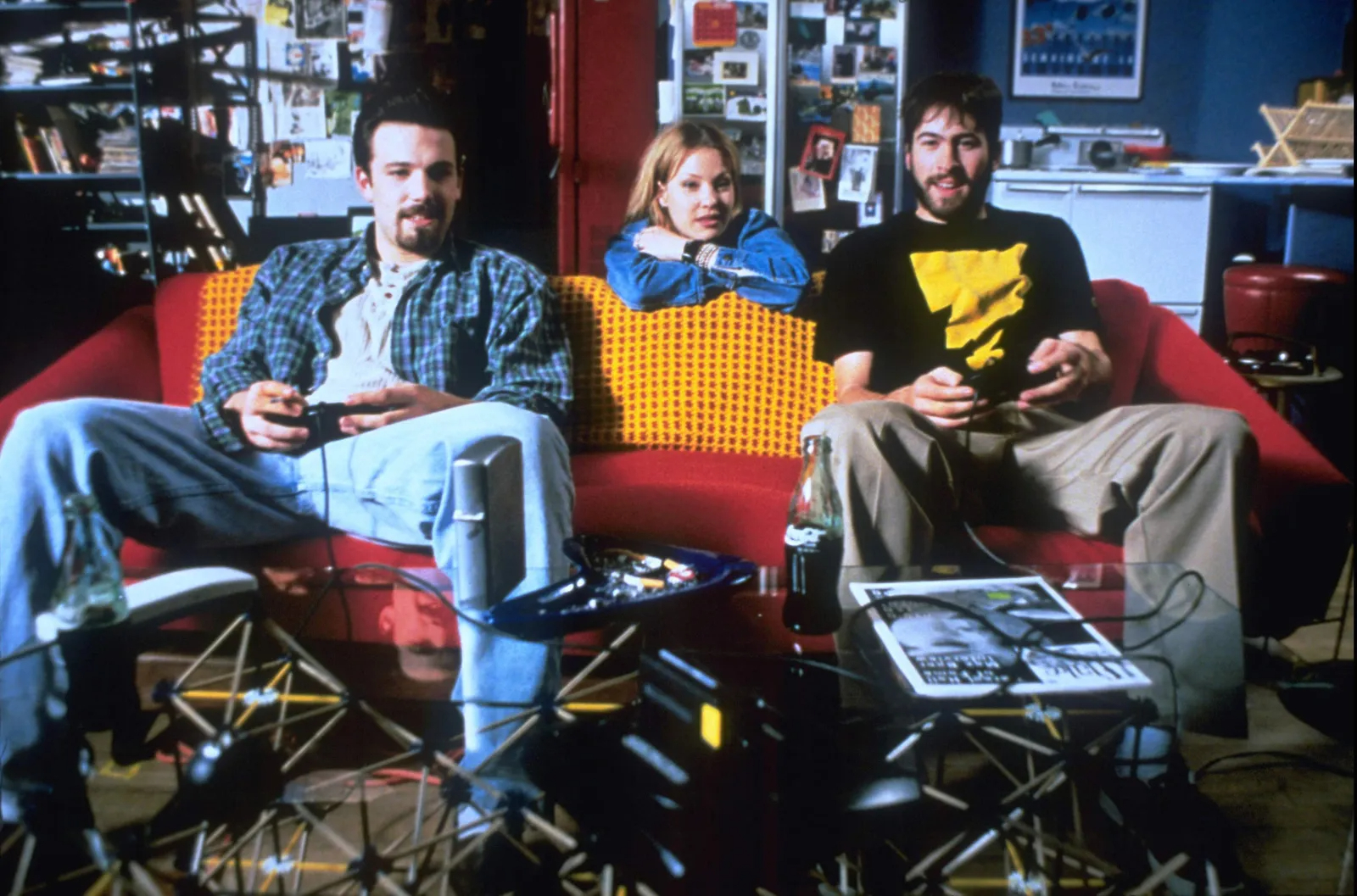
A comic book artist (Ben Affleck) with an inseparable best friend (Jason Lee) falls for a beautiful gay girl (Joey Lauren Adams)—who then falls for him—only to discover he can’t handle it. Comic books? Lesbian conversion? Best buds? Sounds like a romantic comedy made by men, for men. And it is! But Kevin Smith also managed a somewhat nuanced exploration of friendship and art, as well as of contemporary romantic standards in his rejiggering of the love triangle. Simultaneously, at a time when every other joke on Friends involved gay panic, he was portraying three-dimensional concepts of lesbian identity. What could be identified as a typical male-driven fantasy could also be seen as a ’90s Torrents of Spring.
Jerry Maguire (1996)
To help you locate your other half.
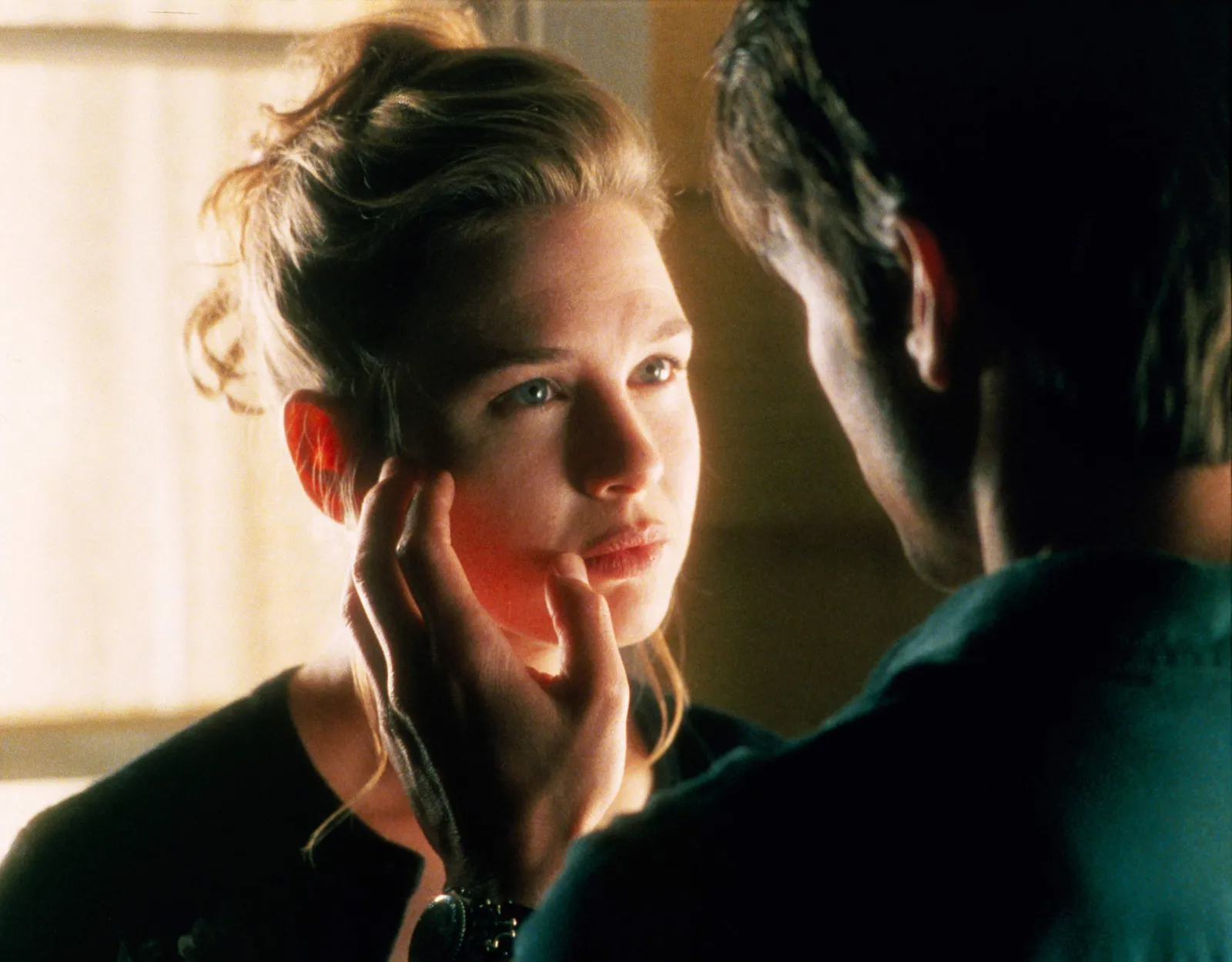
Cameron Crowe has a couple of films on this list (Almost Famous was close, but ultimately more coming-of-age than comedy) with good reason: He understands people and how they tick. Despite its memorably demonstrative, over-the-top lines, like “You complete me” and “Show me the money,” this is ultimately a movie about how people really fall in love. Sure, Renée Zellweger loves Tom Cruise from the beginning—it’s a movie, after all, and he is Tom Cruise—but what Jerry Maguire gets to is what happens after that first kiss, after the honeymoon period, when we have to learn about the other person as a person and not just see them and their adorable puppy (or, in this case, an adorable son, played by Jonathan Lipnicki) as an escape or alternative from our own lives.
Clueless (1995)
To remind you to reevaluate your checklist.
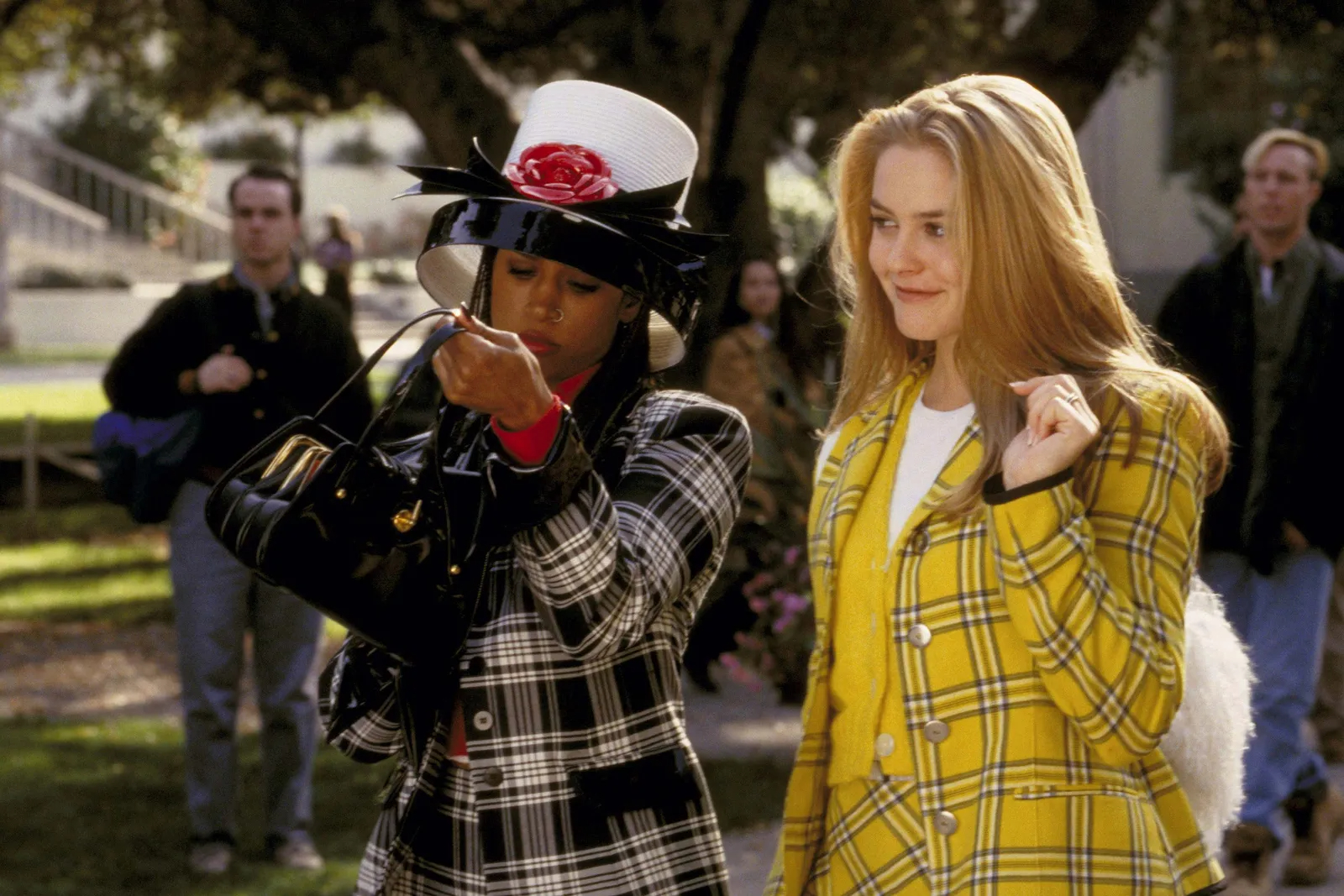
The motherless daughter, caring for her father and looking for her prince, is a trope that goes back to fairy tales, but how Alicia Silverstone (who plays our hero, Cher) and writer-director Amy Heckerling contemporized that narrative is what made what could have been a silly teen flick into an instant classic. They imported a Jane Austen storyline of a meddling would-be matchmaker (Emma) into a bright pink, plastic, kids-are-adults world of Beverly Hills privilege populated by overly dramatic in-talk (“Whatever!”; “As if!”), lunatic high fashion, and decidedly unrelatable problems. At the same time, they maintained a storybook sensibility and somehow kept our sympathies with the lovelorn Cher, whose insipidness is overshadowed by her charity, loyalty, and genuine goodwill. We believe she deserves love, and if she gets smart enough to stop looking for it in the “right” places, we want her to find it.
While You Were Sleeping (1995)
For the oddest love triangle of all.
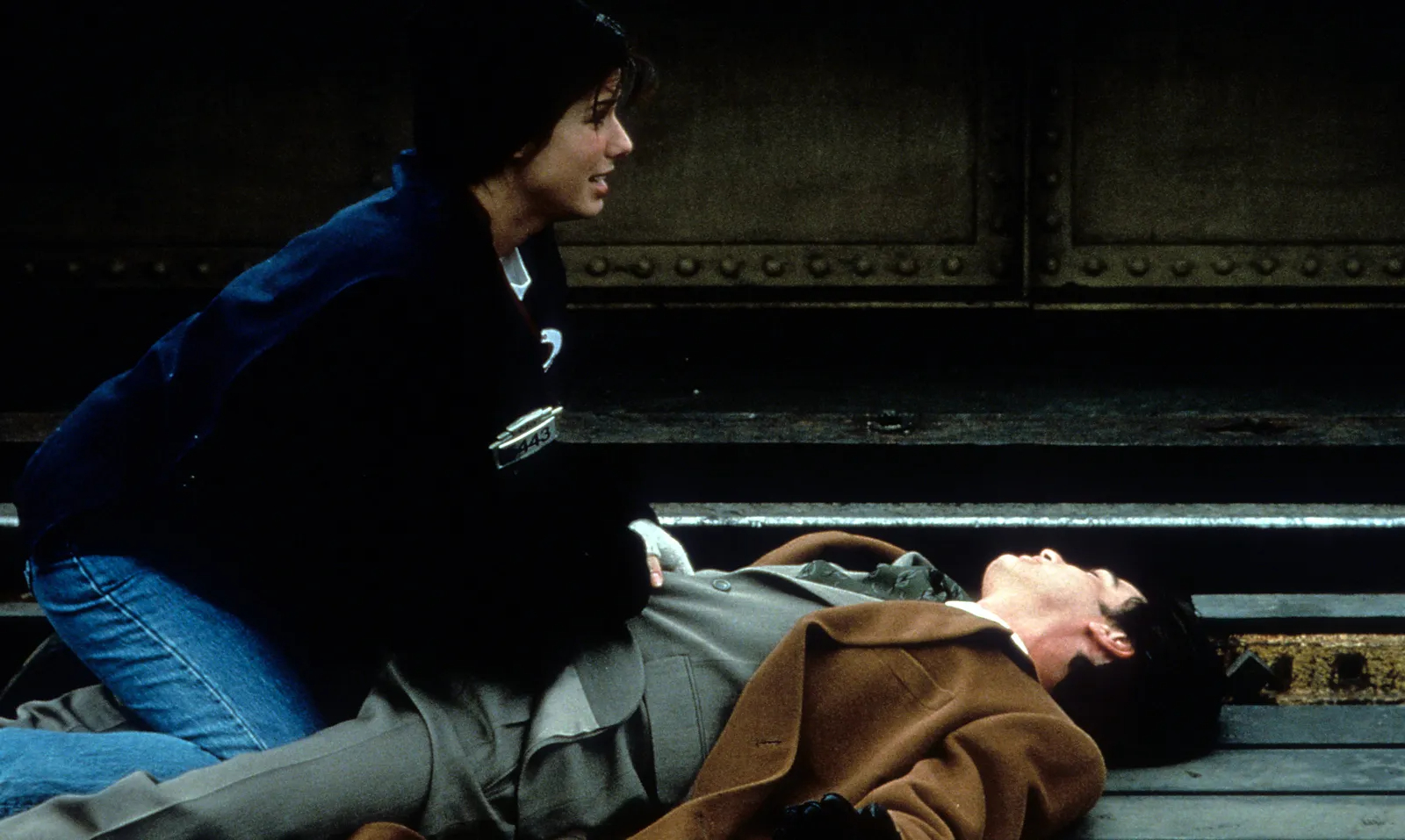
Meet Lucy (Sandra Bullock), a Chicago Transit Authority token collector longing for more than the company of her cat (gorgeous as it is). Her daily highlight? A cutie commuter named Peter (Peter Gallagher). But after Lucy saves Peter from an oncoming train and accompanies him to the hospital, she’s mistaken for his fiancée while he remains in a coma. The plot thickens further as Lucy finds herself falling in love with Peter’s family—and, most intriguingly, his brother, Jack (Bill Pullman).
Four Weddings and a Funeral (1994)
To get you through wedding season.
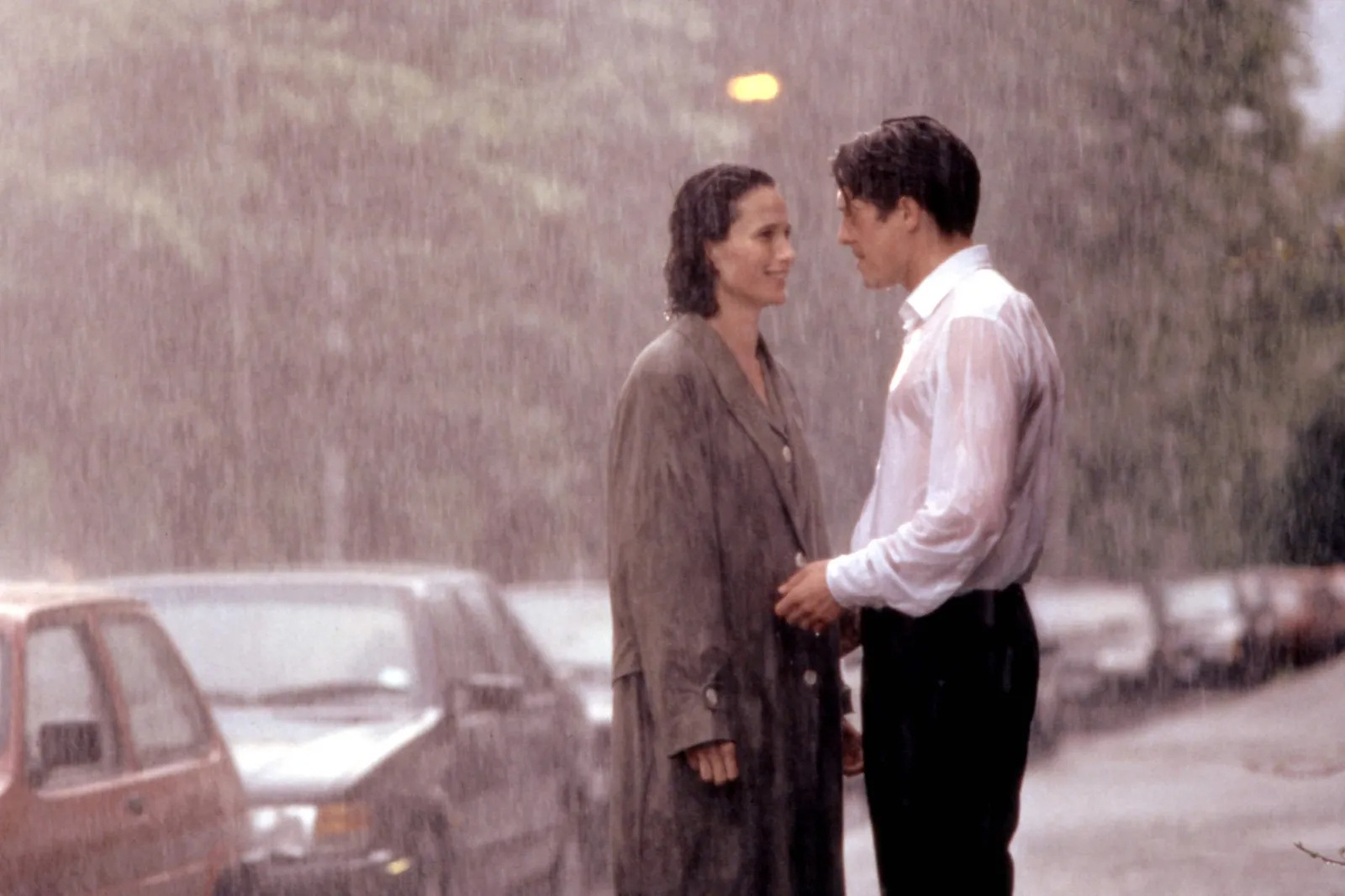
How can you not love a wedding movie whose first pages of dialogue are just the word Fuck? As much as we commiserate, this is ultimately Hugh Grant’s movie. And a little Andie MacDowell’s movie. But mostly Hugh Grant’s. It’s the film that introduced us to his stumbling, bumbling, yet confident Etonian charms and wit (which we’d witness again and again in Nine Months, Notting Hill, Music and Lyrics, About a Boy, and more). The story of Grant and his friends attending their friends’ weddings—and one funeral—perfectly captured the romance of nuptials as well as all the stress, commitment, and emotional…what do the British call it?…oh yes, bother that comes with that period in your life where your friends are tying the knot. The question this rom-com dares ask is this: In all this wedding madness, can you be the odd man out and still be happy?
Muriel’s Wedding (1994)
To help you tell your real friends from the sham ones.
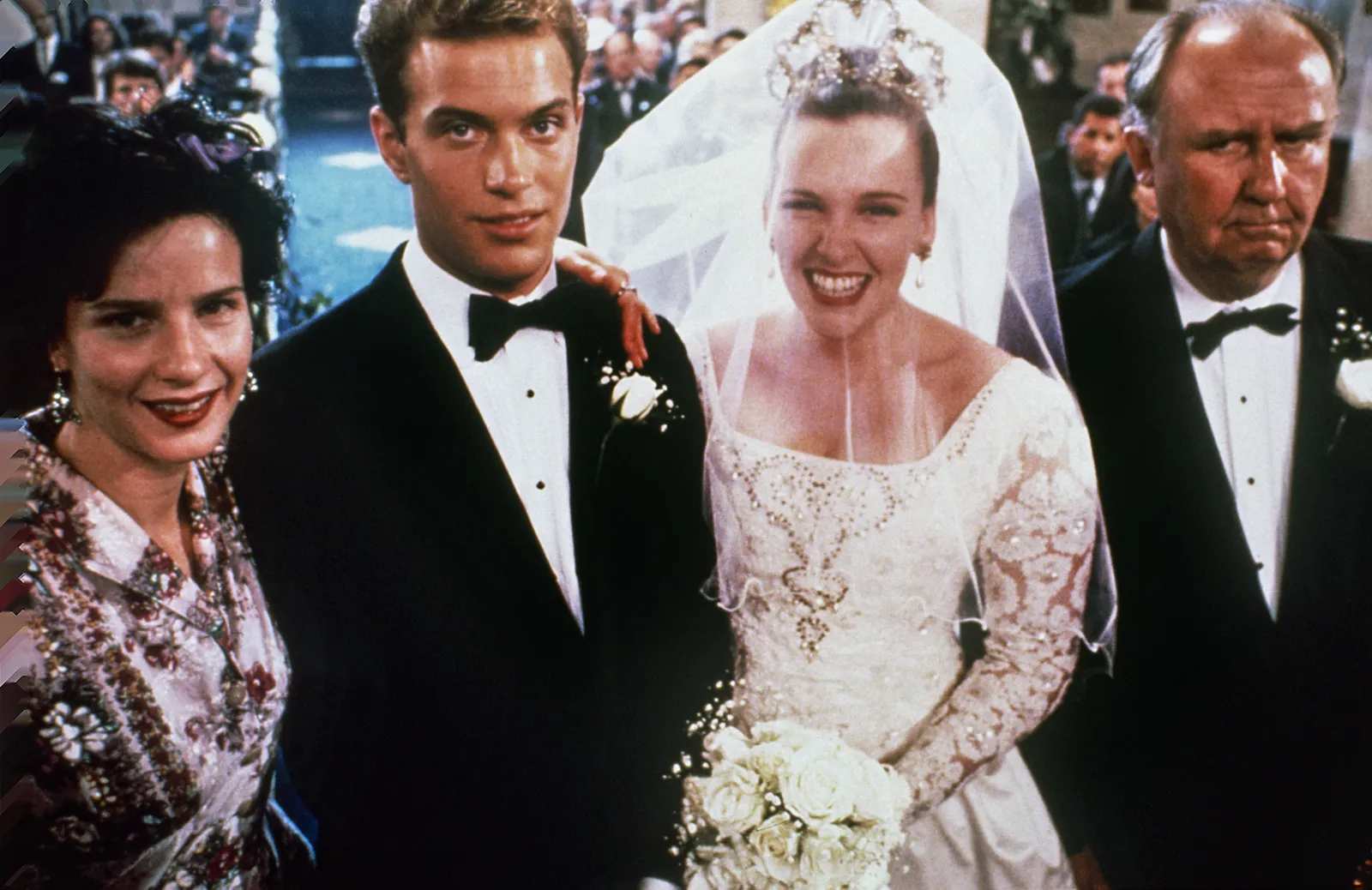
Muriel (Toni Collette), a daydreamer and the target of the bitchy girls she considers her friends, wants nothing more than to get out of her small town and away from her awful father, move to Sydney, and get married. When she makes off with her parents’ savings, reunites with a fellow outcast from her town, and is offered the chance to marry a gorgeous South African swimmer who needs a visa, she can make her dreams come true. As much of a coming-of-age story as a rom-com (Muriel may be in her 20s, but she has much growing up to do), this film does a brilliant job of cutting the legs out from underneath our expectations by giving us exactly what we’ve always wanted and tying us up in the strings attached.
Reality Bites (1994)
To make you fall in love with your friends.
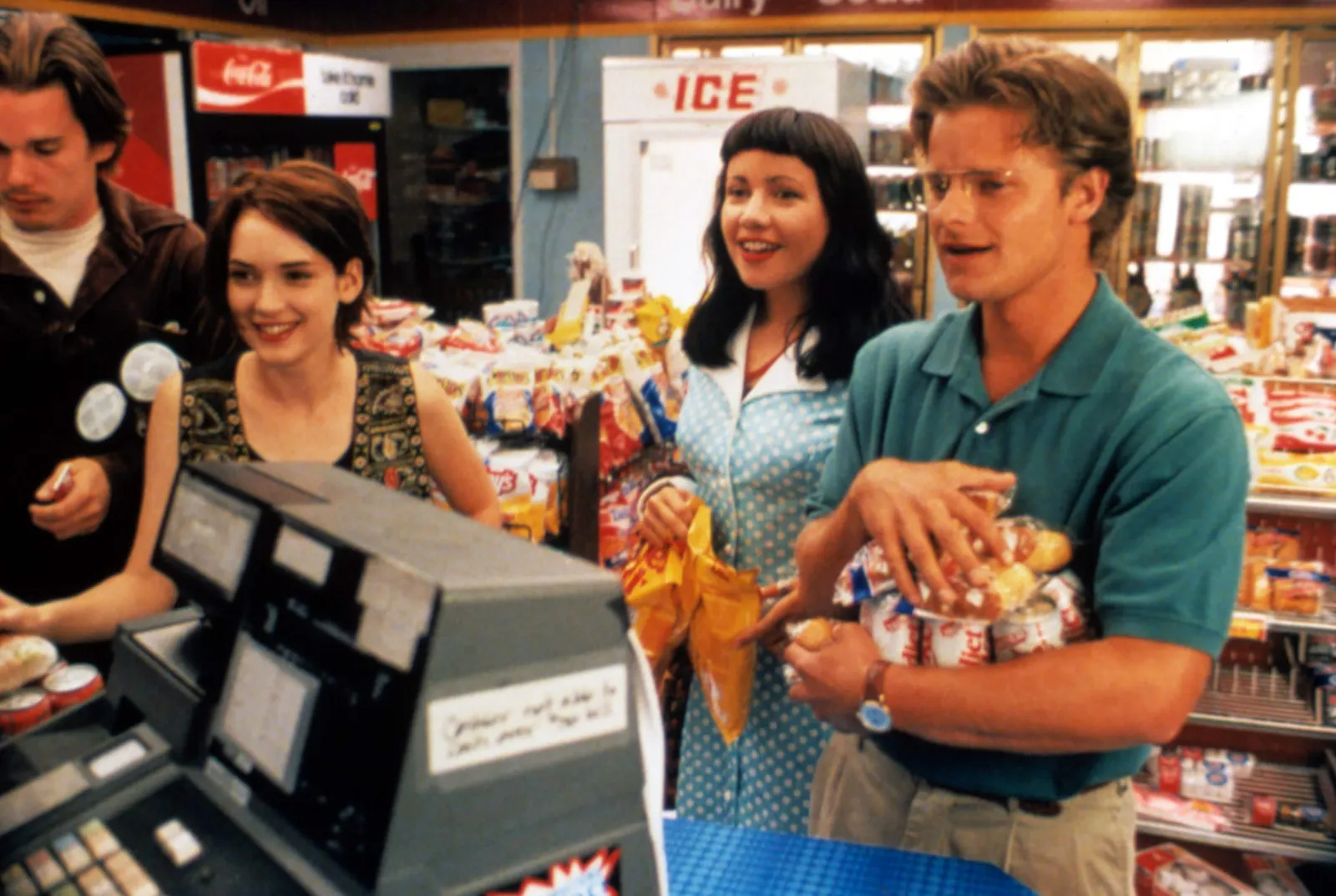
In what was then a cult hit and is now a piece of ’90s nostalgia catnip, a post–Edward Scissorhands (and post–Johnny Depp) Winona Ryder plays Lelaina, an aspiring documentarian assisting an obnoxious TV host in Houston. She and her grungy, Gen X friends—played by Steve Zahn, Janeane Garofolo, and a simmering Ethan Hawke (who may be more than just a friend)—are just trying to figure out who they are, and what they want in life. In Ben Stiller’s feature directorial debut, he also plays a TV executive whose budding romance with Lelaina and interest in her work brings the real world crashing into their postcollegiate hipster existence. Aside from the nonstop ’90s fashion buffet that is Winona’s wardrobe (mom jeans, crop tops, baby doll dresses, cardigans, men’s shirts, blazers), there’s also love and heartbreak, sex, betrayal, Lisa Loeb, Dickies, pizza, and lines like “He’s so cheesy, I can’t watch him without crackers.” What else do we want, really?
Groundhog Day (1993)
To make you consider what you could have done differently.
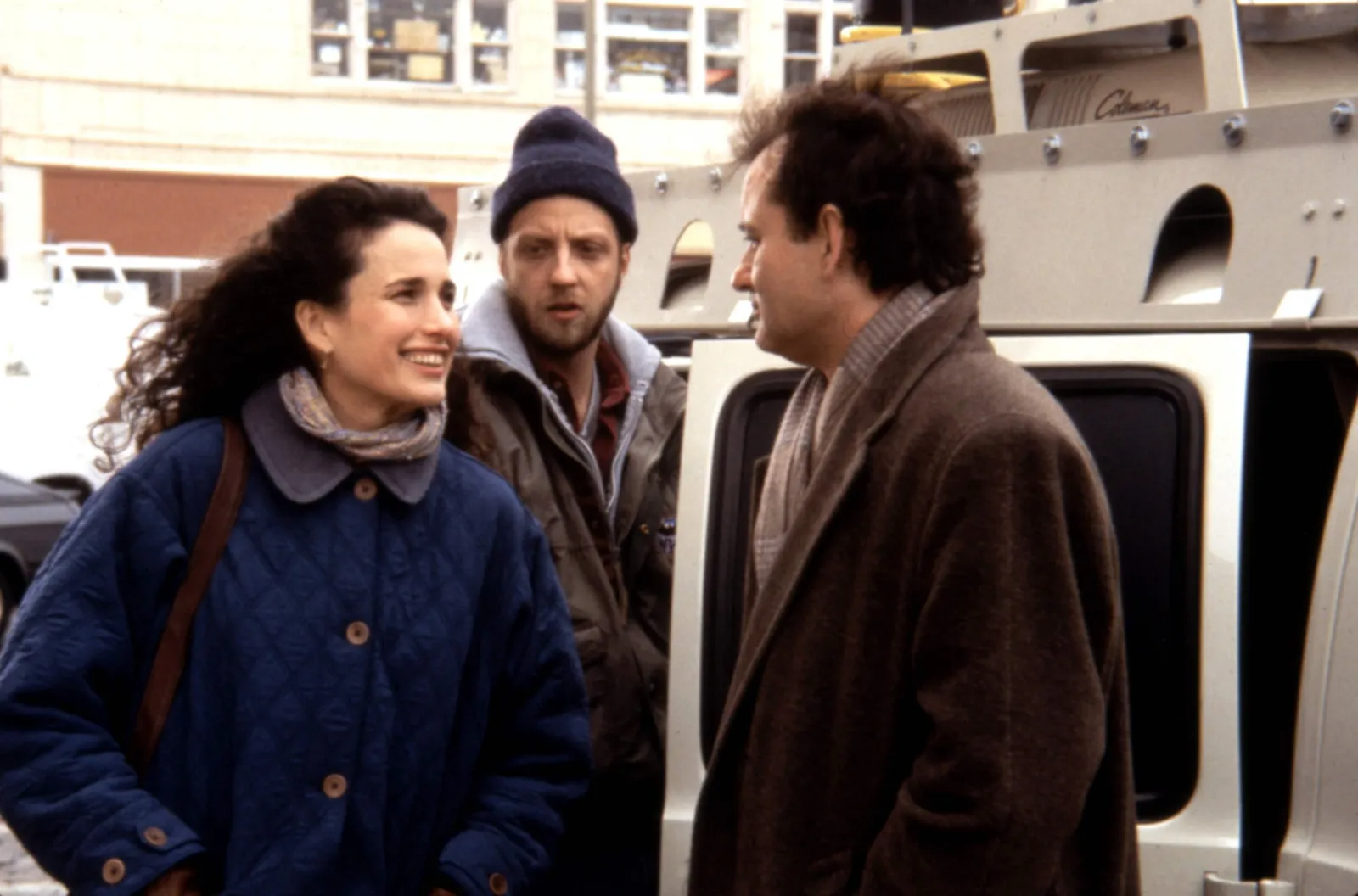
A cynical Pittsburgh weatherman (Bill Murray) is sent to Punxsutawney, Pennsylvania, with his producer, Rita (Andie MacDowell) on a dead-end assignment: to cover Groundhog Day. And boy, is it a dead end. Murray gets stuck there, not just in a snowstorm, mind you, but in a continuous loop, where no matter what he does—including committing suicide—he wakes up in the same hotel on the same day. At first, the weatherman is predictably bummed, but eventually, he uses all the information he’s picked up living the same day over and over to better himself and the lives of those around him, eventually impressing Rita with his change of personality. Watching Bill Murray is fun, watching Bill Murray struggle is really fun, and watching Bill Murray caught in a space-time logjam, wrestling with moral philosophy while pursuing Andie MacDowell, is the most fun.
Sleepless in Seattle (1993)
To get you taking a chance on love again.
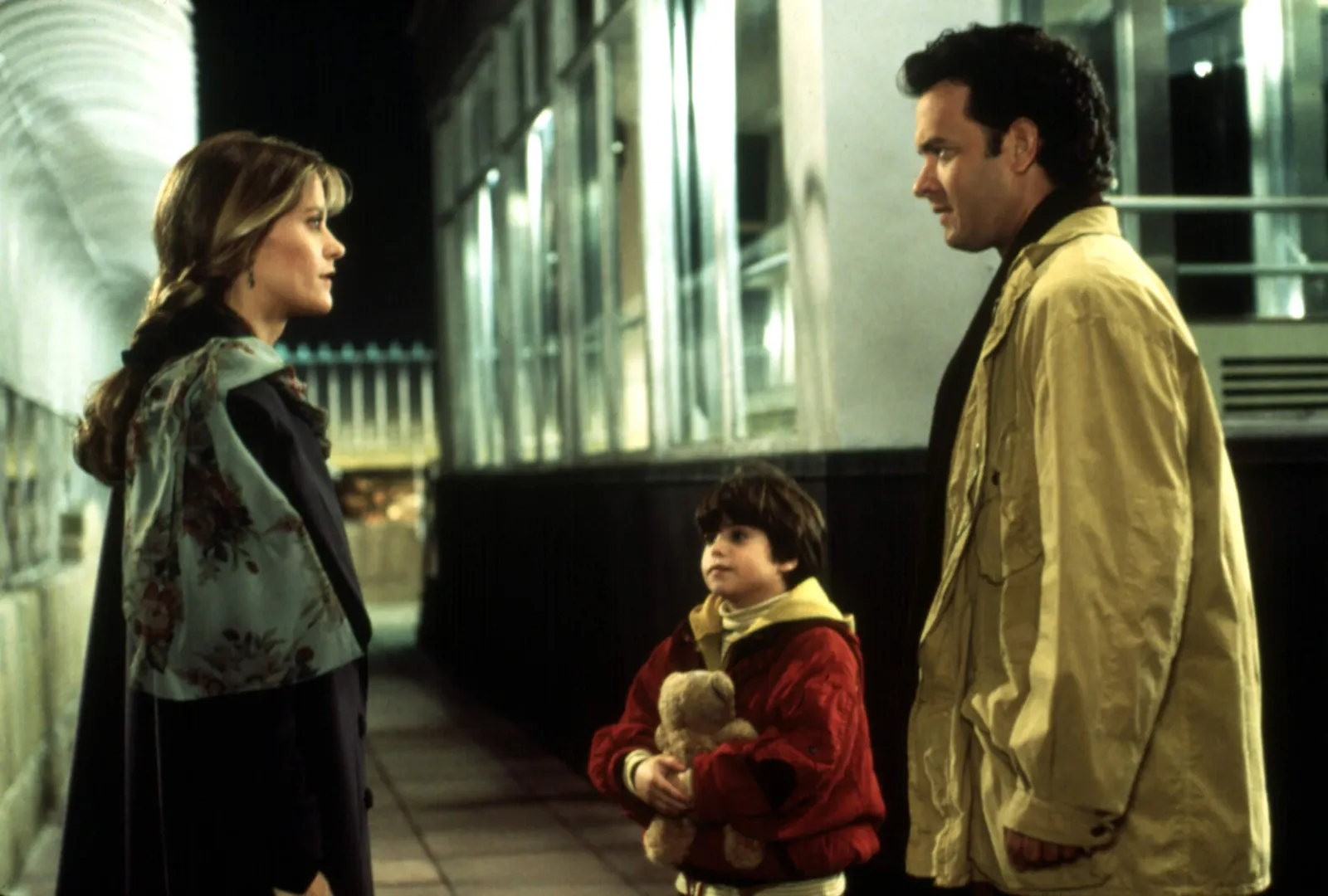
Tom Hanks had been responsible for some ’80s hits—Splash and Big—but with Nora Ephron’s 1993 film about a widower whose son calls into a radio show in an attempt to find him a new wife, he cemented himself as America’s favorite, well, person. Meg Ryan, his competition for that title in the ’90s, plays an unhappily engaged Baltimore Sun reporter who writes Hanks’s character on a whim, asking him to meet her at the top of the Empire State Building (see: An Affair to Remember) on Valentine’s Day. Utterly contrived but utterly charming, this quick, silly, funny film is pabulum superfood for anyone who believes in second chances and true love.
Beauty and the Beast (1991)
To help you see past a gruff exterior.
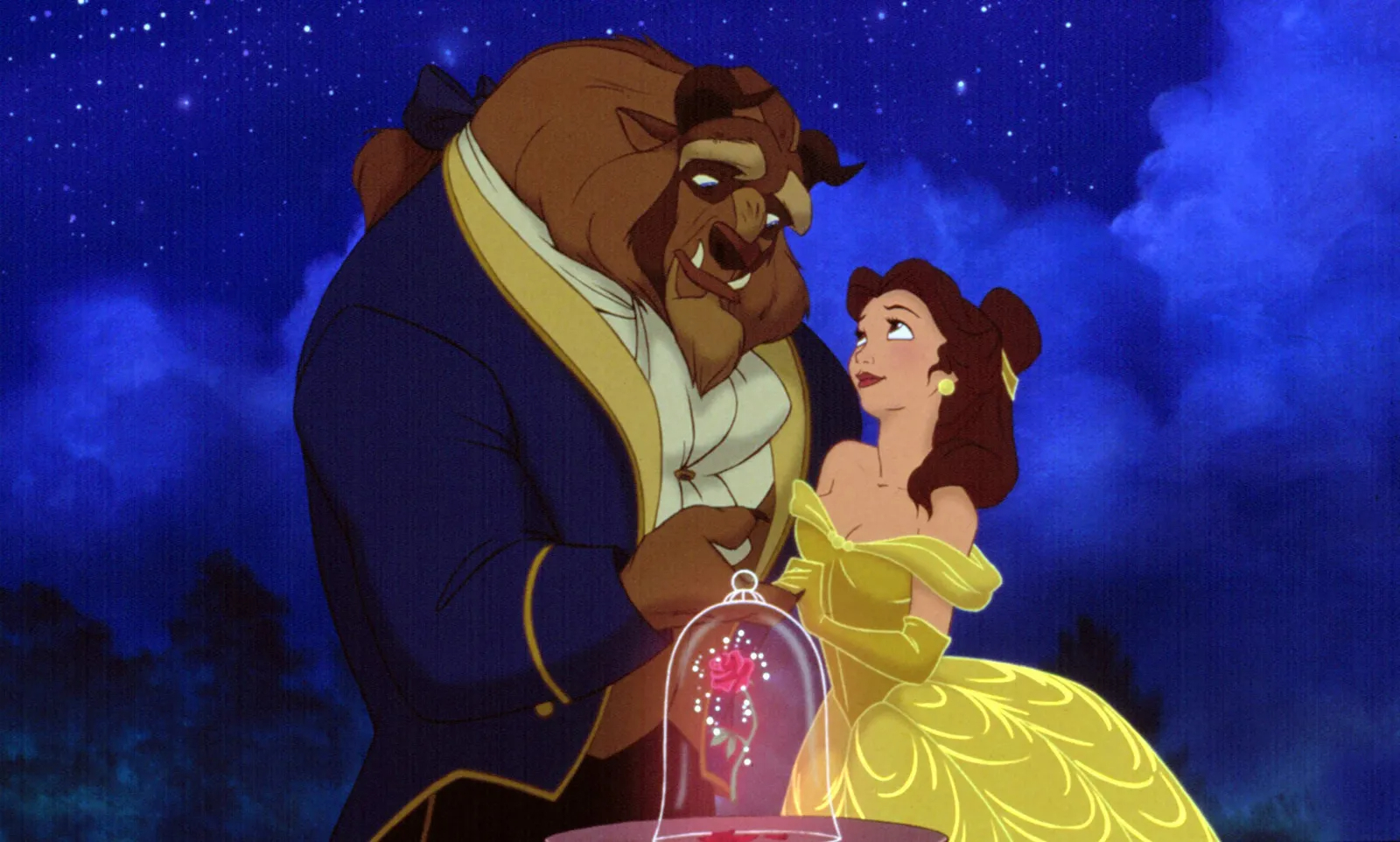
“A tale as old as time…” It really is. Lonely, powerful dudes have been making off with damsels and then hiding them away since the Ancient Greek myths—and probably before. Where Disney scored with its animated musical was by—pardon the pun—reanimating that classic story line in a way that was appealing to our (and our kids’) eyes and ears, while maintaining some real danger in the narrative. It’s a triumph they repeated with Aladdin and The Lion King, but was especially notable in a romance.
Pretty Woman (1990)
To inspire some big changes.
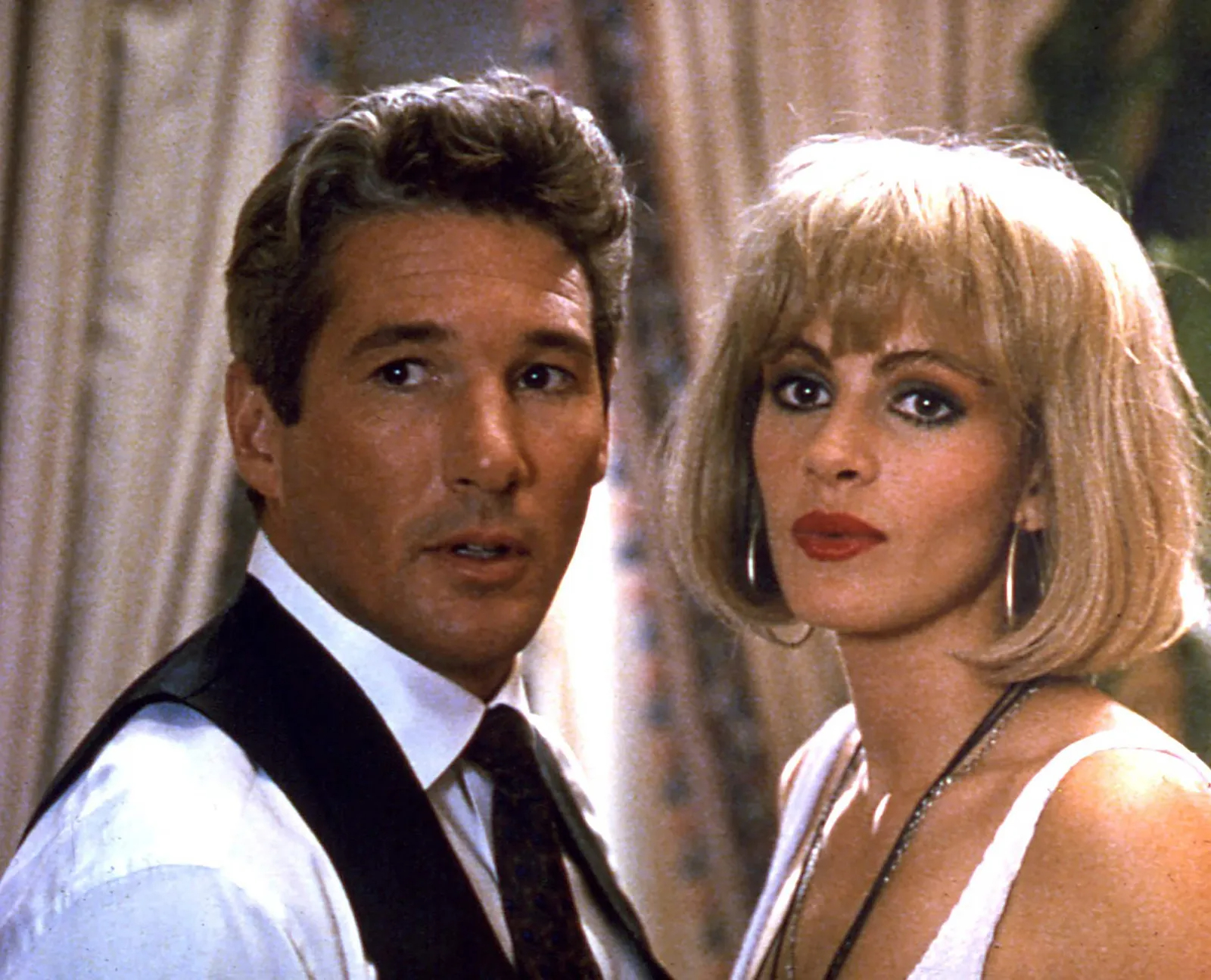
Is there a rom-com list that doesn’t include this movie? What’s left to say about the 1990 tale of the beautiful, charming sex worker and the Wall Street corporate raider who meet and fall in love? Here’s director Garry Marshall’s (and Julia Roberts and Richard Gere’s) genius with this film: They convince us the whole thing is kind of a lark. This film takes place in the late 1980s; a high-water mark in terms of the HIV crisis and a particularly dangerous time to be in sex work. That’s not on our minds when we watch this movie (barring an early scene discussing methods of birth control), though; we think about stomping divots and Richard Gere conquering his fear of heights. Such are its delights!
Say Anything… (1989)
To help you figure out if he’s worth the trouble.
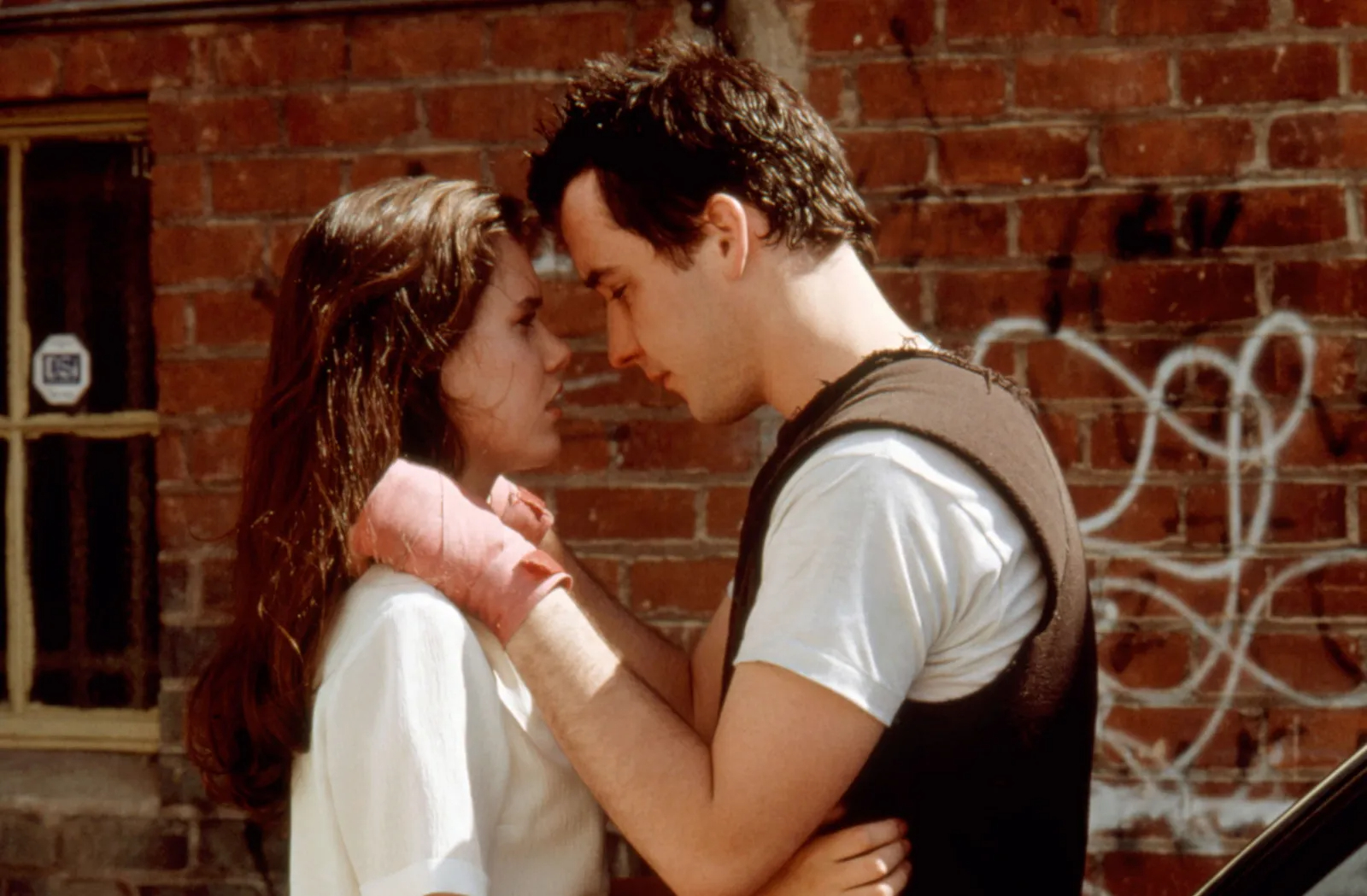
If for no other reason, you need to see this movie so that you’ll understand what it means when someone holds a boombox over his head outside the window of the woman he loves. Like most of the teen romance flicks on this list, Say Anything… doesn’t end at the big dance. This movie, from director Cameron Crowe (and produced by James L. Brooks), is far too sophisticated for such a middling finale. And it’s too busy diving into the angsty, all-consuming, awkward challenge that is young love, as embodied by consummate underdog Lloyd Dobler and his attempts to woo the beautiful valedictorian Diane Court.
When Harry Met Sally… (1989)
To help you escape the friend zone.
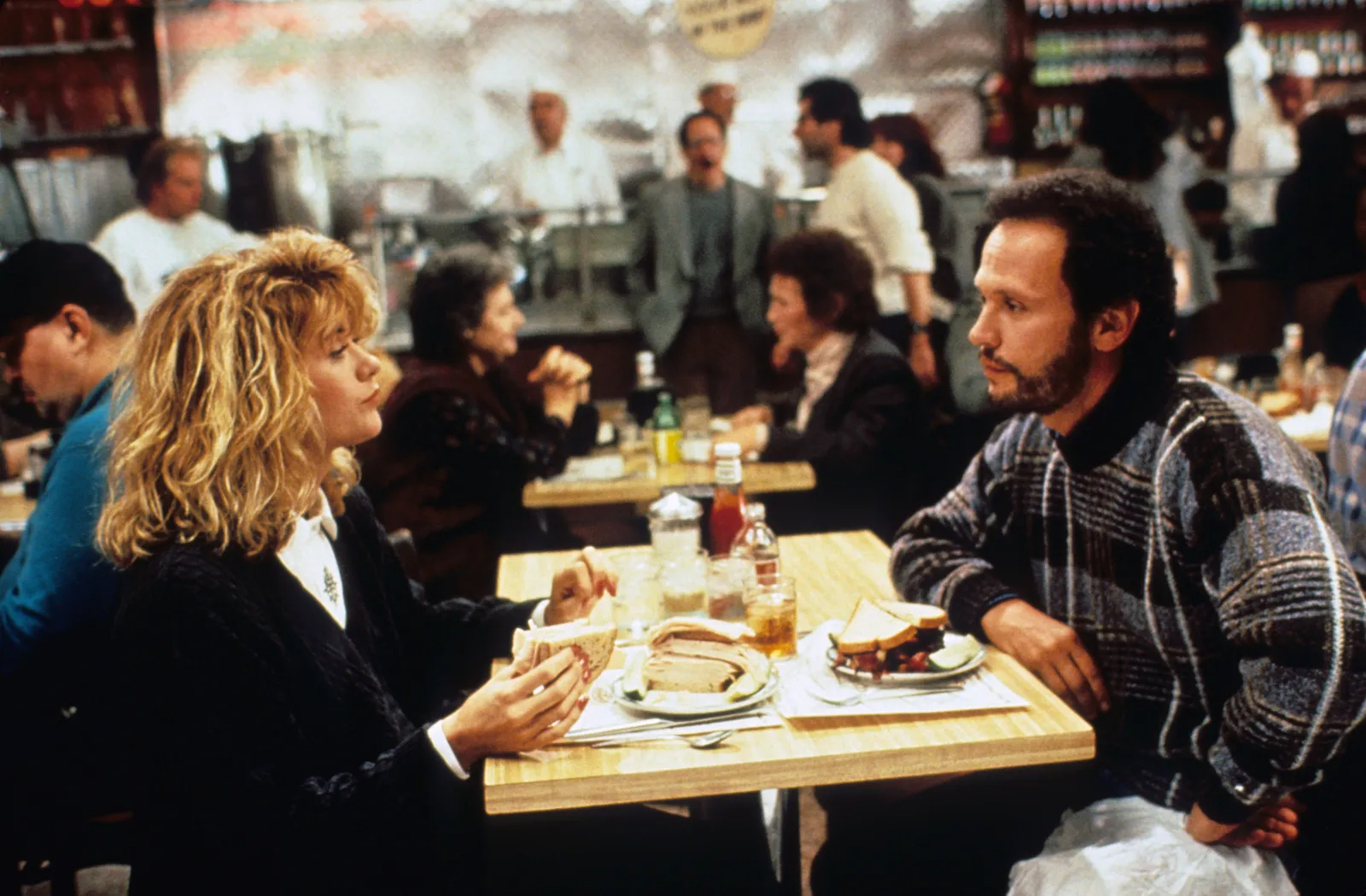
If this list were a top-20 instead, this film would still be on it. Same with top 10—and five. It’s in the running for the best rom-com of all time because it is sassy, sultry, snappy, cinematic perfection, thanks to words from Nora Ephron and direction from Rob Reiner. It’s something of an epic of the genre, spanning more than 10 years of the kind of friendship (between Meg Ryan and Billy Crystal’s characters) where no one can help but ask, “Why aren’t those two together?” Should friends ever sleep together? If they do, what happens next? This movie should be watched by every college student on the planet. Bonus: Watch this with a boyfriend, and pay attention to what happens to his face during Meg Ryan’s most famous scene, in which she illustrates just how easy it is for a woman to fake an orgasm.
Coming to America (1988)
To help you find your prince.
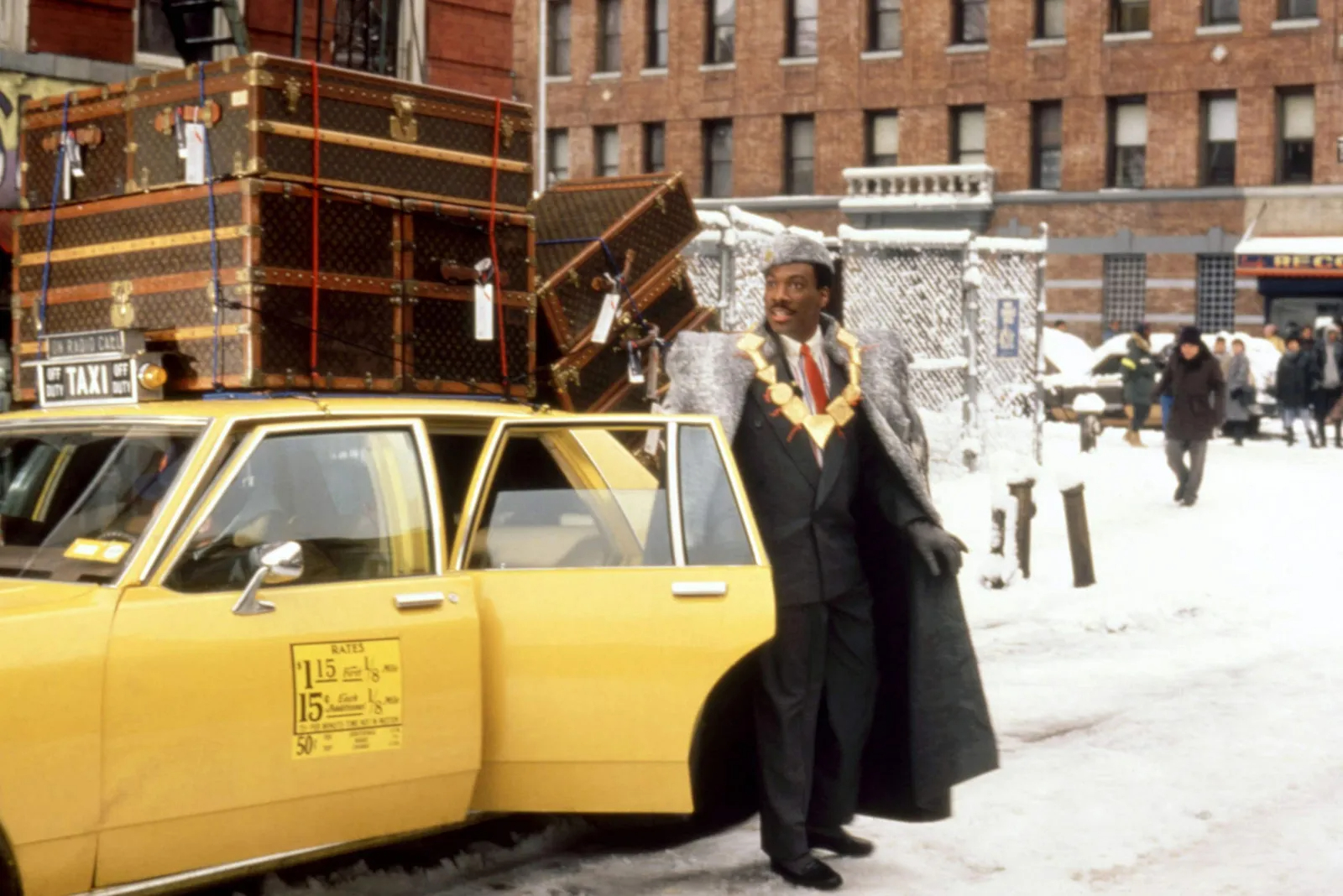
It’s unfair that Eddie Murphy only has one entry on this list. The guy ruled the ’80s and made some of the era’s great comedies—Trading Places, Beverly Hills Cop, 48 Hrs.—but this is really the only one where the romance narrative rules supreme. In short: Murphy plays the prince of a fictional African nation who is unsure about his arranged marriage, and so heads to what he suspects will be greener pastures in search of his queen. So where better to start than Queens, New York? Essentially slumming it with his best friend (a terrific Arsenio Hall), Murphy’s character finds work at a McDonald’s-type restaurant where he falls in love with the owner’s daughter, a woman who just might fit the bill. It’s a super simple story that elicits big laughs in every scene, but it’s also a clever send-up of class and race that simultaneously owns itself as perhaps the ultimate Reaganite comedy: If you are rich and follow your heart, you can be even richer!
Crossing Delancey (1988)
To remind you to listen to your bubbe.
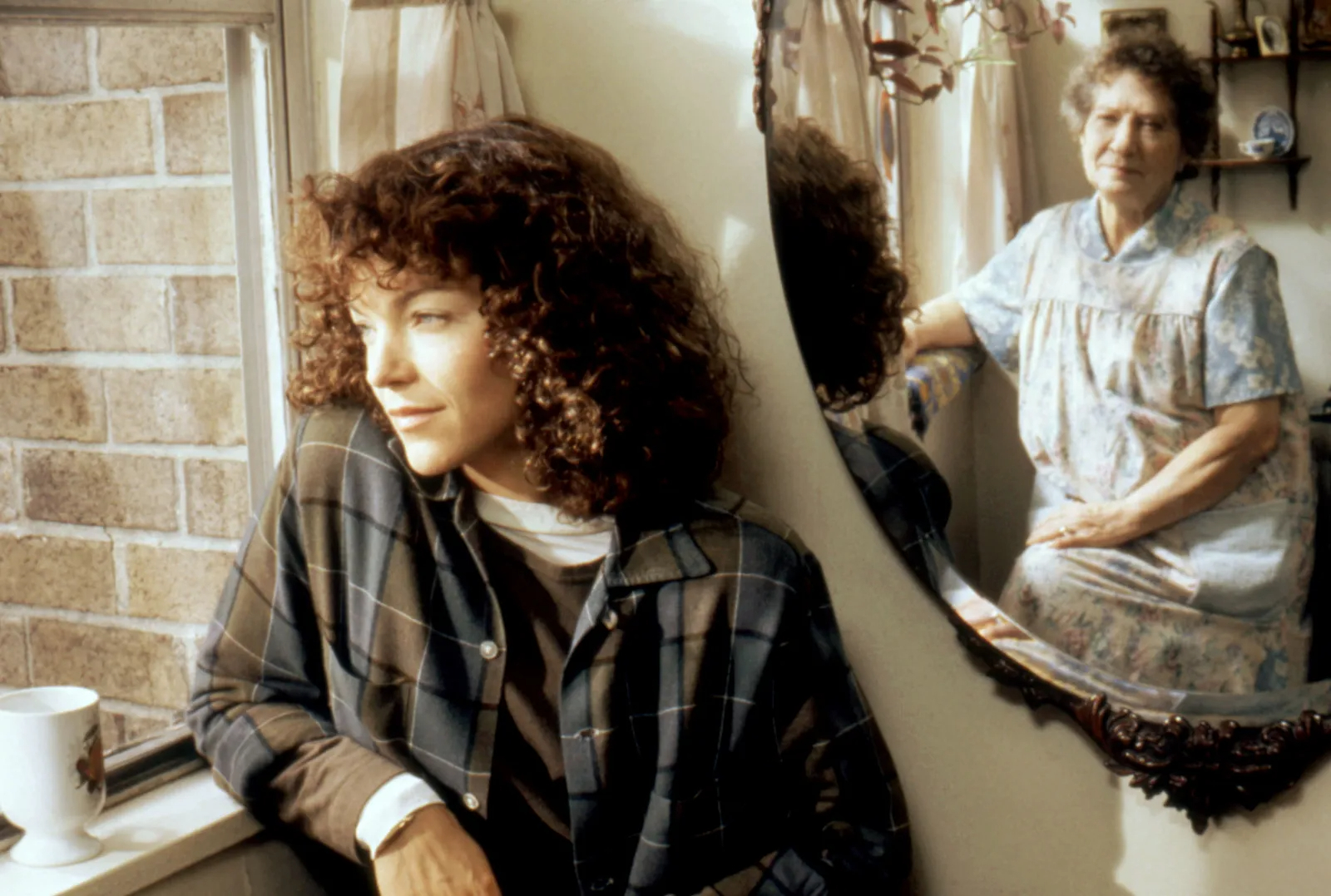
In Joan Micklin Silver’s Crossing Delancey, Amy Irving is Isabelle “Izzy” Grossman, a woman who has it all—dear friends, an interesting job, a rent-controlled Manhattan apartment—except, to her grandmother Ida’s chagrin, a husband. While Izzy lusts after Anton (Jeroen Krabbé), a worldly, married, author she meets at the bookstore where she works, Ida sets her up with a matchmaker, who in turn introduces Izzy to Sam (Peter Riegert), the owner of a nearby pickle shop. Though Izzy resists his unassuming charms at first, passing Sam off to a girlfriend, eventually, realizations and regrets give way to a happy reconciliation.
Working Girl (1988)
To help you get your boss’s job.
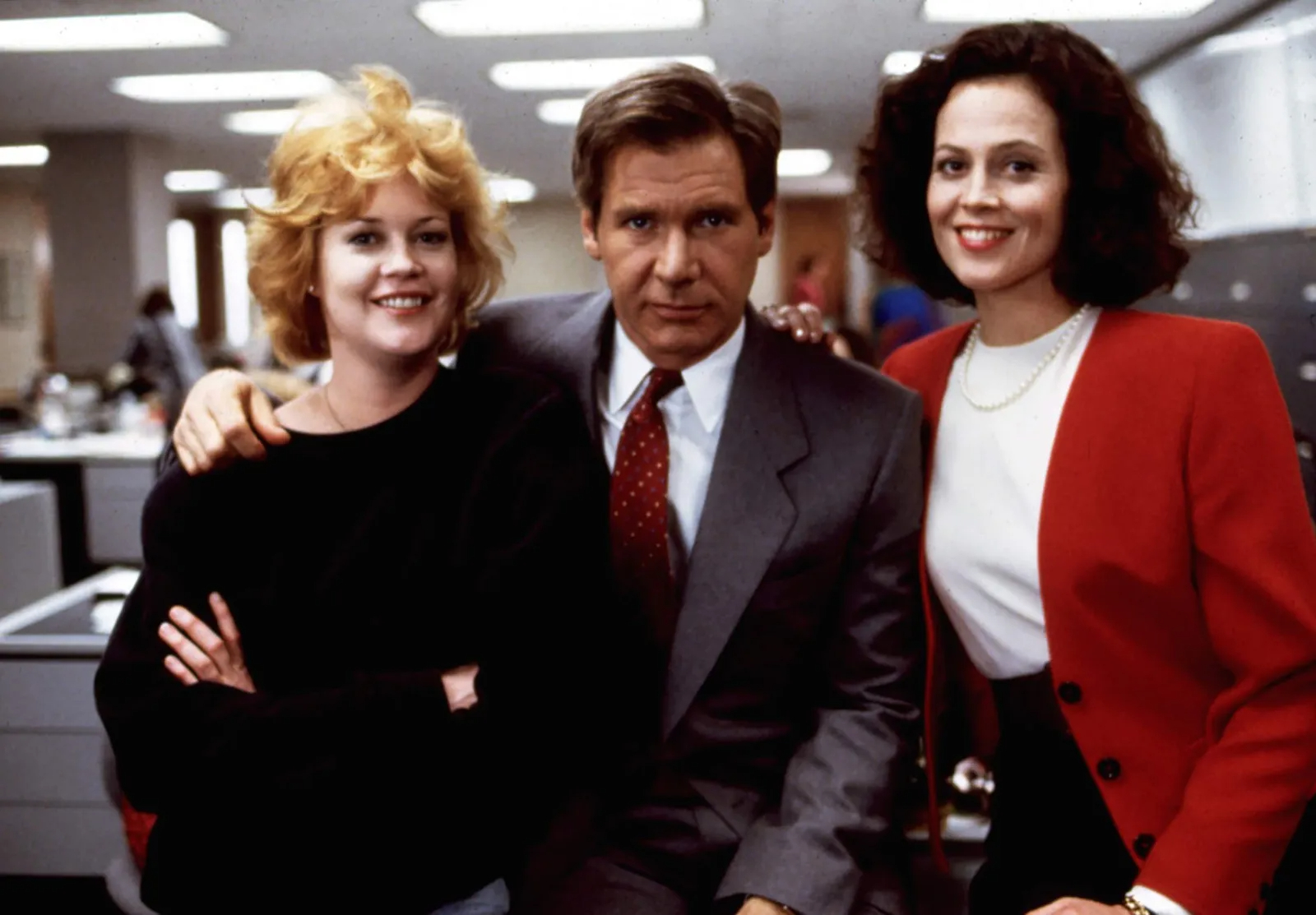
First, consider the cast: Melanie Griffith, Harrison Ford—who owned the ’80s in Hollywood and made this his only rom-com—Sigourney Weaver, Joan Cusack, Oliver Platt, Alec Baldwin (at his douchiest), and Kevin Spacey. Next, look at the director: Mike Nichols—if there is a pantheon for romantic films, he probably has Zeus’s seat. Finally, the shoulder pads; my god, the shoulder pads. Were doorways made wider in the 1980s? Adventures in Babysitting aside, this movie is really as feminist as mainstream movies got in the ’80s. Melanie Griffith plays Tess McGill, a wily business school graduate working as a secretary at an investment bank with such memorable one-liners as “I have a head for business and a bod for sin.” When her boss (Weaver) steals her idea for a merger and then ends up out of commission (temporarily bedridden after a ski accident), Tess rises to the occasion: scheming with the support of her friends and maybe-lover (Ford), conniving, flirting, and using some good old-fashioned elbow grease to outwit her superiors, beat the boys, and claim the position she’s rightfully earned. Griffith is miraculous (one critic compared her to Marilyn Monroe; younger viewers might see a mold for Alicia Silverstone’s Cher), taking a role that could have just been “cute” and elevating it to nuanced and beguiling. That’s what this film is—so much so, we’ll forgive you if, after watching it, you suddenly have a soft spot for shoulder pads.
Broadcast News (1987)
To deal with your workplace crush(es).
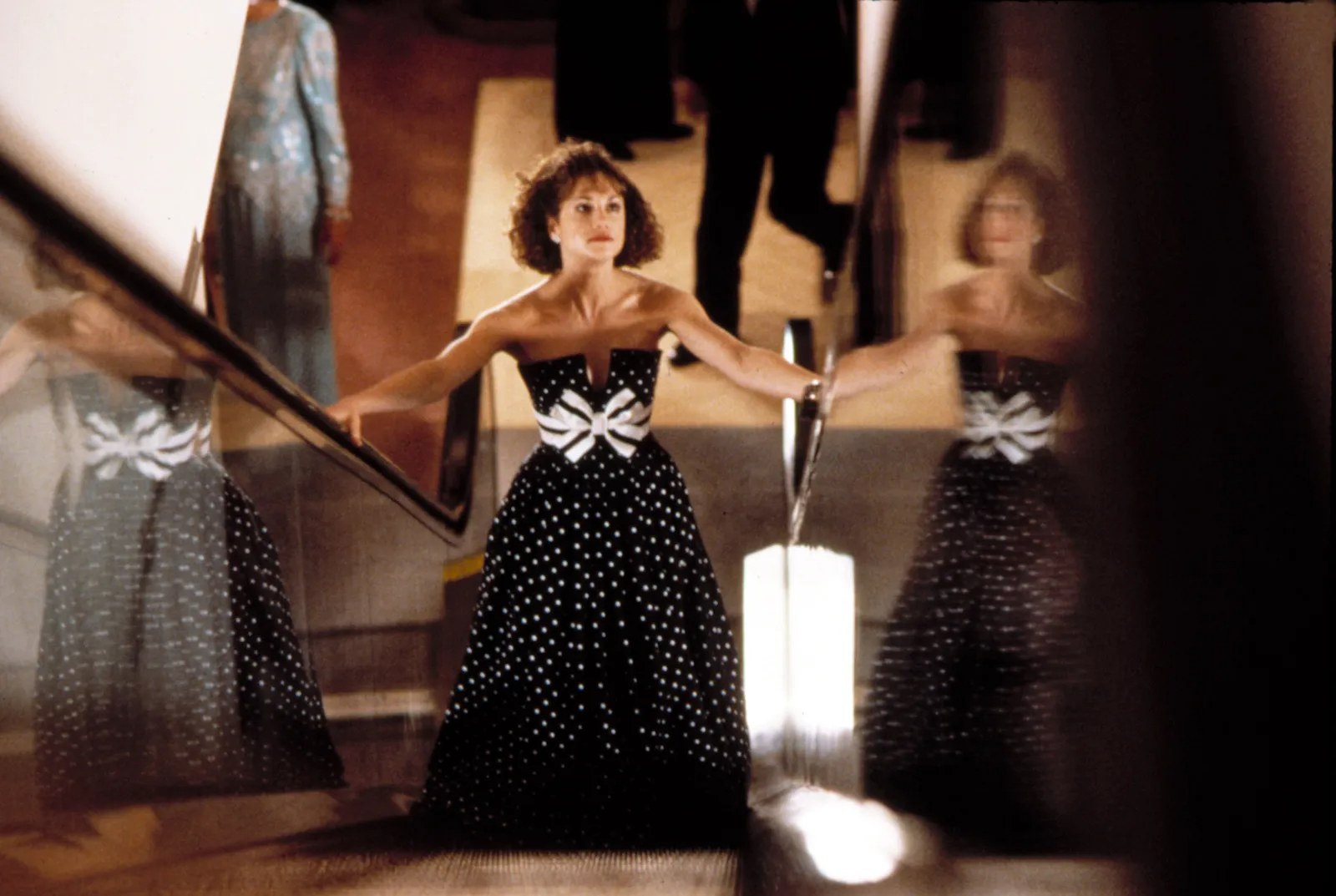
In the mid to late ’80s, there was nothing bigger than TV news and James L. Brooks, and Broadcast News was their meeting ground. After the slap-happy, very silly, and very male comedies of the late ’70s and early ’80s (think Animal House, Porky’s, and Revenge of the Nerds), and alongside epic big-budget projects like Ghostbusters and the original Indiana Jones, Brooks continued to redefine what rom-coms could be with this sprawling, occasionally dramatic, but never self-serious workplace comedy. We root for Albert Brooks’s Aaron Altman, the brainy, nervous, serious journalist who competes for the affections of neurotic producer Jane Craig (Holly Hunter) against the impossibly polished (and intellectually inferior) Tom Grunick (William Hurt). Brooks is the producer behind films like Bottle Rocket, Say Anything, and Big, and TV series like Mary Tyler Moore, Taxi, and The Simpsons. No one knows how to get at our hearts—thoughtfully, gracefully, and with humor—like he does.
Moonstruck (1987)
To get past that one little (or gigantic) flaw.
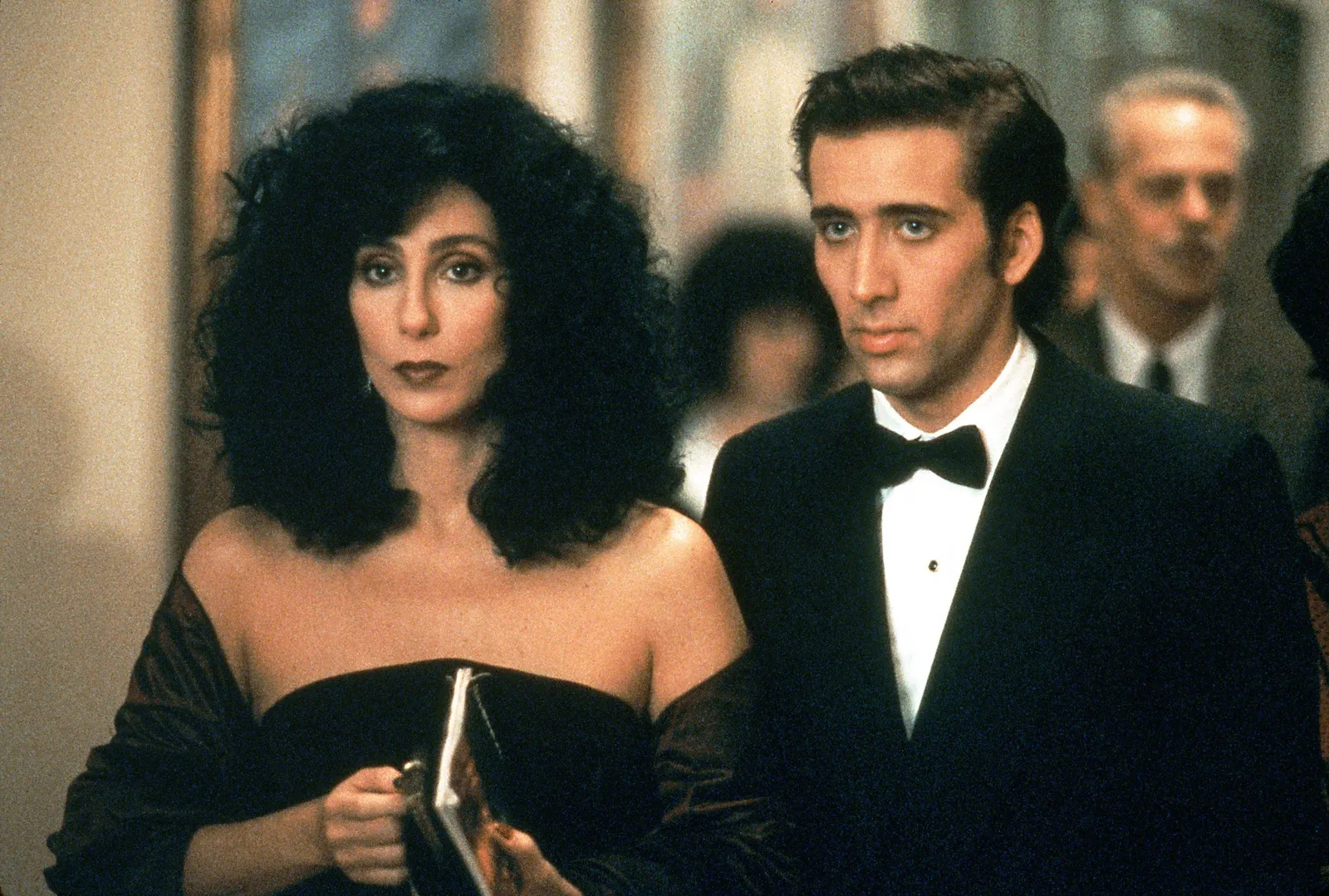
Cher plays a widowed bookkeeper in Brooklyn Heights confronting her parents’ infidelity (and fallibility) who—whoops!—falls for her fiancé’s younger brother (Nicolas Cage), who sports a prosthetic wooden hand after an accident with a bread slicer. Their first night together produces one of the great moments in the annals of rom-coms: When Cage tells Cher he loves her, she slaps him, saying: “Snap out of it!” The film portrays a New York that doesn’t really exist anymore—for one thing, Brooklyn Heights is full of bankers now. It’s a window to another time, when marriage meant something different in male-dominated second-generation immigrant families, and the fight that Cher’s character puts up against the social order is both important and revelatory (she won an Oscar for her efforts). You end up cheering not just for her romance, but also for an entire insurgency.
The Princess Bride (1987)
To get him into rom-coms.
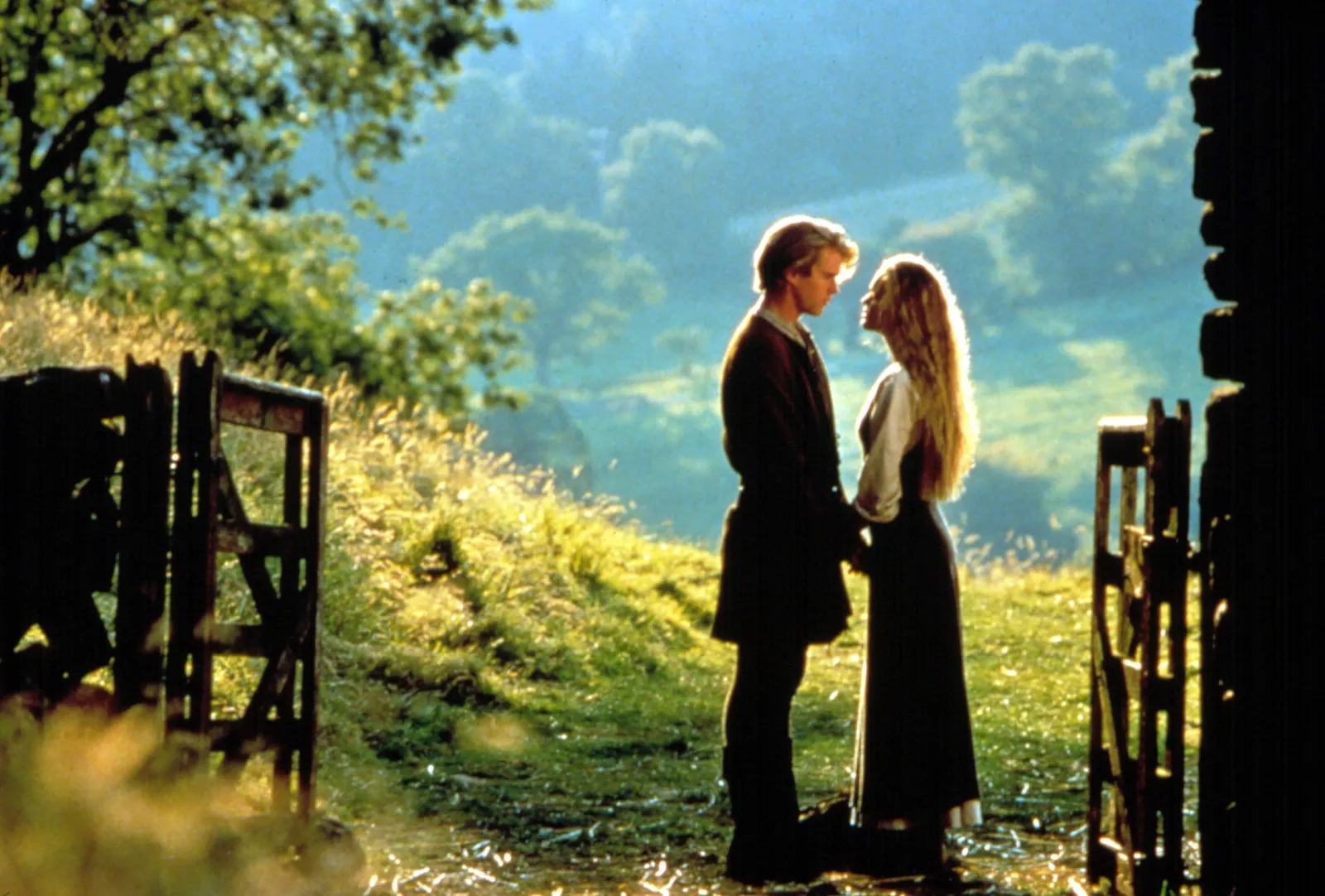
“Is this a kissing book?” a little boy (Fred Savage) asks his grandfather, who is at his bedside to read him The Princess Bride when he’s home sick from school. Sure is, but it’s also a tale of swashbuckling, cruel kings, giants, swordsmen, poison, monsters, rebels, and knights—without a dull or unfunny moment. The kid (and the viewer) is quickly on board. More than anything, it’s a tale of true love, and fantastic as it might be, the adventure that leads the stable boy, Westley (Cary Elwes), back to his mistress, Buttercup (an impossibly beautiful Robin Wright), has left few hearts unmoved and few faces without smiles.
Something Wild (1986)
To reevaluate the nice guy (and the bad boy).
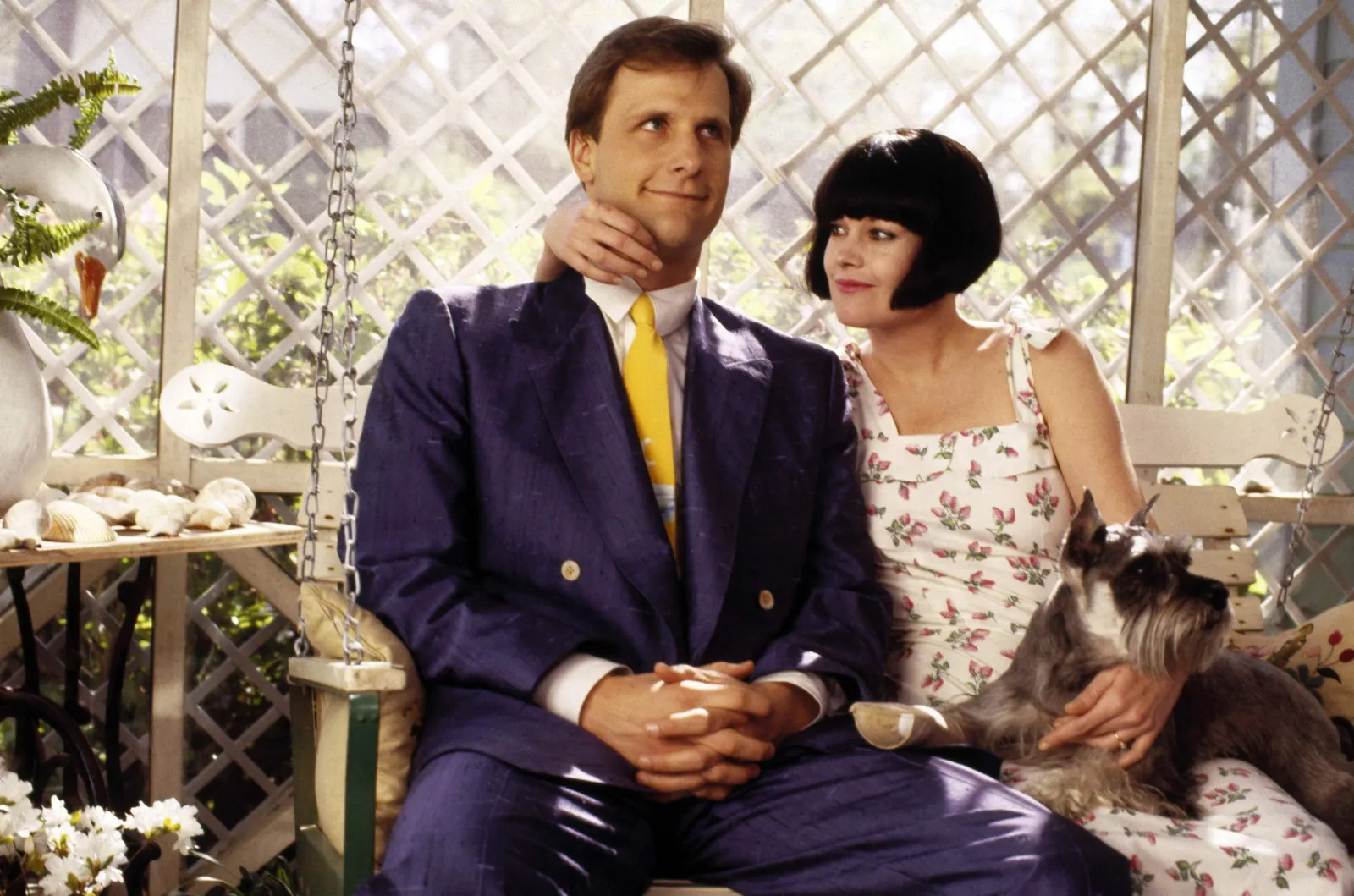
Before Jonathan Demme decided to scare the pants off an entire generation (and win an Oscar) with The Silence of the Lambs, he was an ’80s funnyman, and this is his best work. It’s the story of a mild-mannered exec (played by Jeff Daniels), whose sedentary life is turned upside down by the wildly adventurous, somewhat grifting Lulu (Melanie Griffith)—whose checkered past includes a roustabout, criminal ex-boyfriend played by Ray Liotta. The idea of a “crazy” girl coming in and turning a straight man’s existence topsy-turvy is repeated countless times in this genre, from Bringing Up Baby to The Girl Next Door. Demme’s alchemy here is to infuse the trope with unpredictability. The comedy keeps us on the edge of our seats by compounding the will-they-won’t-they question with sudden breaks into violence, threats, or chase. Rom-coms don’t get more exciting than this.
Tootsie (1982)
To get dressed up for.
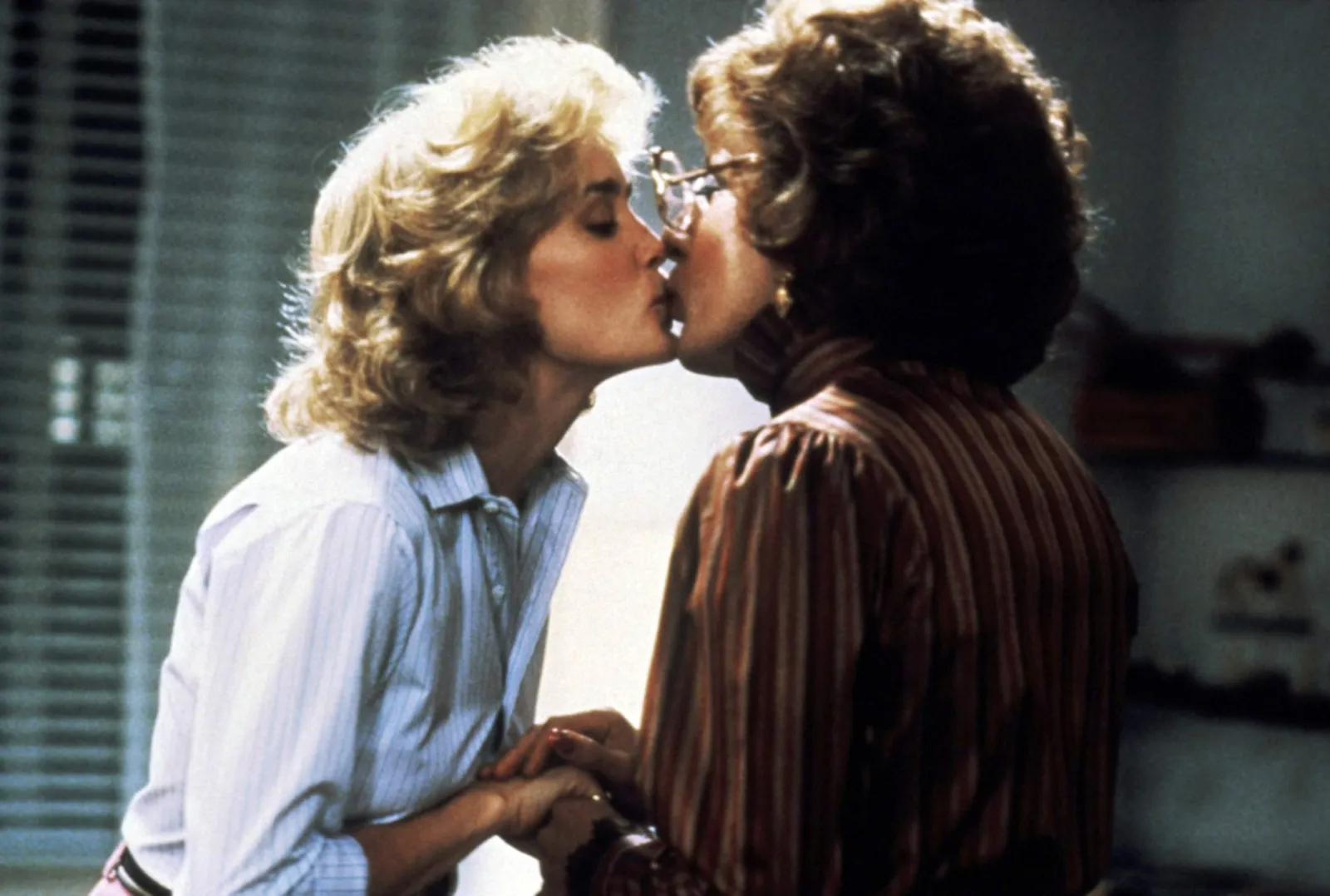
Michael Dorsey (Dustin Hoffman) is a New York actor who is such a perfectionist, no one wants to work with him. So he does what any rational man would do: He dresses as an entirely different person—an older woman who goes by the name of Tootsie—and lands a role on a soap opera where he becomes a sensation. Problems arise when he falls in love with his costar (Jessica Lange)—and a fellow castmate, an older man, falls in love with him. It’s madcap and zany but also profoundly funny, with insights aplenty—it sends up television, sexism, and New York society—and performances that were Oscar-worthy (Lange’s in particular—of Tootsie’s 10 Oscar nominations, she’s the only one who walked away with a statue).
Grease (1978)
To get you dancing your troubles away.
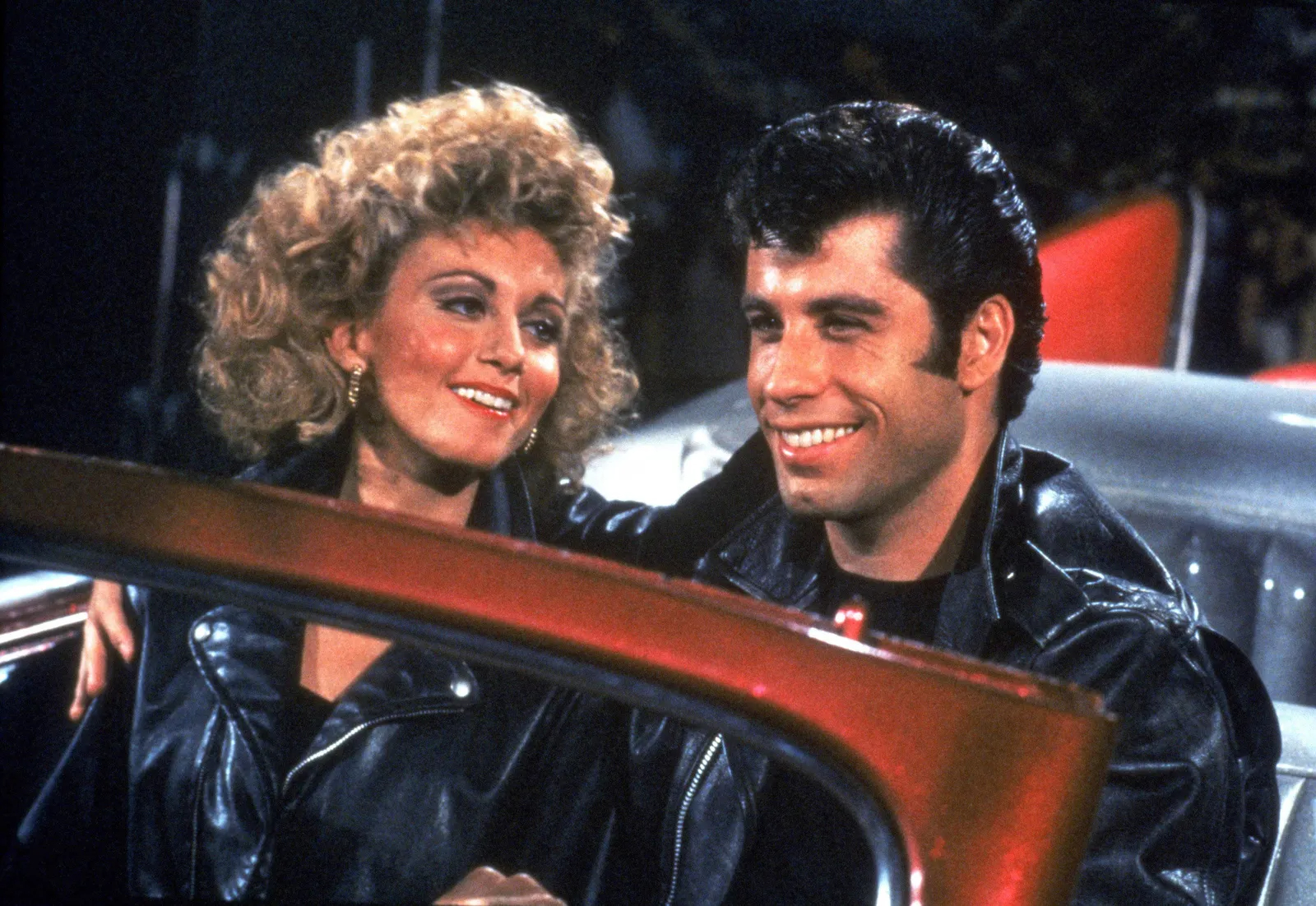
The ’50s nostalgia of the 1970s culminated with this unreal musical about the return to high school for summer lovers Danny Zuko (John Travolta) and Sandy Olsson (Olivia Newton-John). It’s hard for current viewers to understand just how big John Travolta was at the time; the year this film bowed, 1978, the two top-selling albums were the soundtracks to Saturday Night Fever (another Travolta film) and this one. And that was in a year when the Rolling Stones released Some Girls and Bruce Springsteen dropped Darkness on the Edge of Town. In this irresistibly playful film, Travolta embodies the bursting sexuality of the newly emerged teen culture, but at the same time, he’s a tampered-down throwback—we buy him drag racing cars and singing with his gang, the T-Birds, whose rivals are the Scorpions, and making clumsy moves at the drive-in. Similarly, the Pink Ladies, a popular clique headed by Rizzo (Stockard Channing), deliver their wiseacre lines with a fair dose of irony. These skirts know what’s up, and that’s what makes us interested, and invested, in their outcomes.
Shampoo (1975)
To confirm that, yeah, he’s probably cheating.
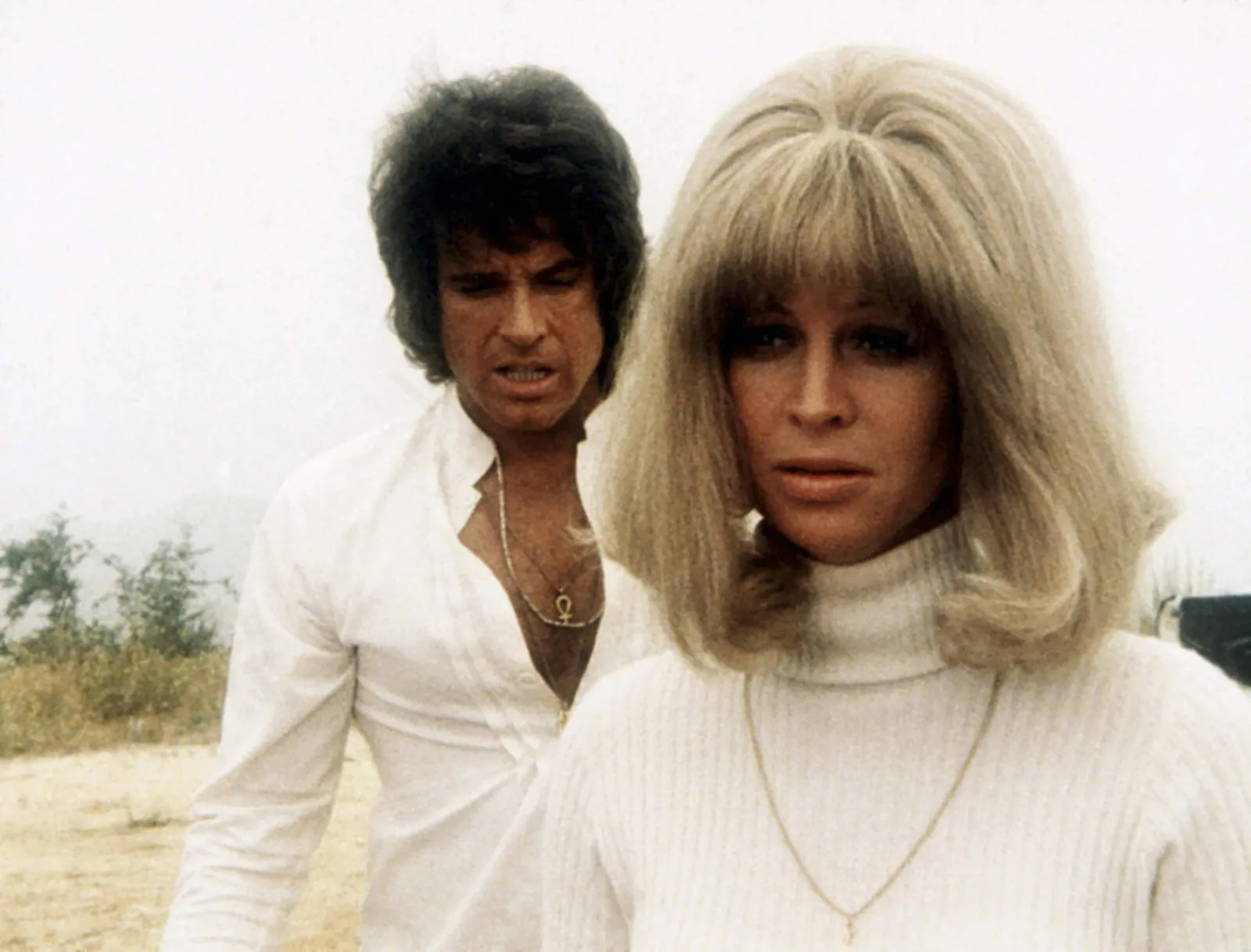
There’s a lot going on in Shampoo—the story of an L.A. hairdresser (Warren Beatty) who is sleeping with, well, everyone (including Julie Christie, who plays a prime target of his affections)—which, at first glance, could just be another ’70s sex comedy. Keep in mind, though, that it’s directed by Hal Ashby, the king of thoughtful, offbeat romances, and was also written by Beatty, a major voice of the Hollywood Left in the 1970s. The film, released a year after Nixon’s downfall, takes place on the eve of Nixon’s election in 1968, so there’s a good deal of interplay between the politics and the sexual politics that were in the air as the counterculture died, the pill became mainstream, and the country saw itself in a whole new, darker light. That said, Beatty’s portrayal of the harried, discursive, libidinous George is irresistible even without context, as is the performance given by a young Goldie Hawn, who illuminates every frame—and perfectly counteracts Beatty—with blonde California light, and a heart-melting, downy innocence.
What’s Up, Doc? (1972)
To help you embrace a little chaos.
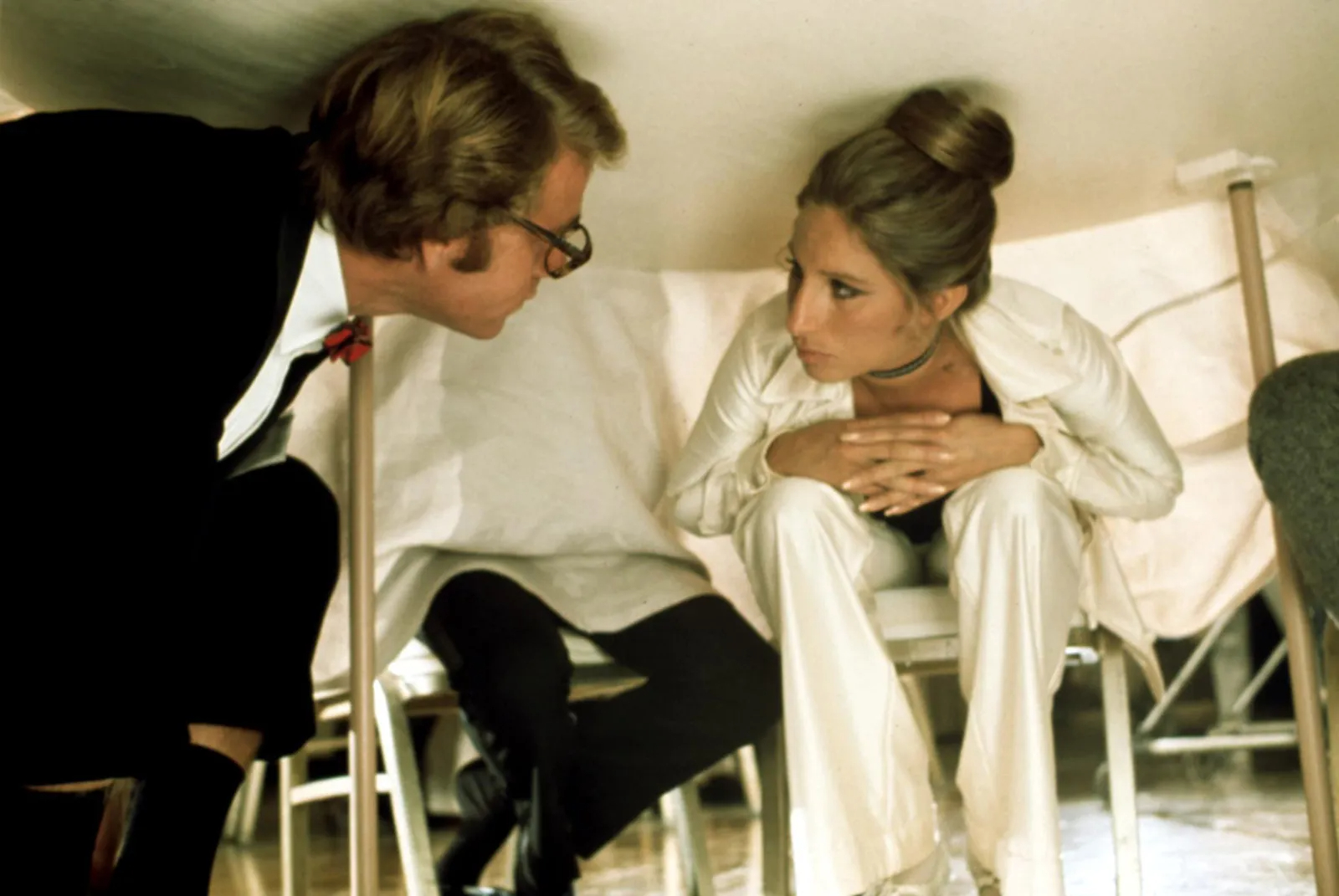
A spirited, San-Francisco-set riff on George Cukor’s screwball classic Bringing Up Baby, Peter Bogdanovich’s What’s Up, Doc? has everything: the gorgeous, golden tresses of one Barbra Streisand; Ryan O’Neal, doing his best interpretation of a nerdy musicologist; a hysterical Madeline Kahn; a very seductive duet of “As Time Goes By”; four identical plaid suitcases; and one of the most hilariously elaborate car-chase sequences ever committed to screen.
Harold and Maude (1971)
To justify your May-December romance.
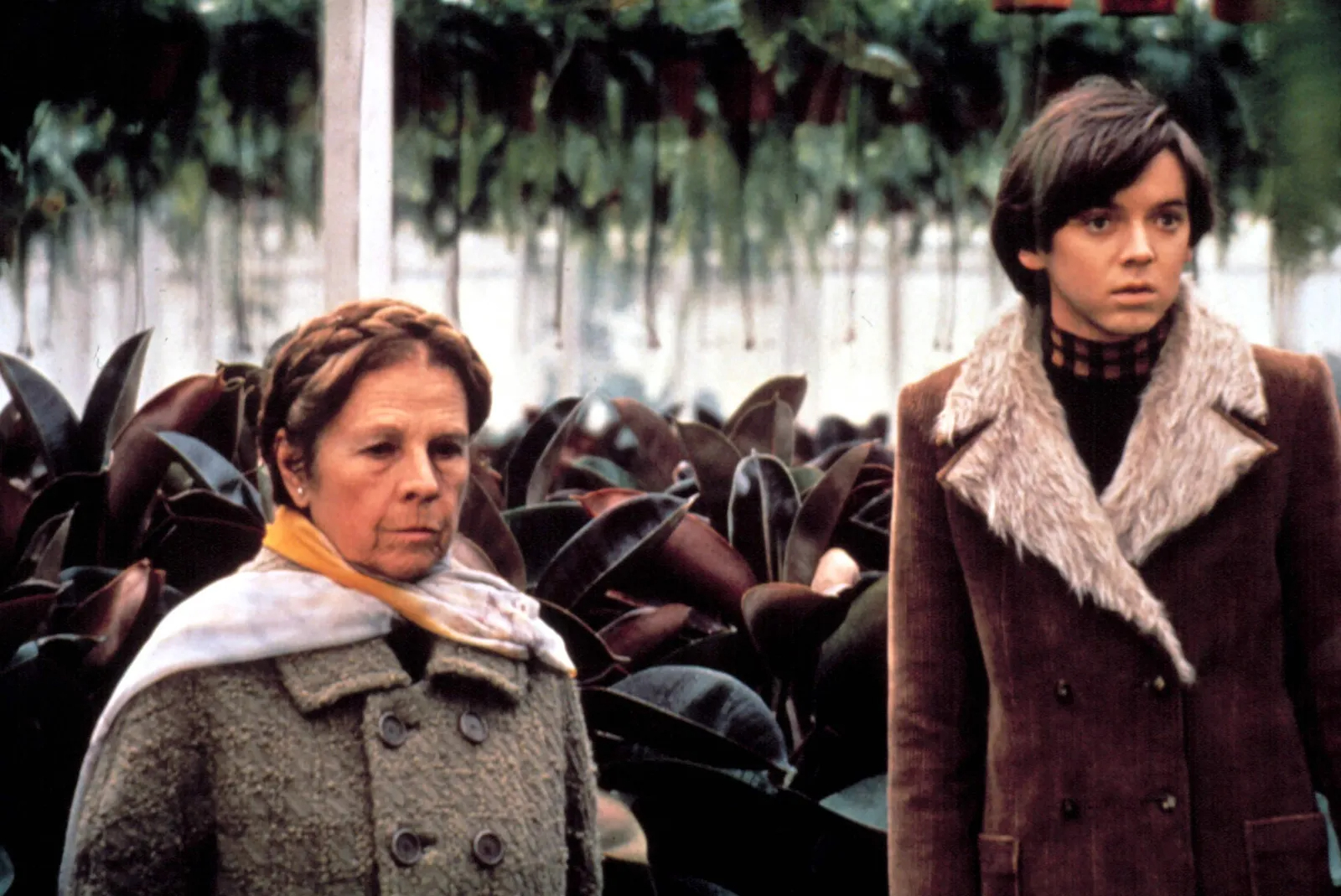
There’s a question that lingers throughout most of Harold and Maude—the story of a death-obsessed young man (he enjoys driving a hearse, attending funerals, and faking his suicide) who falls for a much, much older woman: Are these two going to get it on? It sounds sophomoric, but it’s actually essential. Harold and Maude are separated by approximately 60 years; for the movie to hit home, for us to believe that love is truly about what we share, not what we look like or other aesthetic values, we have to believe a genuine attraction has formed. No one prodded existentialism (especially in films deemed “romantic”) like director Hal Ashby, and Harold and Maude is no exception. The darkly funny tale will leave you questioning just what is important to you in your own conception of love—and, moreover, in your life.
Barefoot in the Park (1967)
To push you out of your comfort zone.
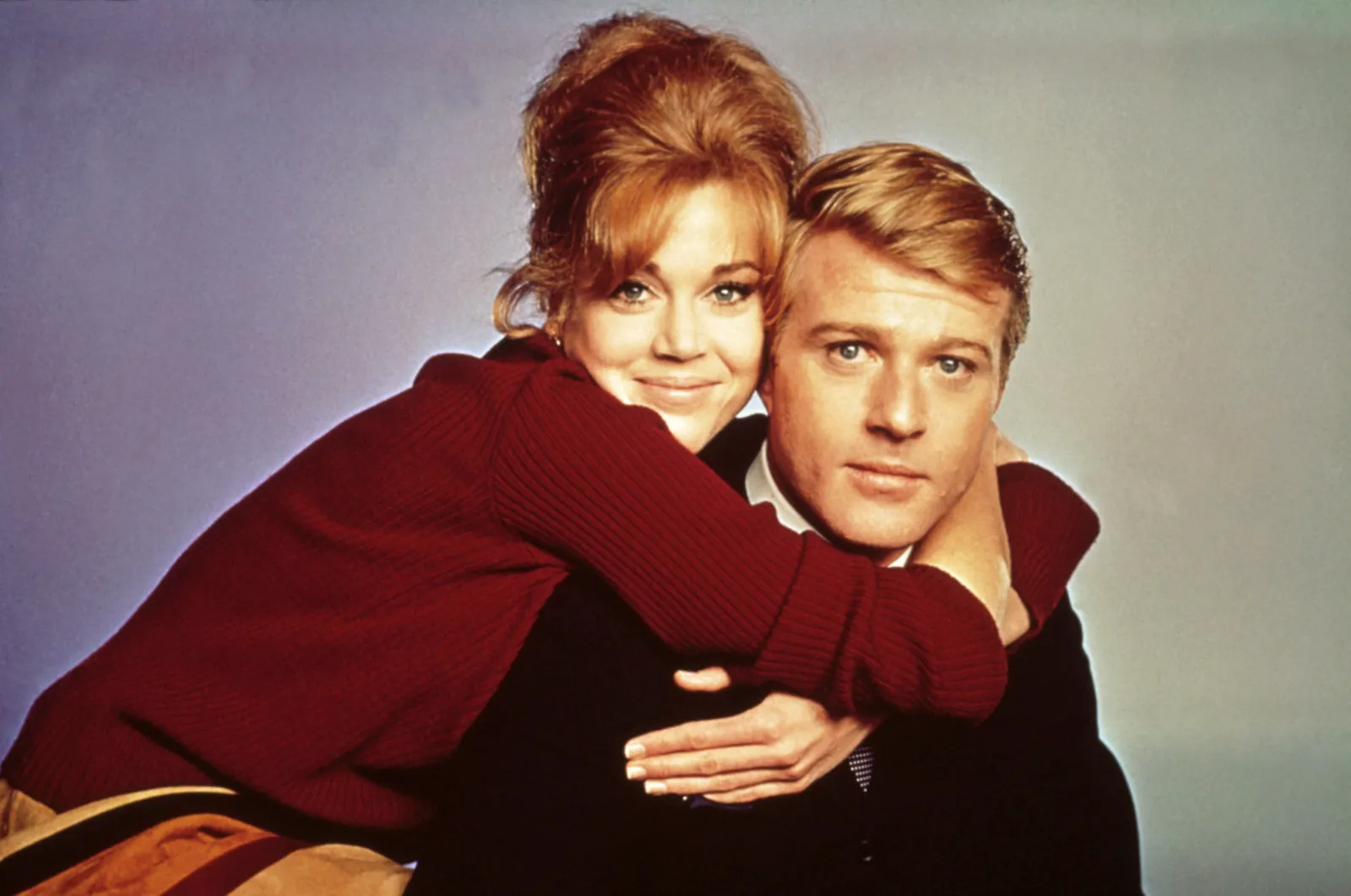
Adapted from the play by Neil Simon—a master of the genre on Broadway—Gene Saks’s Barefoot in the Park stars Robert Redford and Jane Fonda as the newlyweds Paul and Corie Bratter; he sort of a stiff, she the more easy-going and optimistic one. Spanning the couple’s first few days in their new apartment—a leaky, creaky walk-up in Greenwich Village—Barefoot is somewhat less about falling in love (although there is a charming subplot concerning Corie’s mother and one of their neighbors, Victor Velasco) than endeavoring to stay in it.
The Graduate (1967)
To help you sort out what to do with the rest of your life.
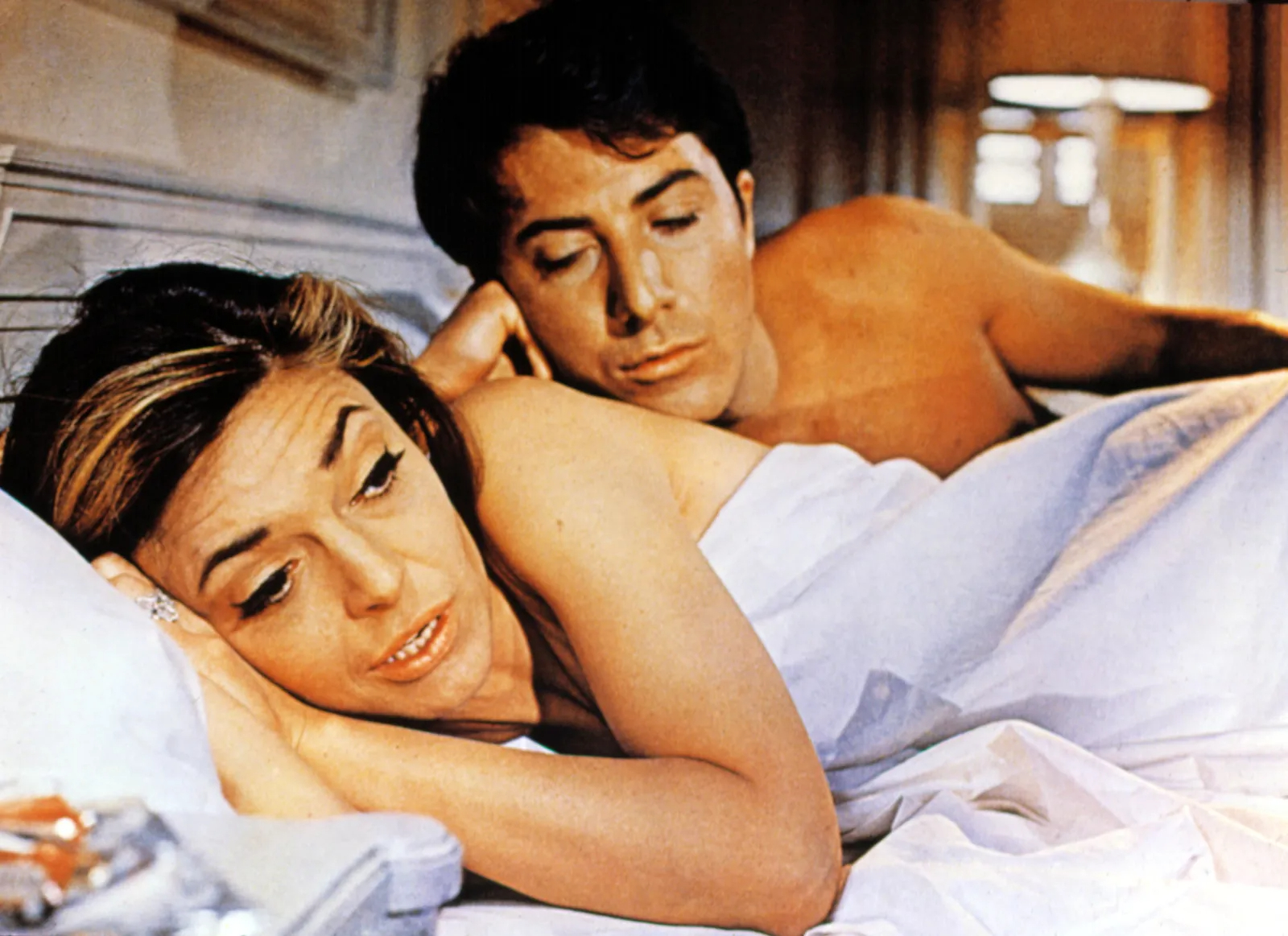
This is the only film on this list that is least certainly a rom-com; it caused a bit of a row, in fact. Some of us believe that this movie is ultimately too sad to give the viewer the warm fuzzies they depend on this genre for; others argue that this line of thinking may confuse what’s depressing with what’s complicated. The story of the listless Benjamin Braddock, recent college graduate who begins an affair with his father’s partner’s wife, and ends up falling for her daughter, did more to advance the critical value of comedy than perhaps any other film. There may be no more iconic line than Dustin Hoffman’s “Mrs. Robinson, you’re trying to seduce me,” but this movie is so much more than dialogue. (Note: Hoffman might have been playing 21 when he said this line, but the actor was 29; Anne Bancroft, as Mrs. Robinson, was all of 35.) Oft-quoted, ripped off, referenced, and discussed, Mike Nichols’s 1967 romp through Braddock’s postcollegiate uncertainties was released a few months after the Summer of Love, as the counterculture had peaked and what Hunter S. Thompson called the “high and beautiful wave” was getting ready to roll back. Young America was, and to some extent still is, Benjamin Braddock, which reveals the power of this film.
Breakfast at Tiffany’s (1961)
To help you leave the past behind.
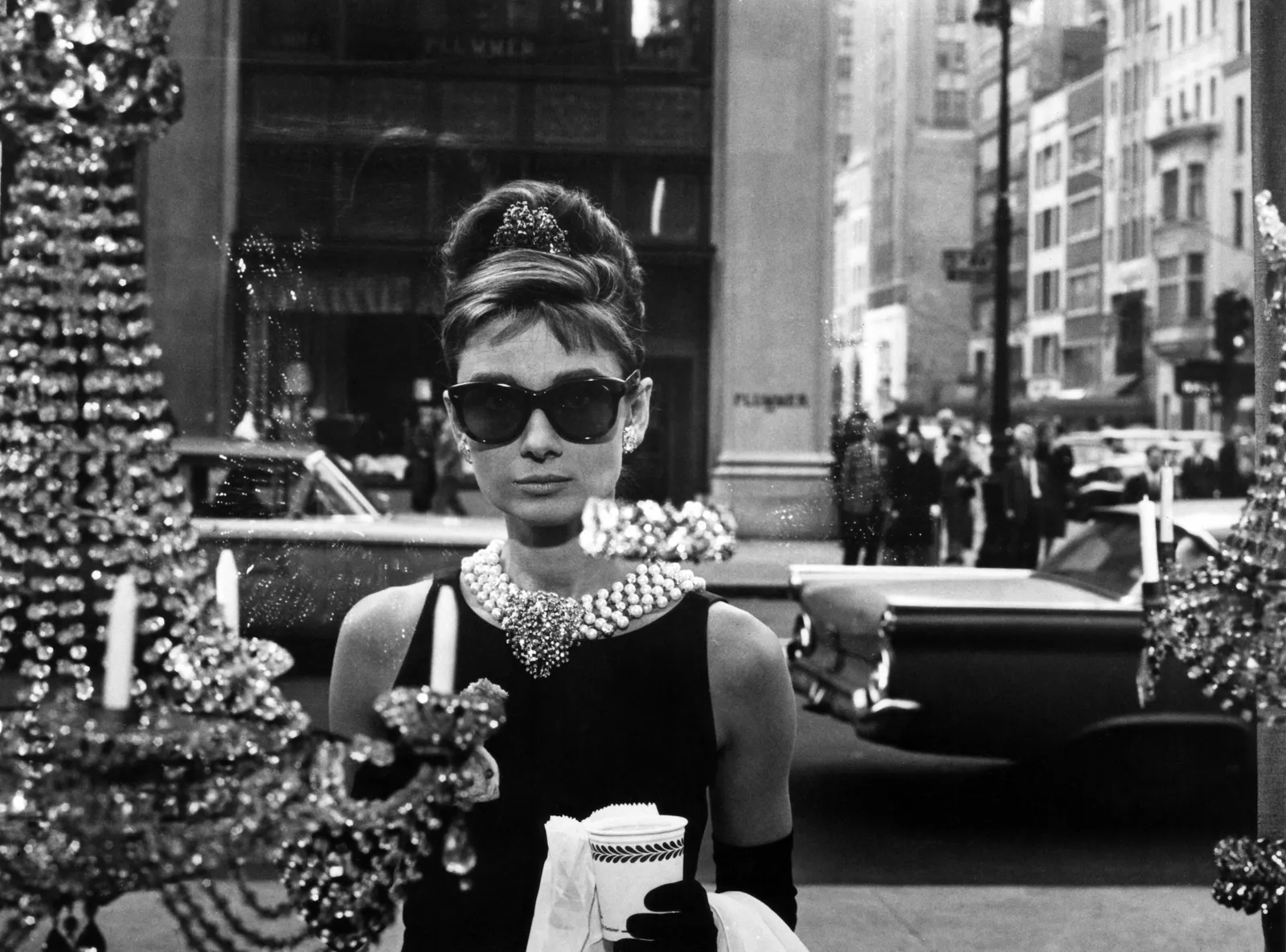
No one has stolen more hearts than Holly Golightly (Audrey Hepburn). Based on Truman Capote’s 1958 (harsher) novella of the same name, Breakfast at Tiffany’s—the story of a friendship struck between a rarely employed writer, Paul Varjak, and his neighbor, the naïvely beautiful Golightly, a freewheeling party girl whose lifestyle is paid for by the rich suitors who surround her—is a building block of our Hollywood romantic fantasies. It has the unclassifiable, magnetic object of affection, the reliable underdog who pursues her, expectations dashed, true selves discovered, and an undeniably racist portrayal of an Asian landlord (by Mickey Rooney). Yes, it was a different era, but this detail can be difficult to ignore. That said, there are generations of viewers who consider this the greatest rom-com of all time.
Gentlemen Prefer Blondes (1953)
To make you root for the little girls from Little Rock.
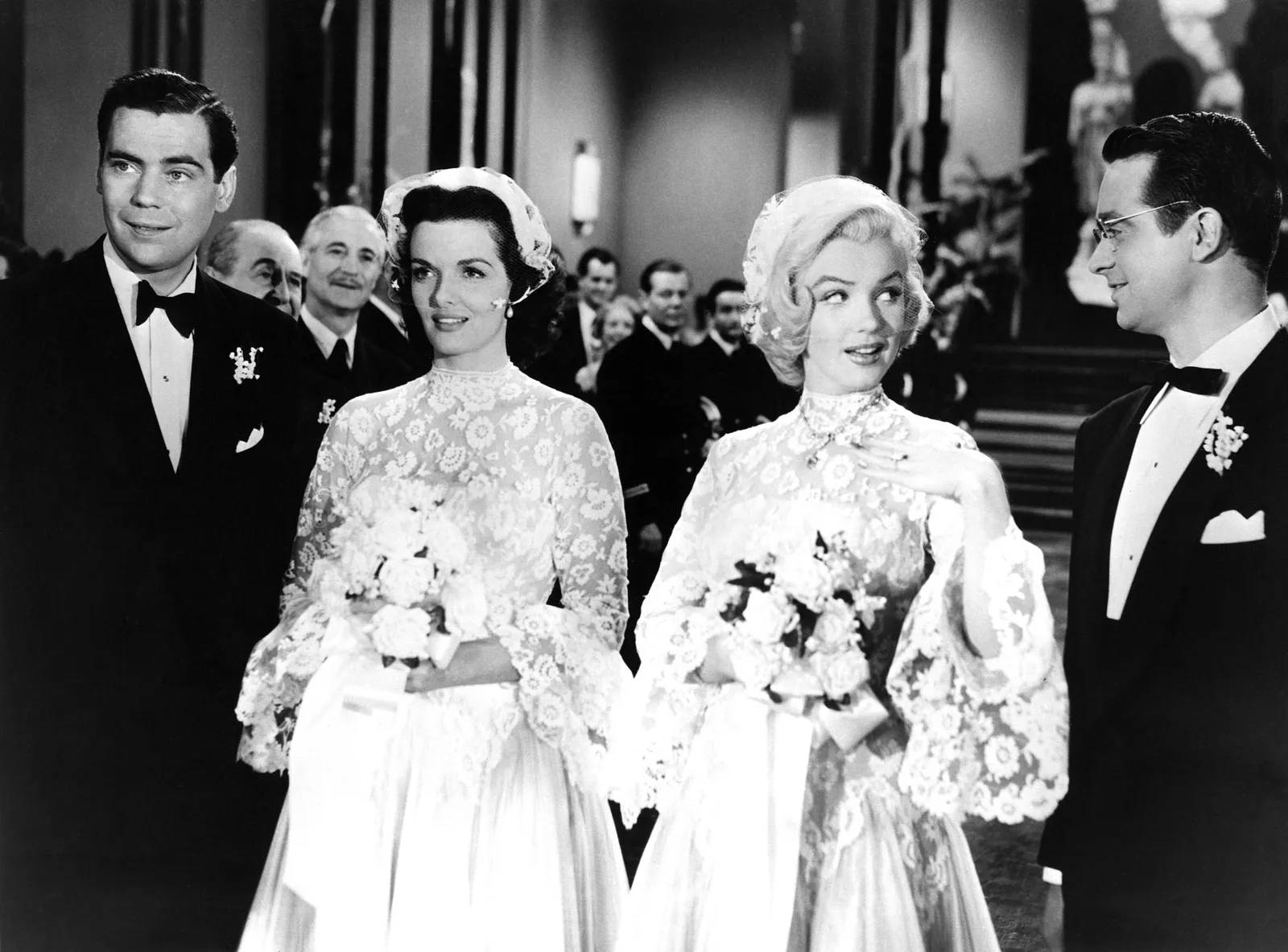
In this glittering Howard Hawks comedy—the one that gave us Marilyn Monroe’s rendition of “Diamonds Are a Girl’s Best Friend,” God bless it—Monroe and Jane Russell star as Lorelei Lee and Dorothy Shaw, two best friends-slash-showgirls who know exactly what they want: to marry rich (Lorelei) and handsome (Dorothy). But that, it turns out, is not as simple as it sounds—especially when a meddling would-be father-in-law, a private detective, and the elderly owner of a diamond mine get involved.
Roman Holiday (1953)
To take a break from yourself.
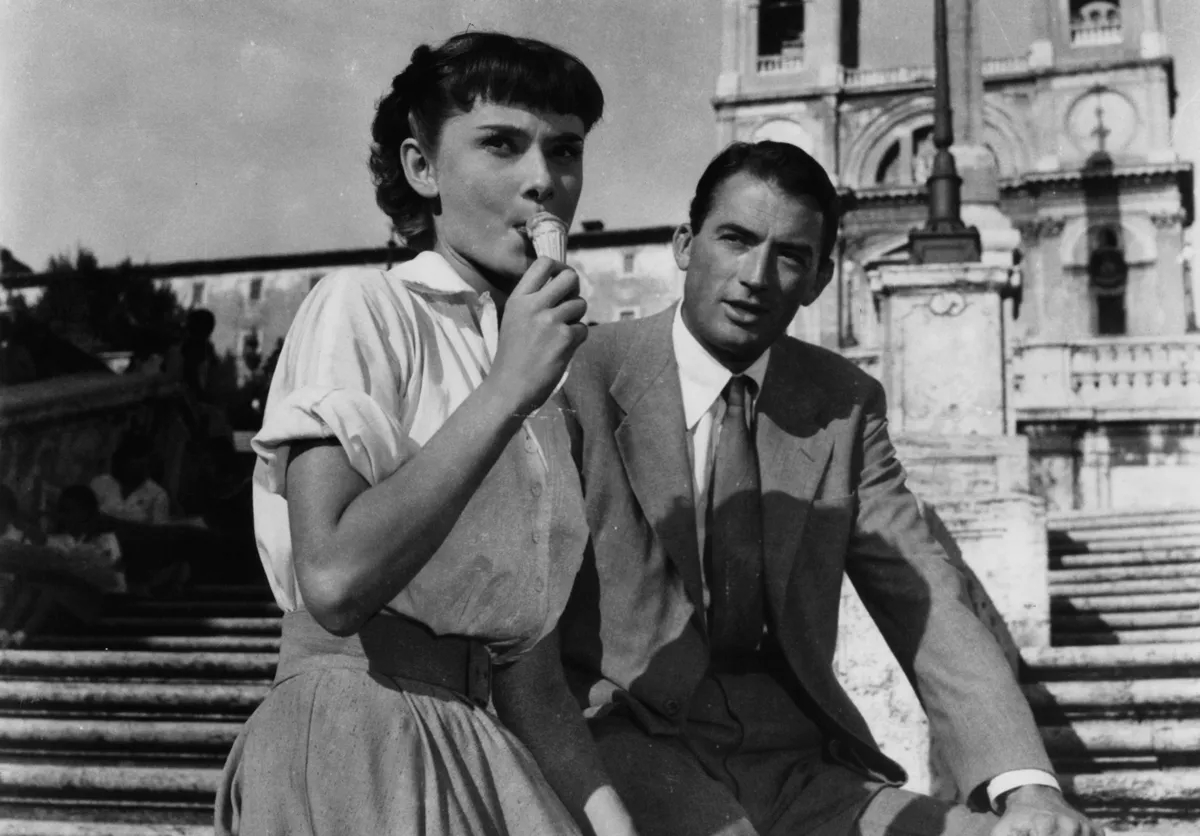
There’s a wonderful moment in Roman Holiday—the story of a European princess, played by Audrey Hepburn, who tires of her duties and runs away from her handlers while visiting Rome—where Joe (Gregory Peck), a reporter showing her the city, puts his arm in the Mouth of Truth (a statue that supposedly bites off the hand of liars) and removes it with his hand missing. The princess screams—Hepburn was apparently not acting here—and then recovers. It’s a metaphoric yawp for all that a romantic comedy should be. It’s being taken by surprise, taken by a stranger, the discovery of a new side of oneself while falling for someone else. And that’s just one moment!
Singin’ in the Rain (1952)
To kick-start your career goals.
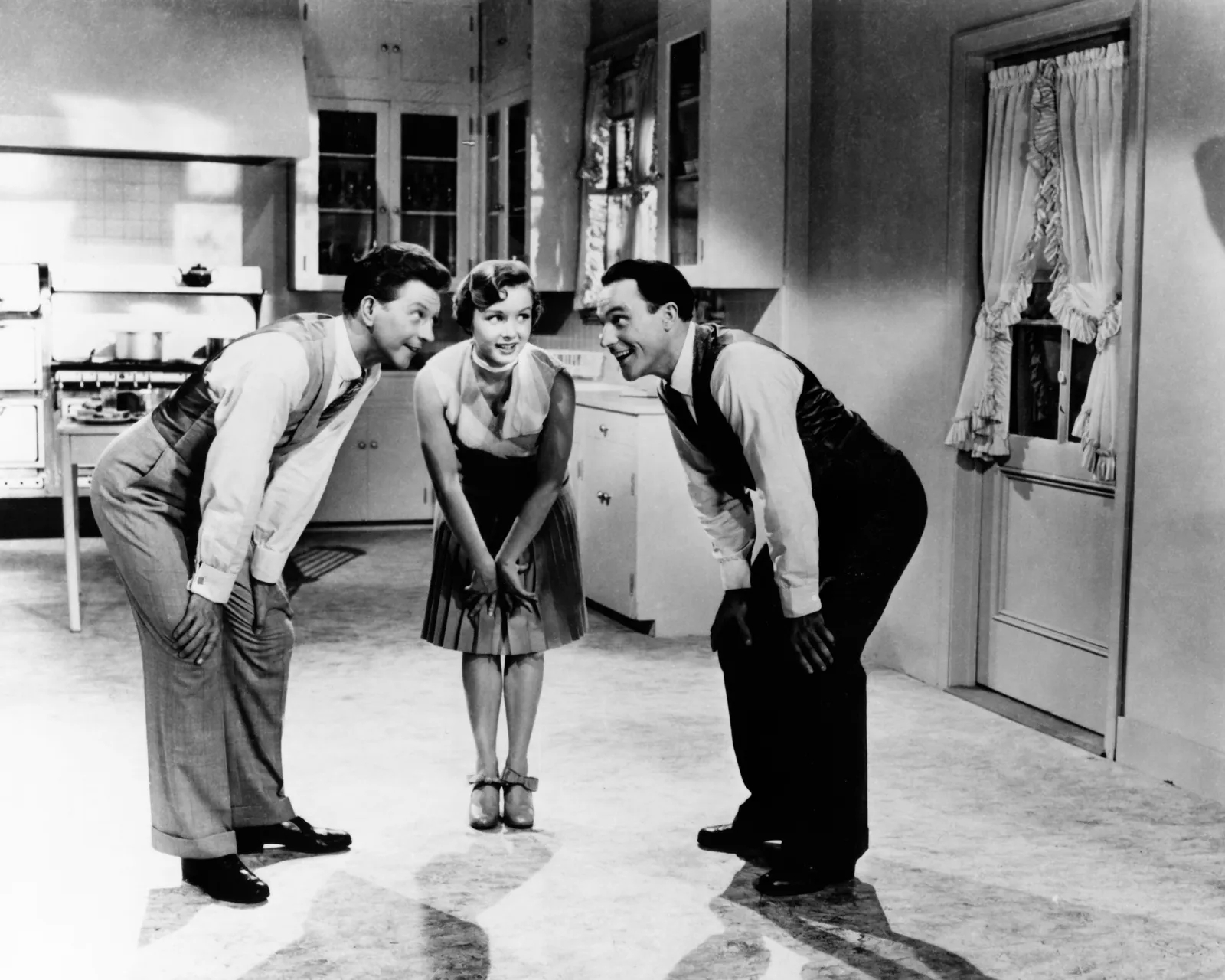
Here’s the thing: You’re not really allowed to like La La Land if you don’t like Singin’ in the Rain. Or, you at least have to watch it; it’s the original musical about making it in Hollywood. The story of a sellout leading man (Gene Kelly) who falls for the chorus girl (Debbie Reynolds) who might just change his life (and he hers), this 1950s romp through 1920s Hollywood really has it all: singing, dancing, and bedrock songs like “Make ’Em Laugh,” “Good Morning,” and, of course, “Singin’ in the Rain.” It’s cute as hell and tap-happy to the extreme.
The Philadelphia Story (1940)
To get you over getting over your ex.
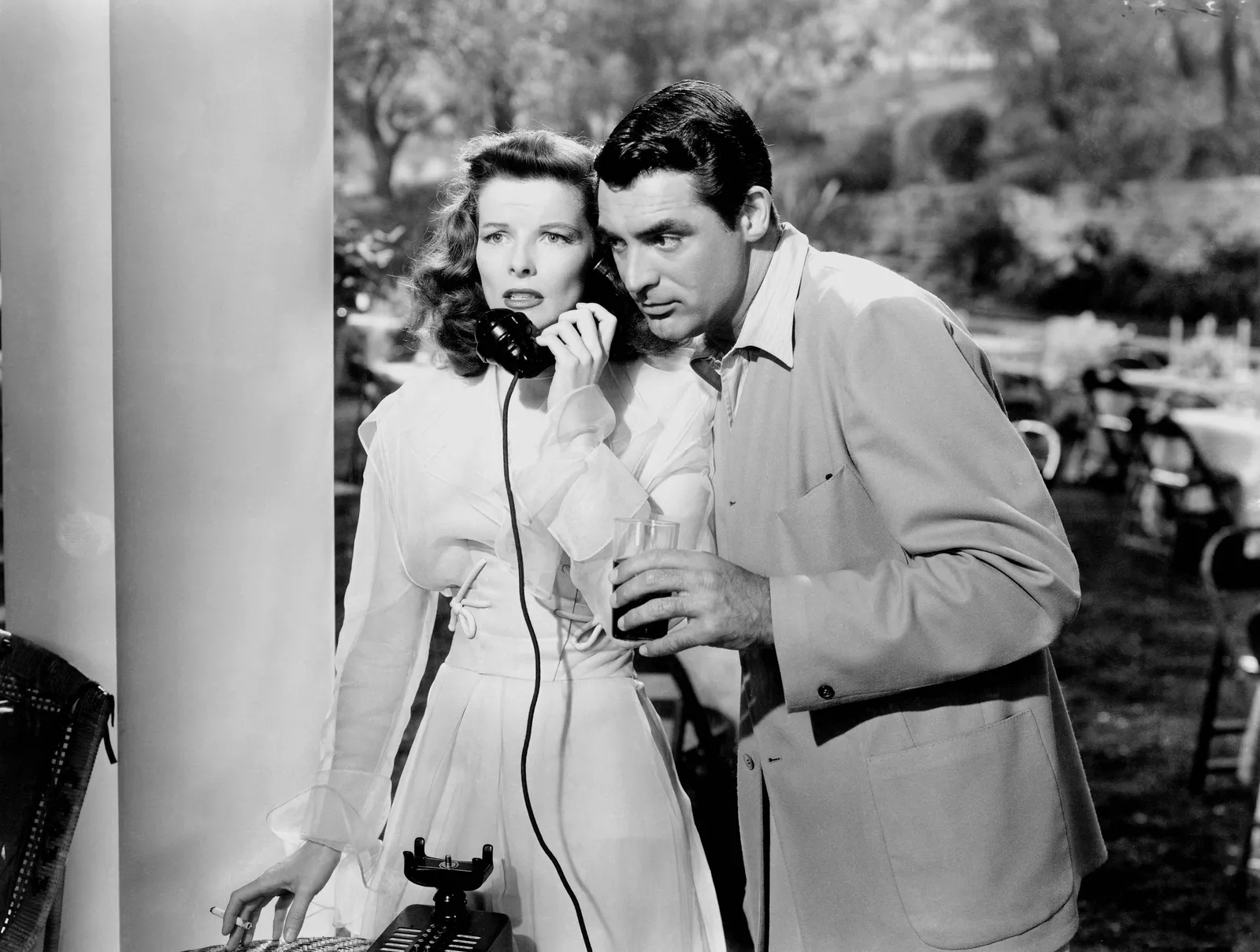
The credits of The Philadelphia Story read like something out of a dream: Cary Grant and Jimmy Stewart vying for the love of Katharine Hepburn. It’s produced by Joseph L. Mankiewicz (writer of All About Eve and Cleopatra), and directed by George Cukor (who made 1954’s A Star Is Born, Justine, and My Fair Lady, and once told Marilyn Monroe, “That will be just fine, darling,” when, about to film a skinny-dipping scene for Something’s Got to Give, she expressed her concern that she only knew how to dog-paddle). The Philadelphia Story relies on some dependable tropes—lovers who’ve fallen out; a will-they-or-won’t-they-get-back-together situation—that have provided romantic tension for everything from A Midsummer Night’s Dream to Crazy, Stupid, Love. But it’s Hepburn, aiming for a comeback following some serious bombs, and her witty repartee with her two love interests, Grant (her yacht-designing reformed bad boy of an ex-husband) and Stewart (a tabloid reporter), that is the movie’s bread and butter. The Main Line has never been so well represented.
Bringing Up Baby (1938)
To make your arguments a little sweeter.
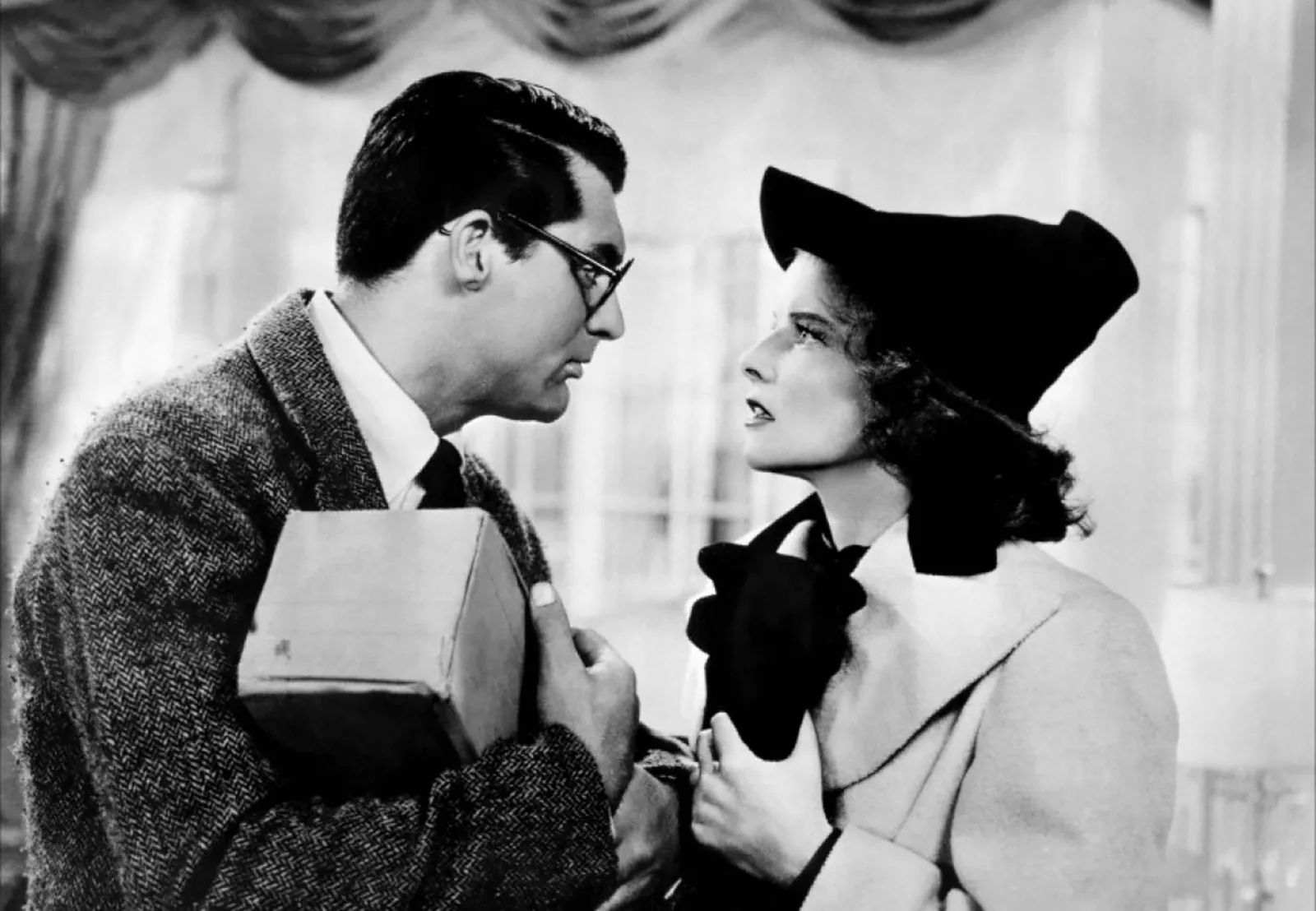
Here’s how cute rom-coms were in the 1930s: The entire plot rests on a dog burying the bone of a brontosaurus. Katharine Hepburn, whom the movie was written for, plays a whimsical, adorable socialite who has become besotted with an otherwise engaged (literally and figuratively) paleontologist, played by Cary Grant, and is trying to keep him around so he won’t go marry some pill. Her strategy for doing this is to invite him to her house so that he can help her bring a baby leopard to the city. (Later, the dog and the leopard wrestle.) This is what we call a screwball comedy. It’s also priceless, with Hepburn peppering Grant in her sweet, Gatling gun style, and Grant, playing stiff, as if any man, never mind a mild-mannered paleontologist, could ever resist such wiles.
This article was originally published on Vogue.com.
- The Most Anticipated Movies of 2024
- Wes Anderson on His New Short, Screening Movies for His ‘Little Club’ of New York Filmmakers, and the Possibility of Directing for the Stage
- After Winning At The 2023 Sundance Film Festival, Filmmaker Kayla Abuda Galang Flexes Worldwide Ambition for Filipino-Themed Movies
- Wong Kar-Wai Movies To Watch Ahead Of His New Film: Blossoms Shanghai
